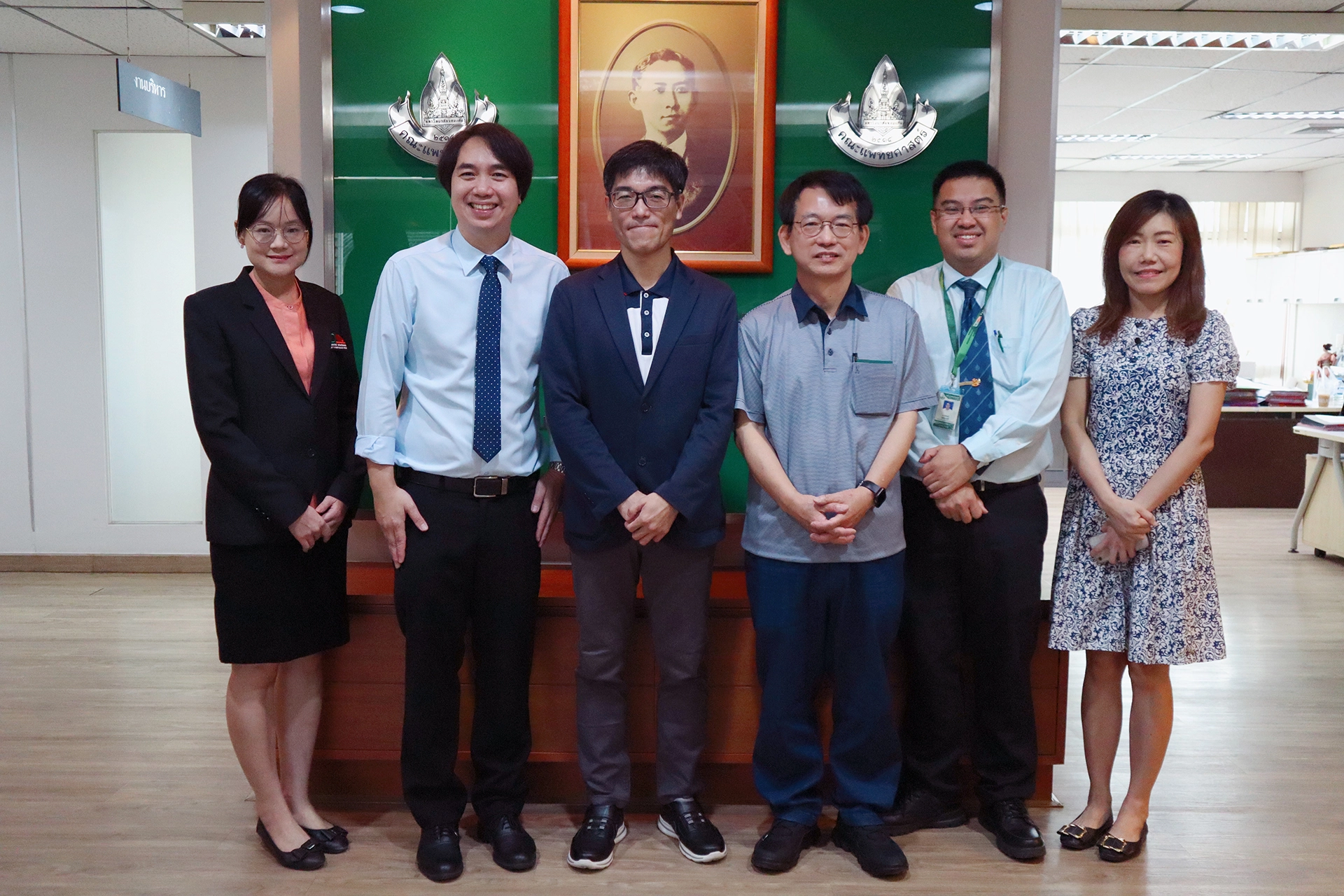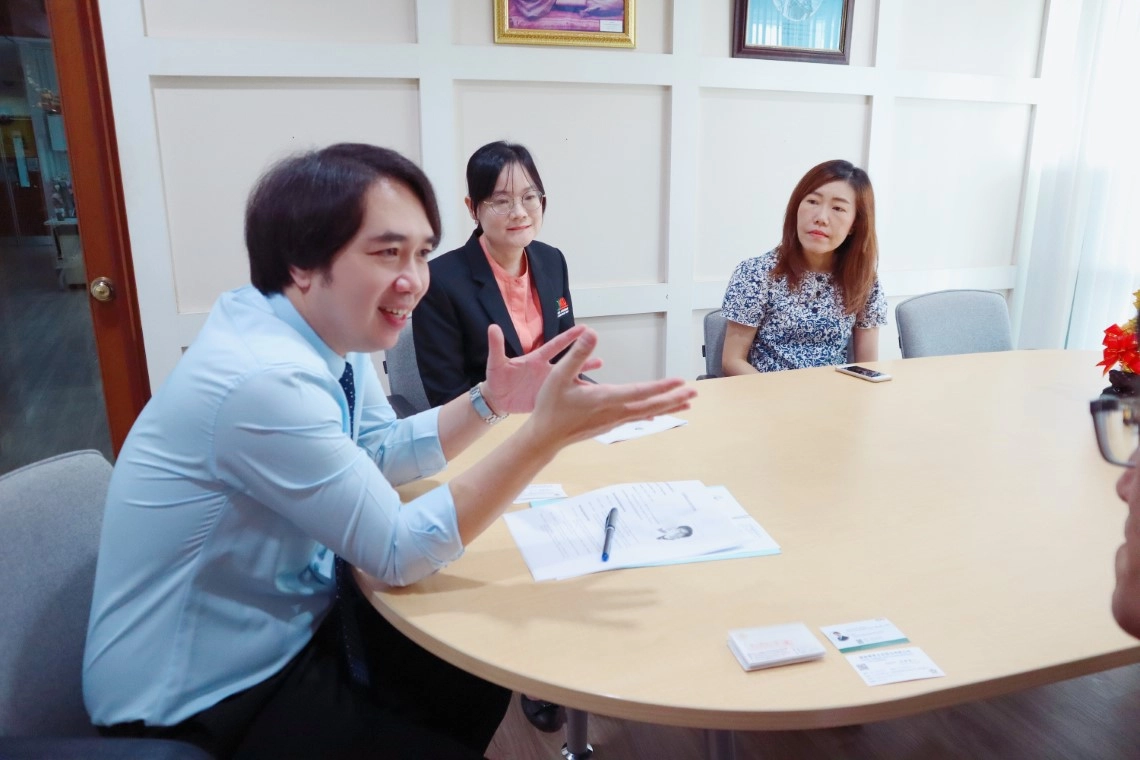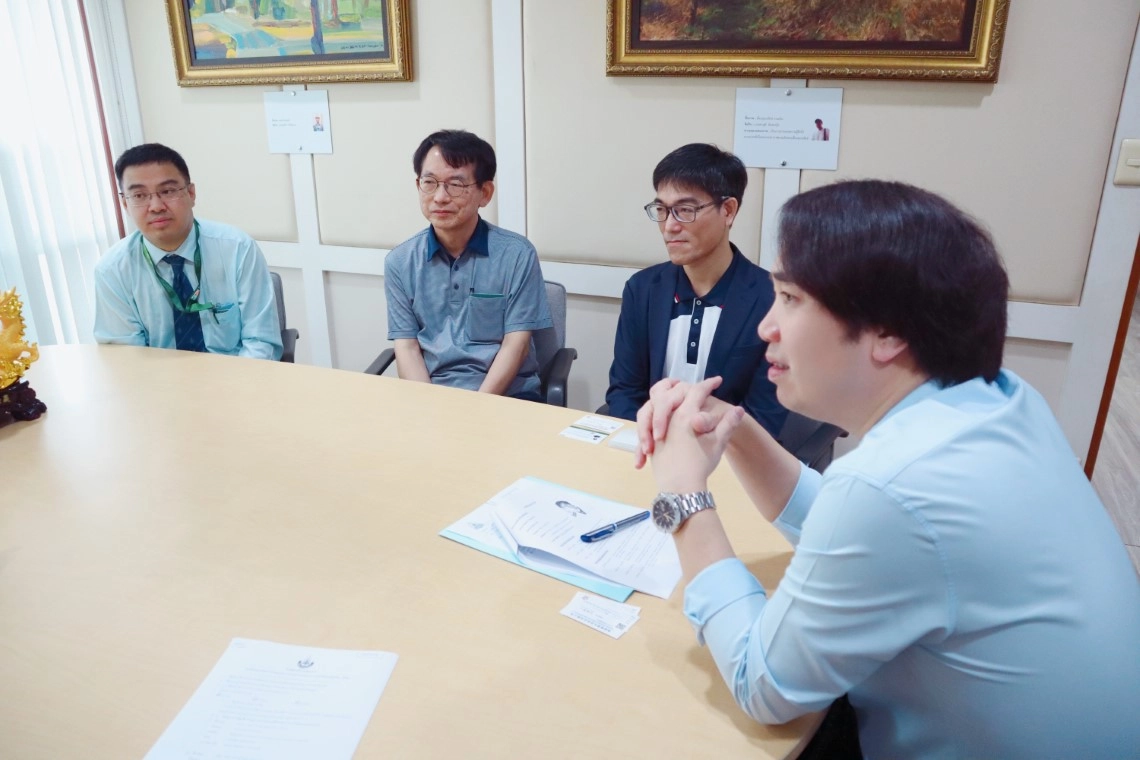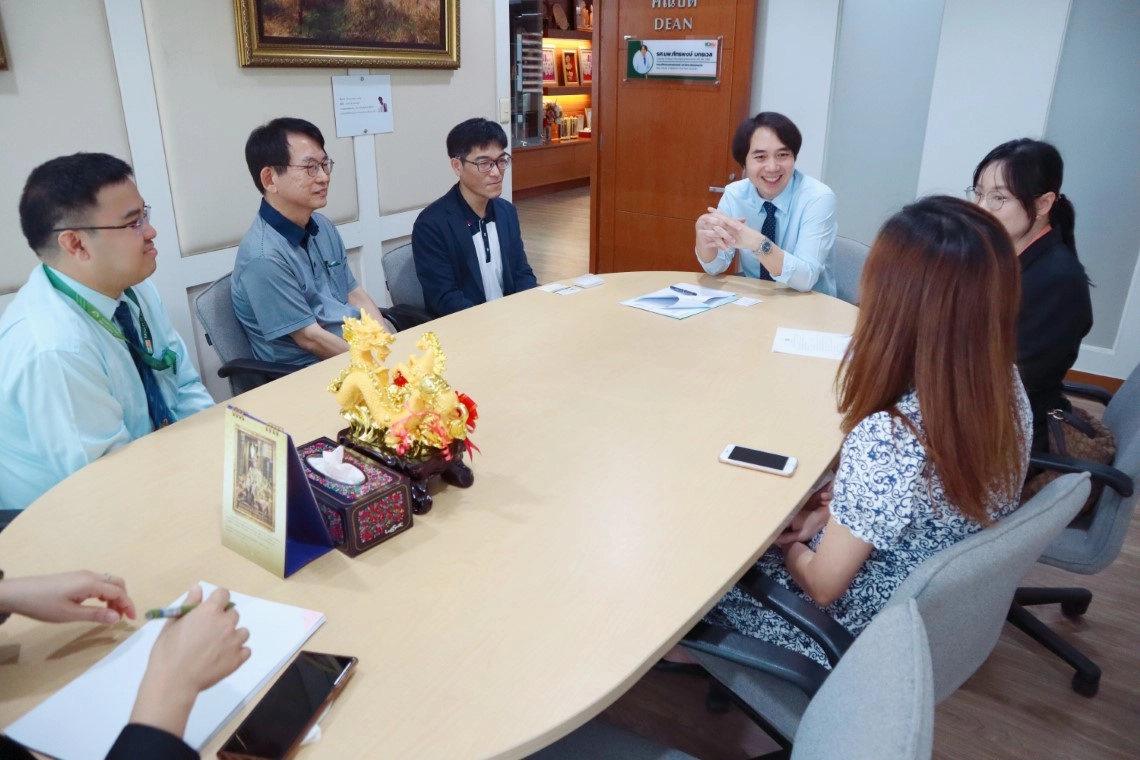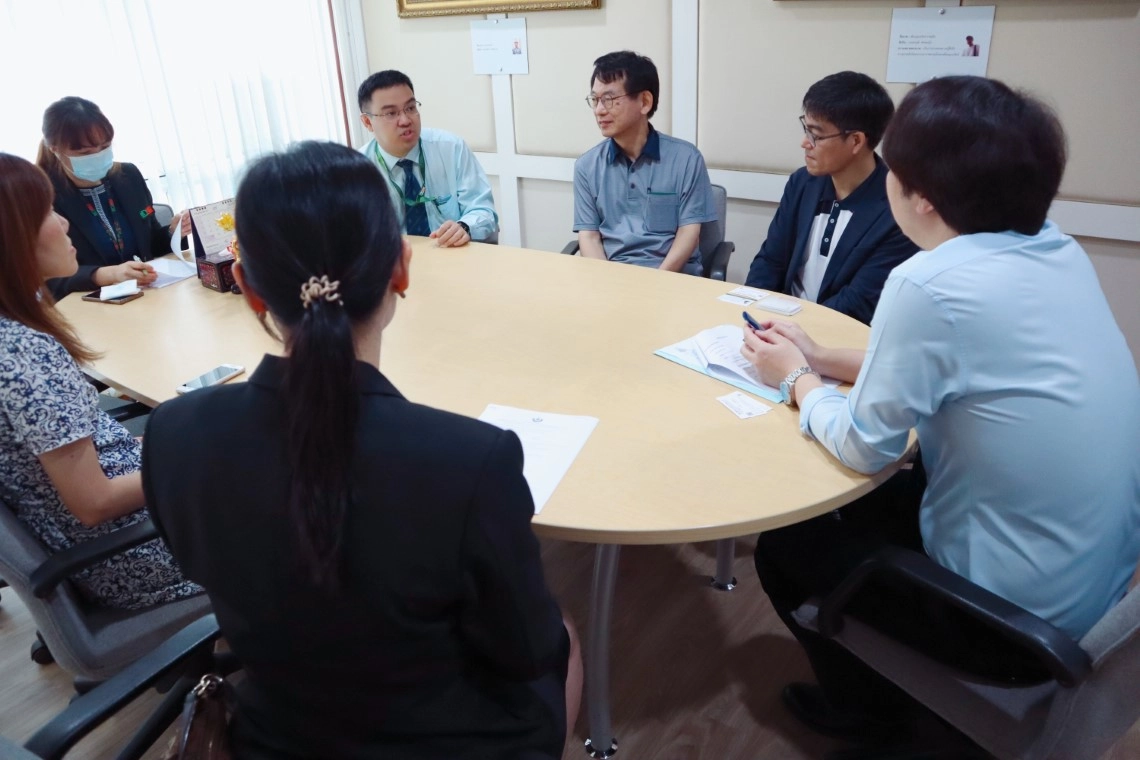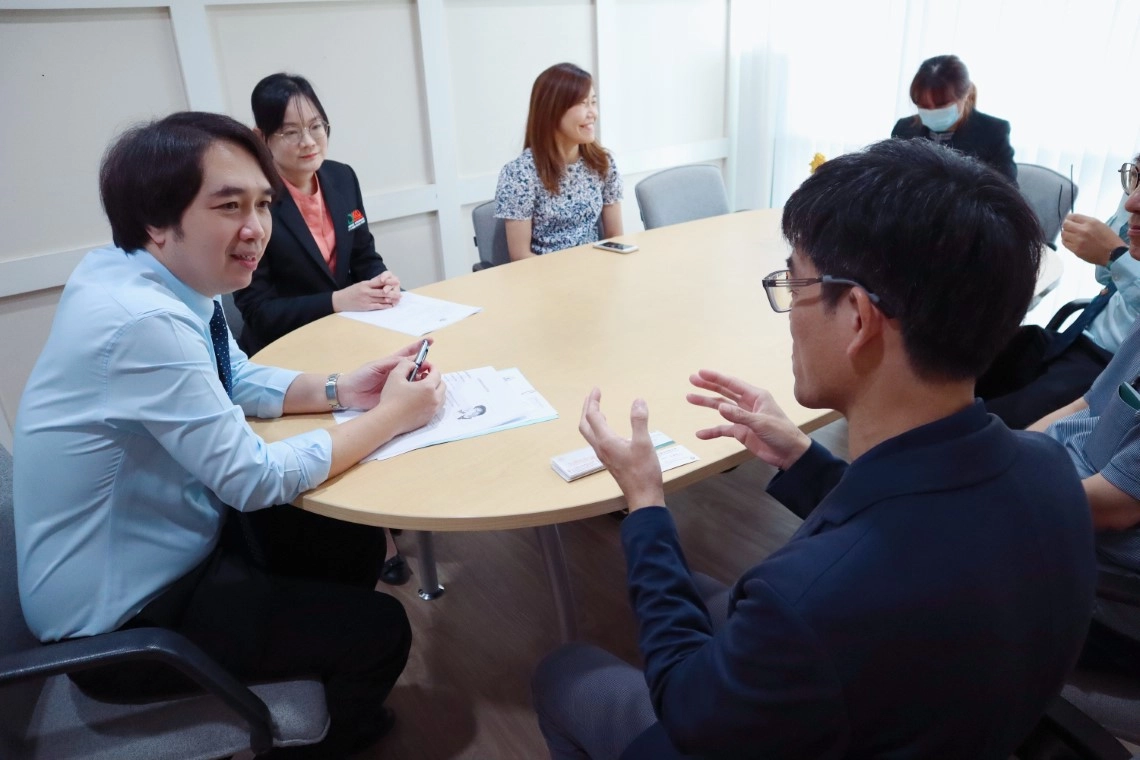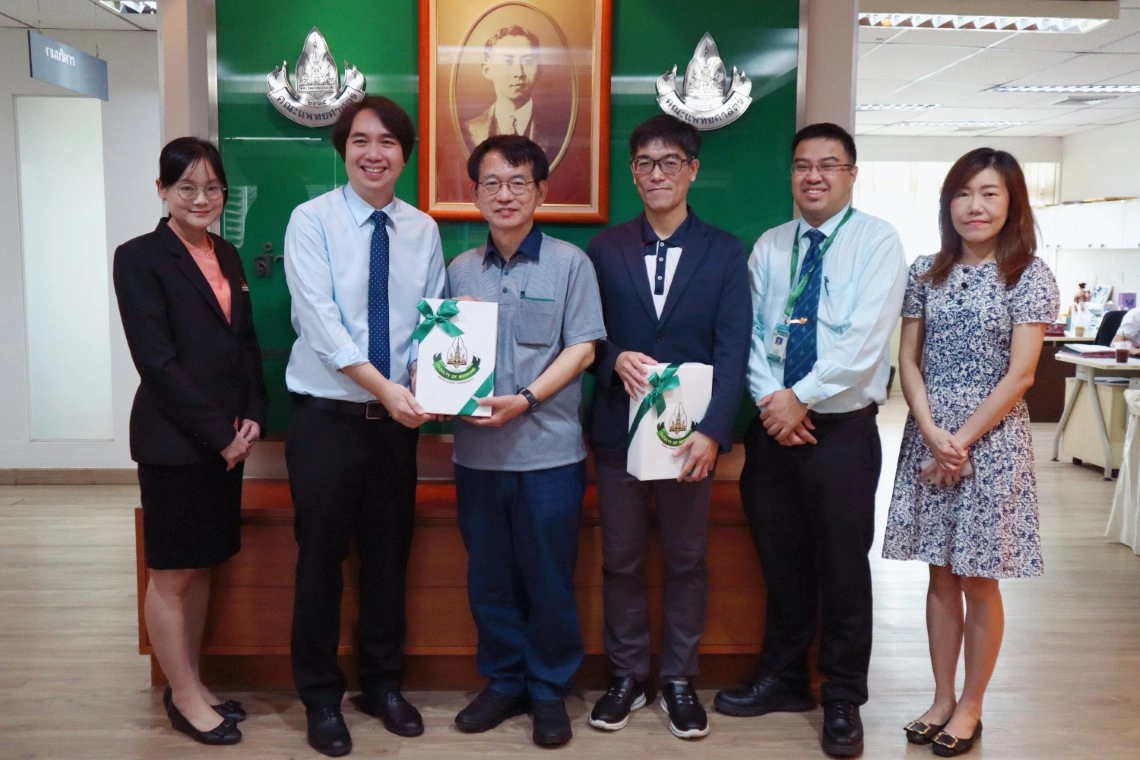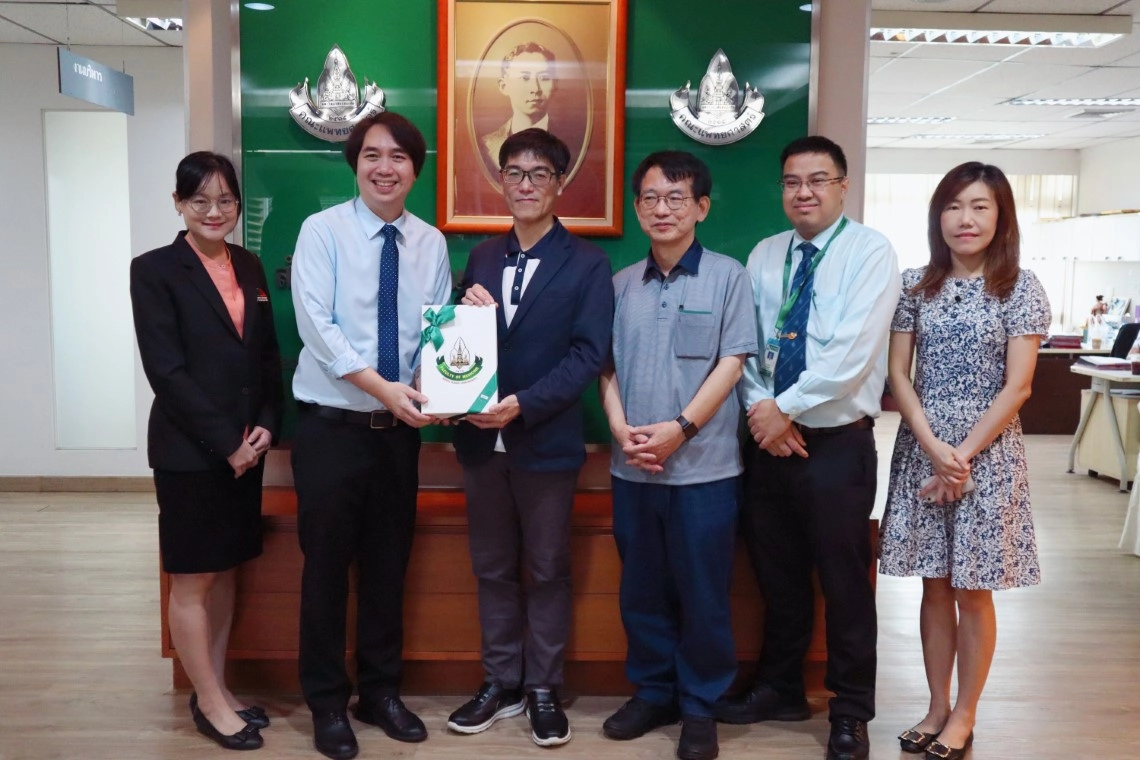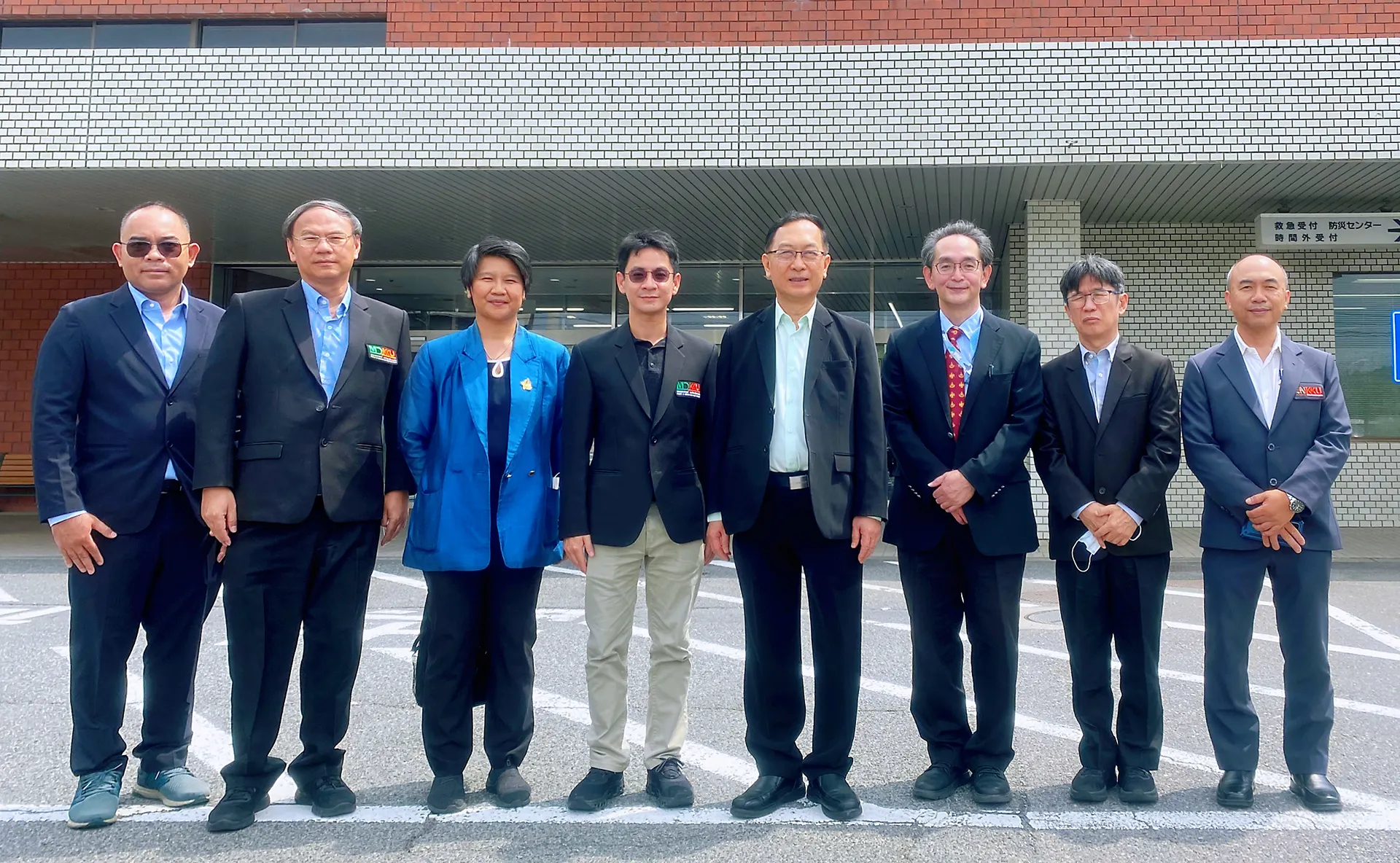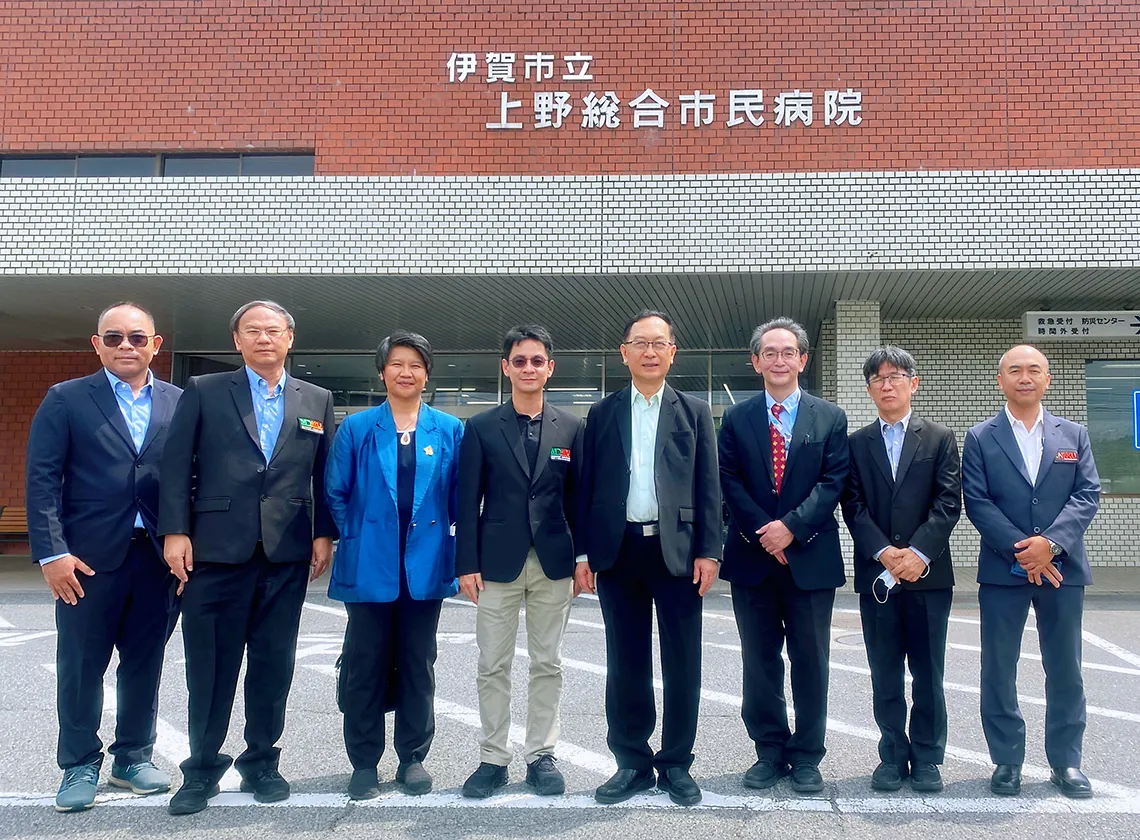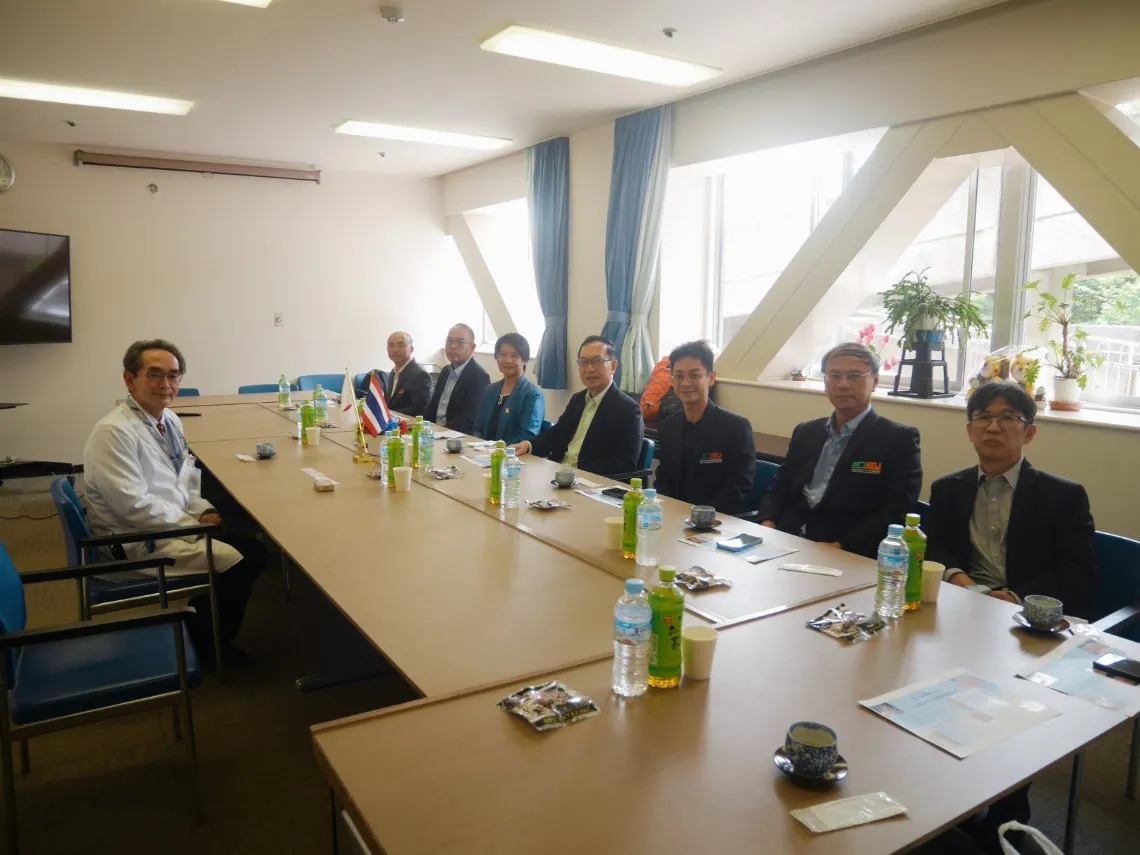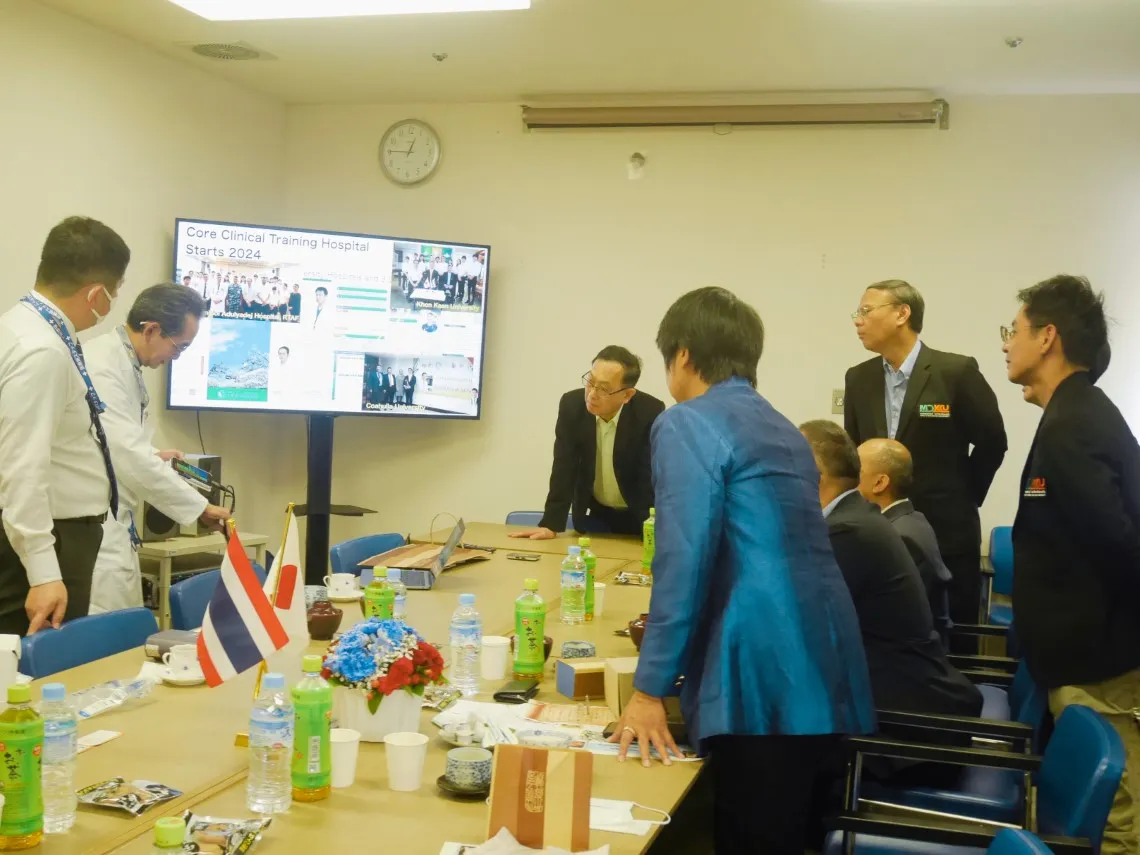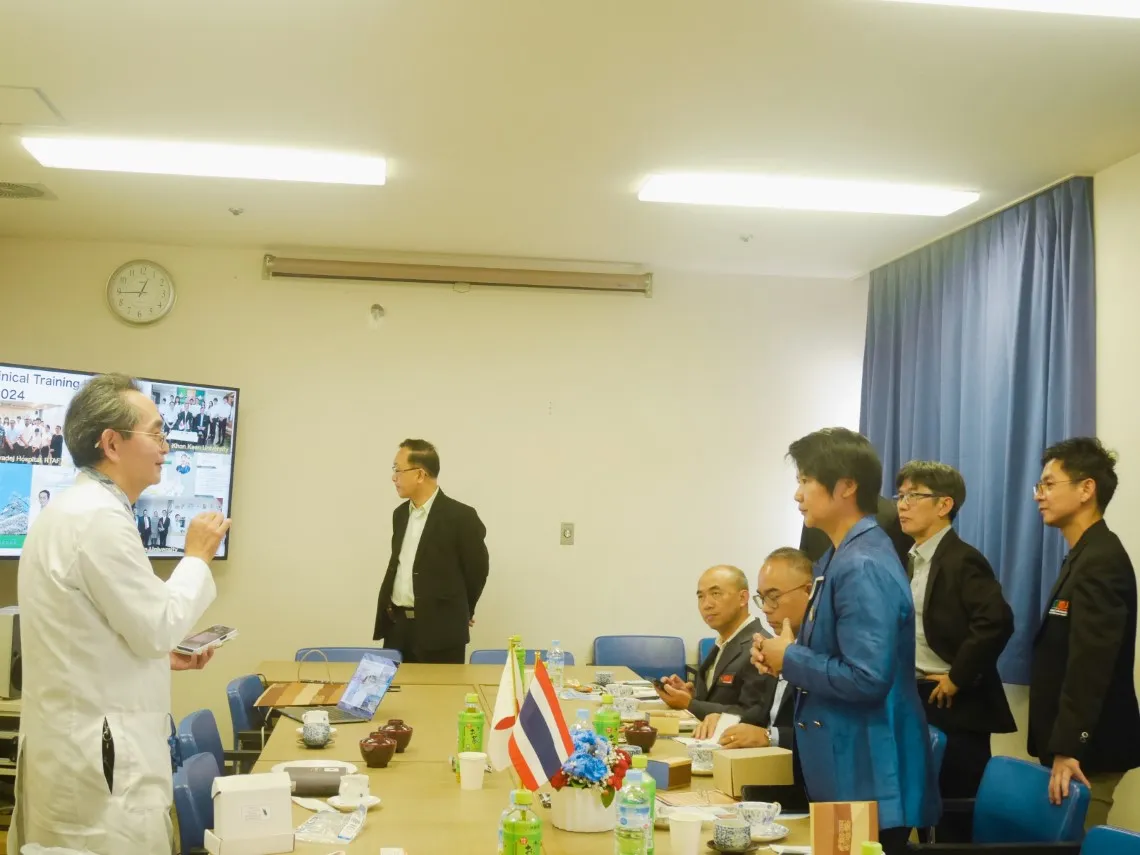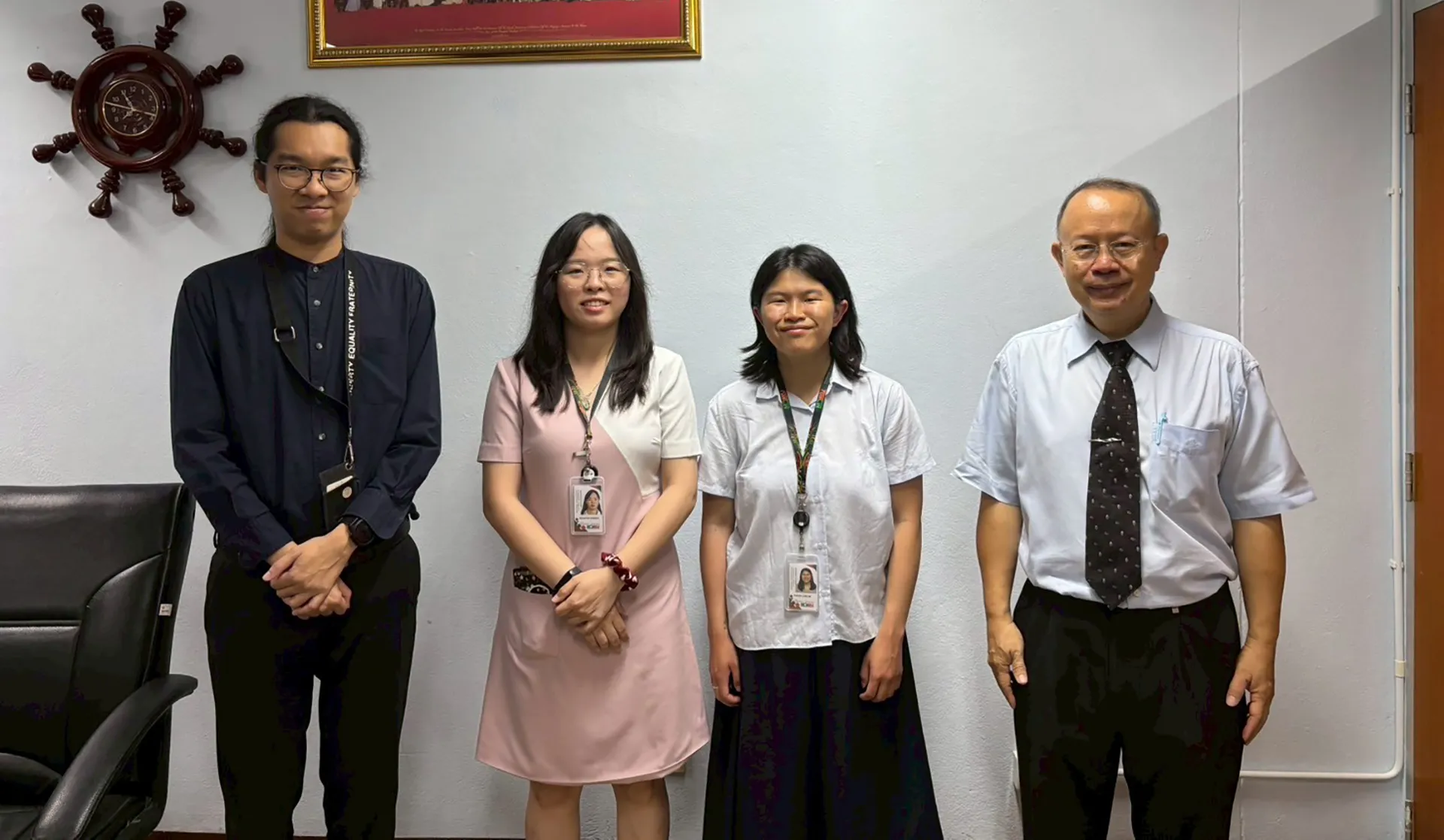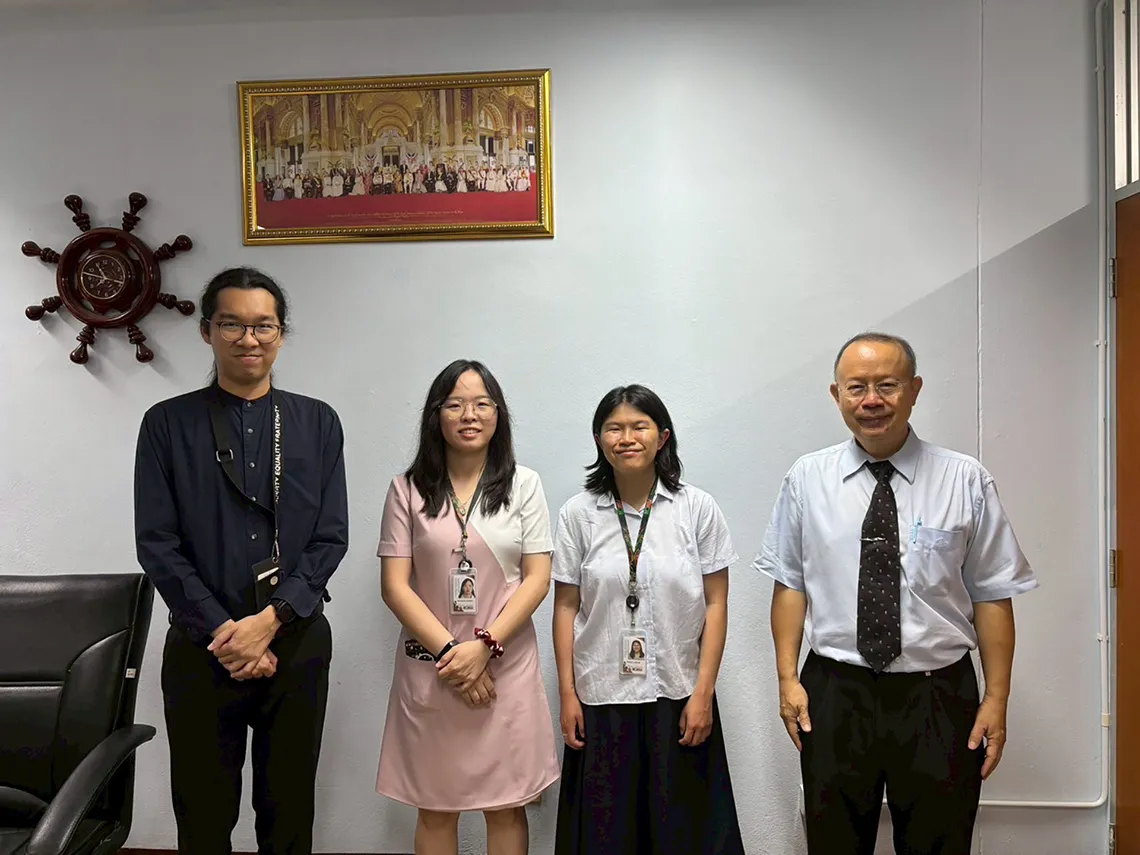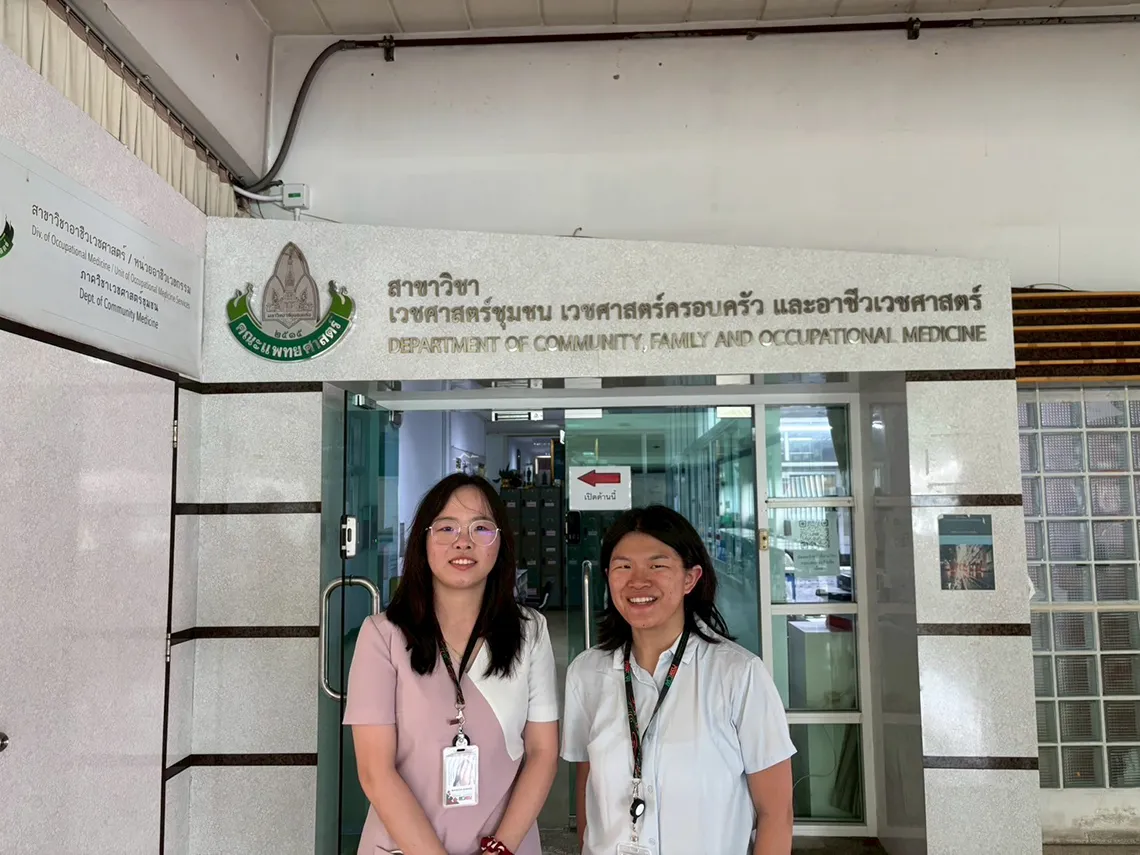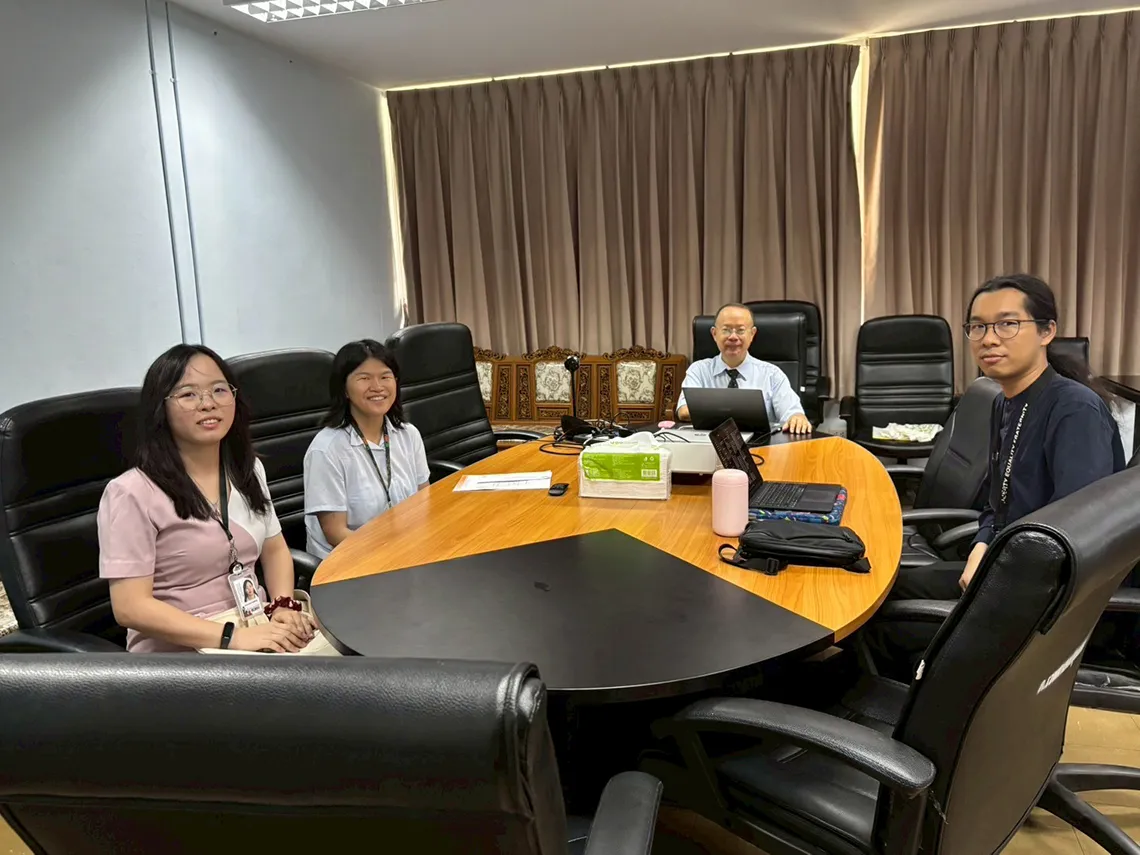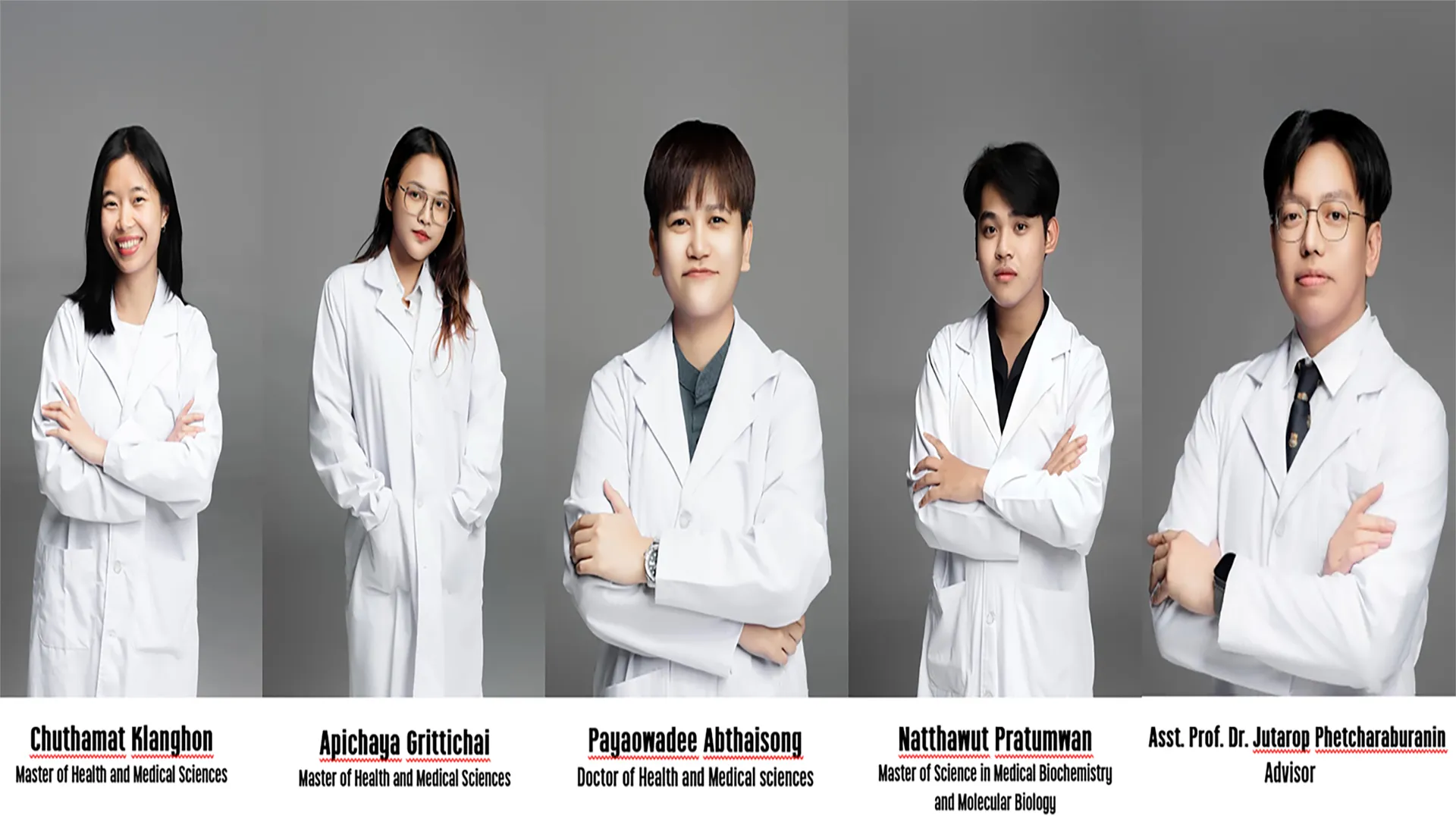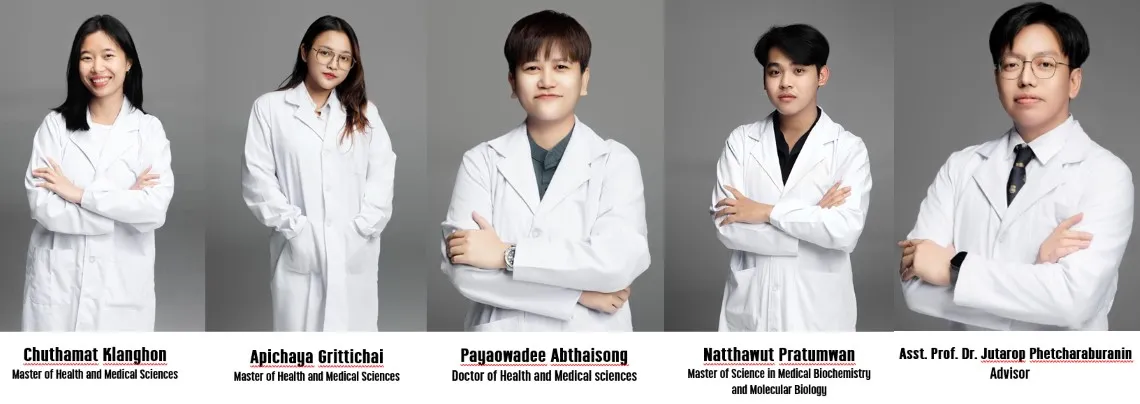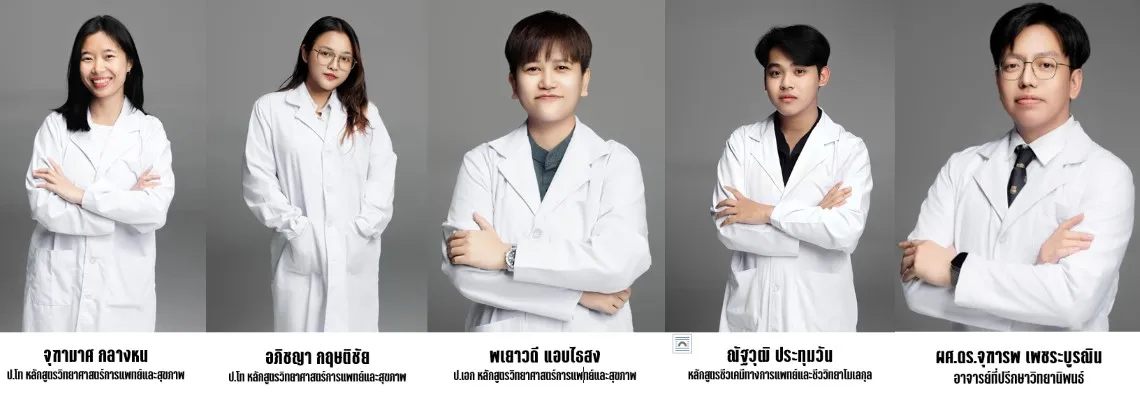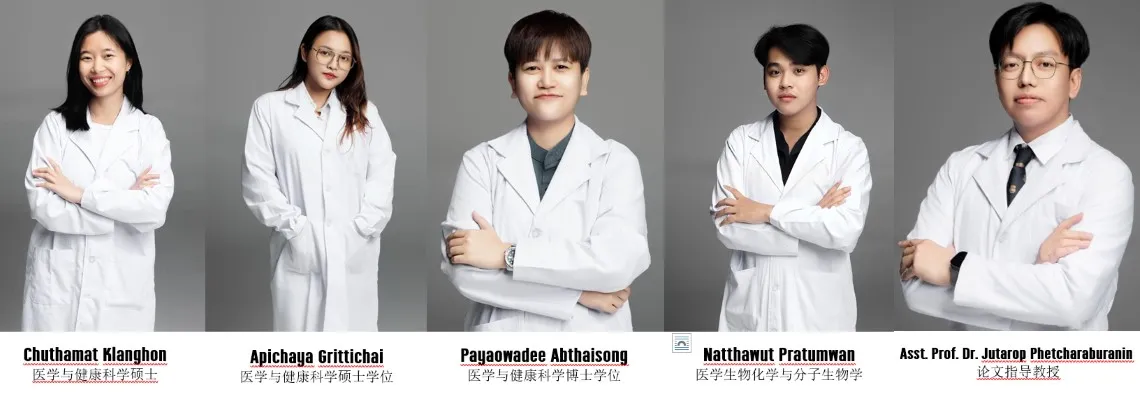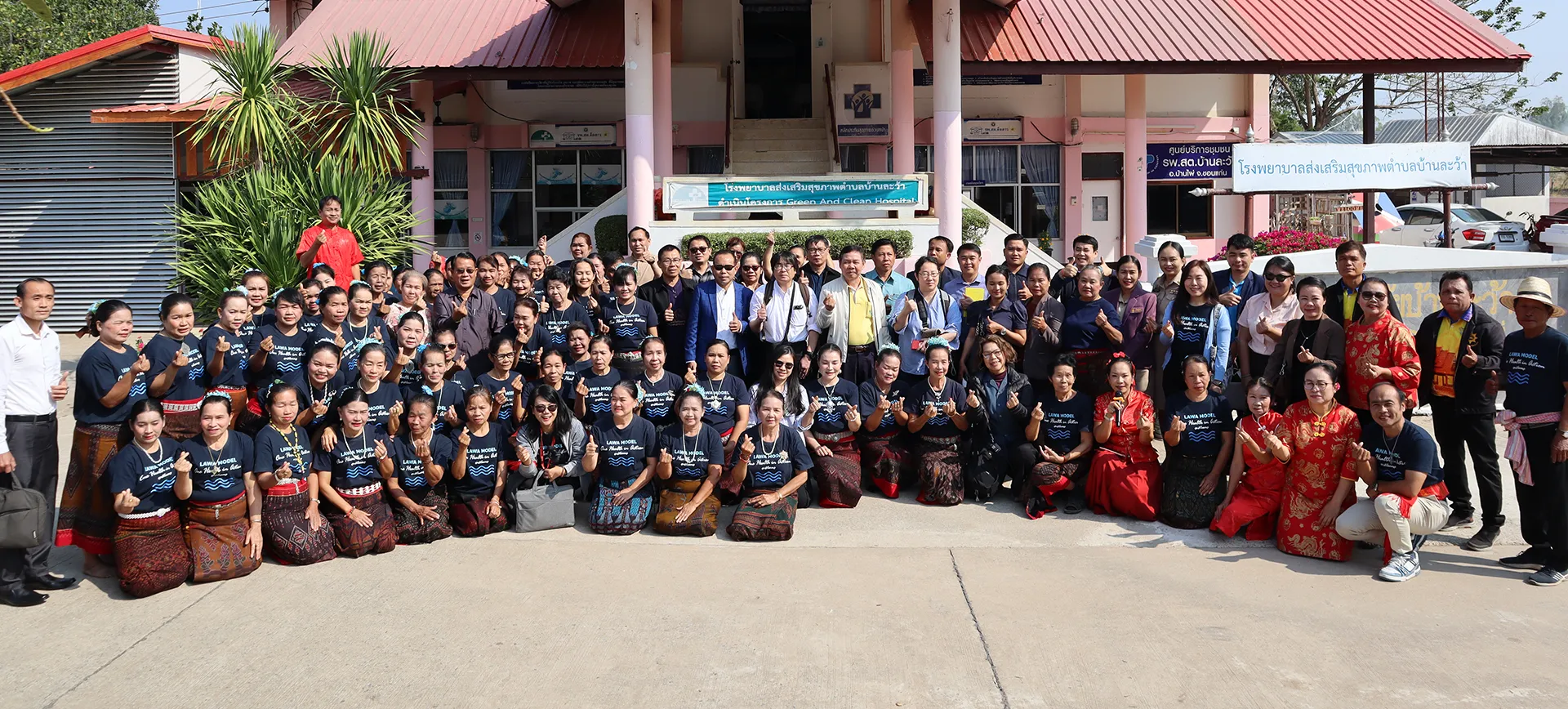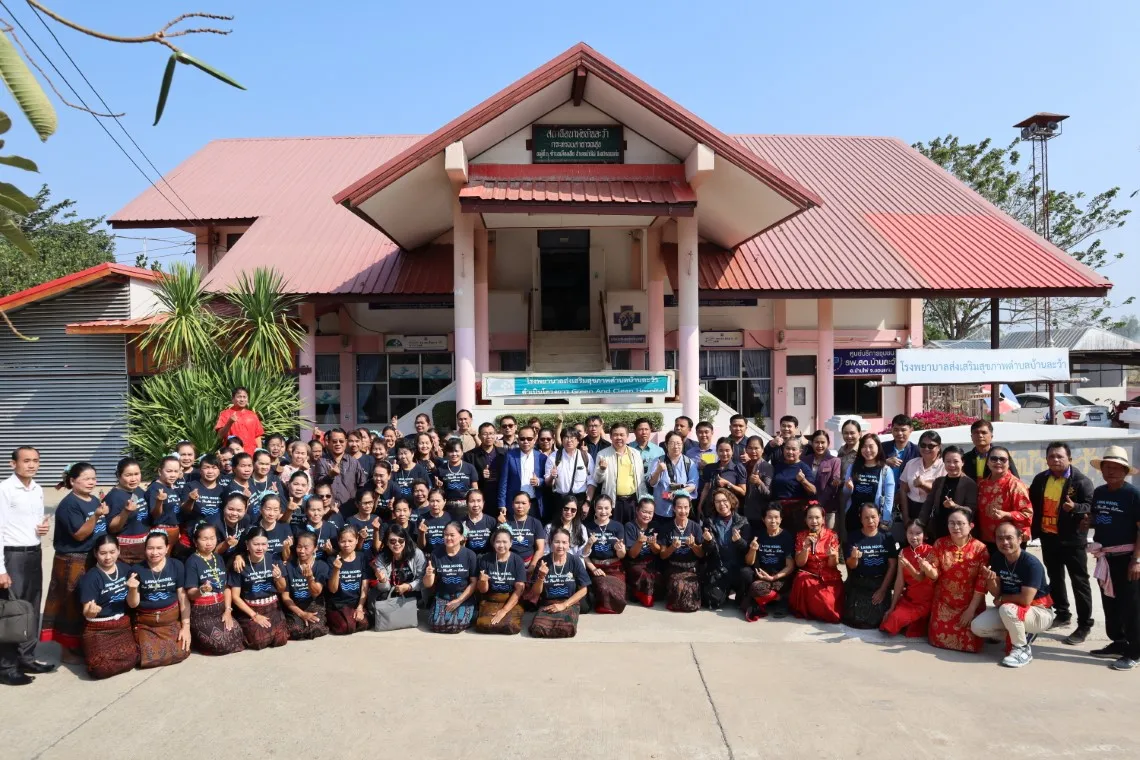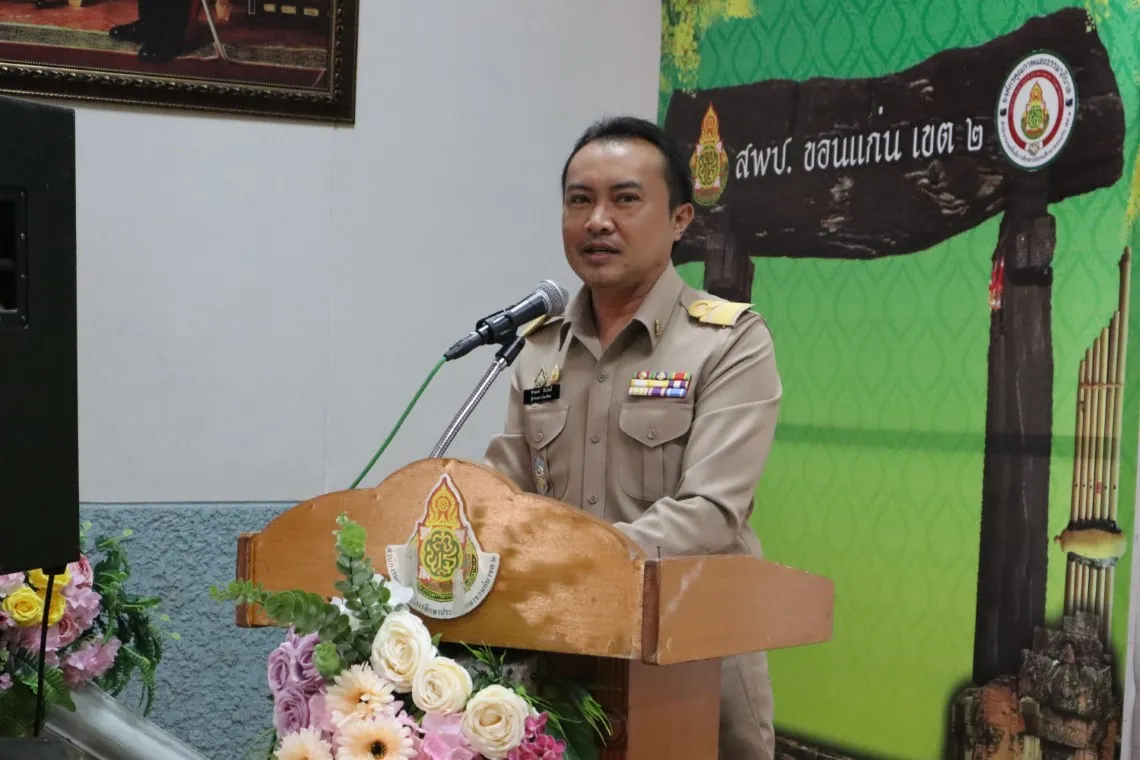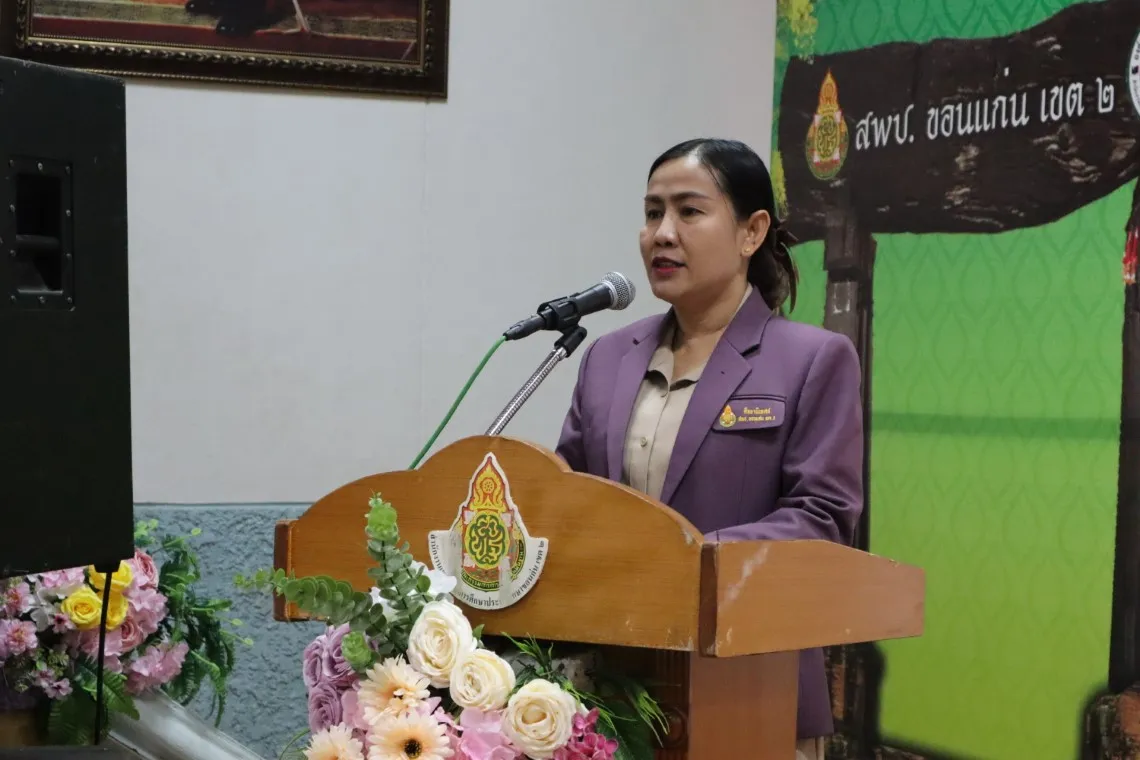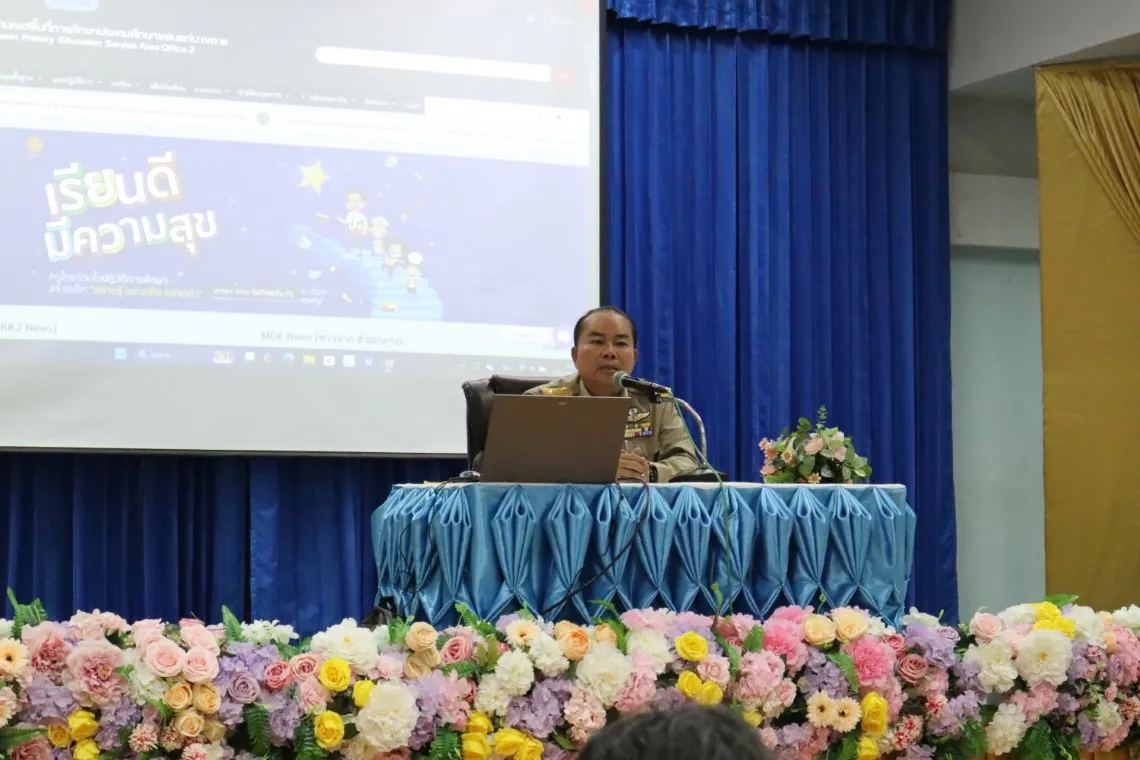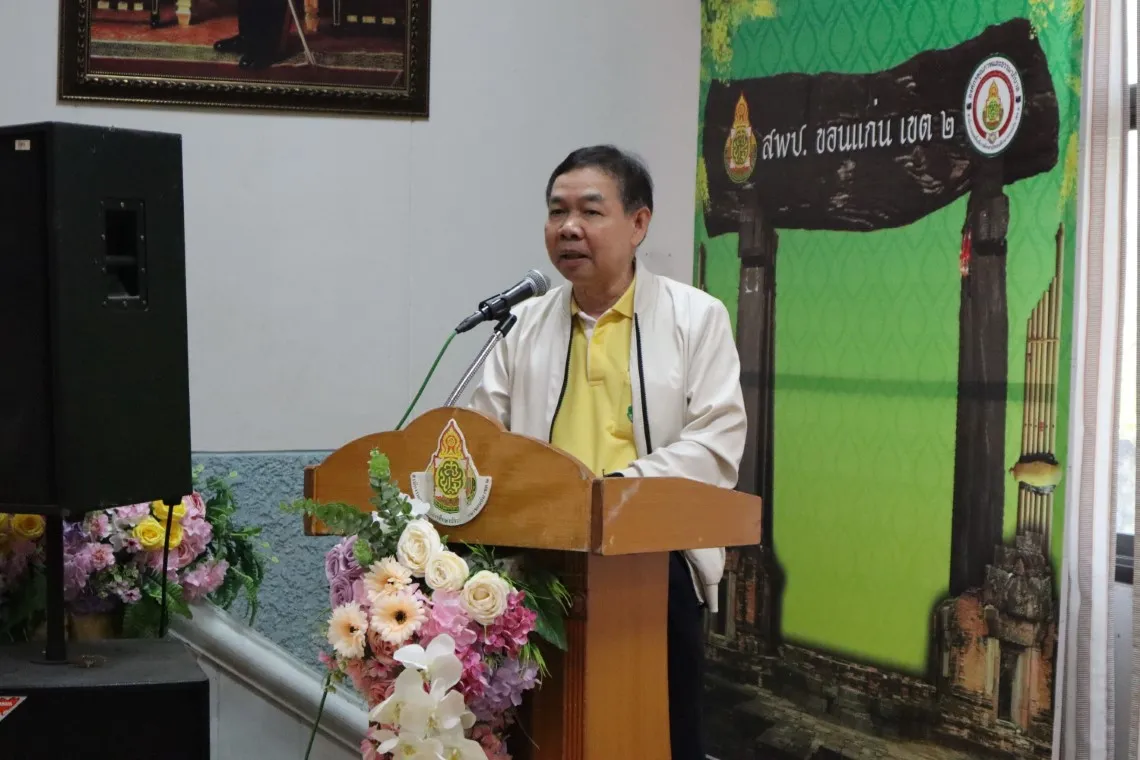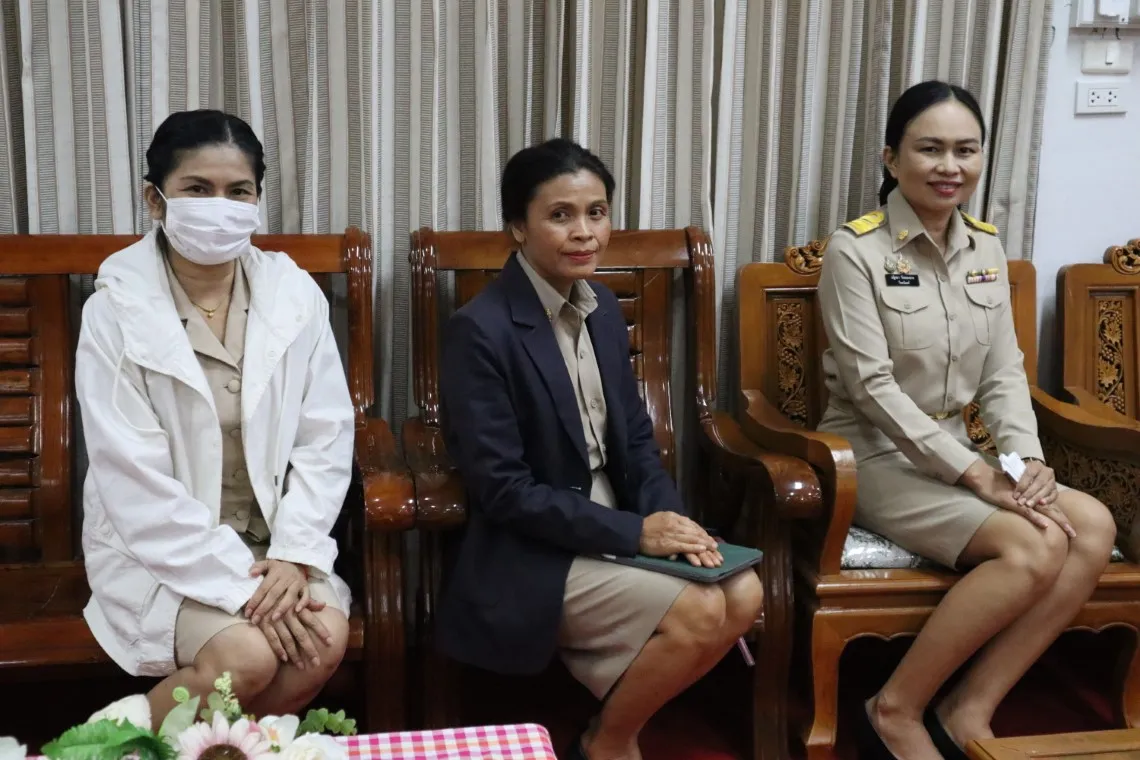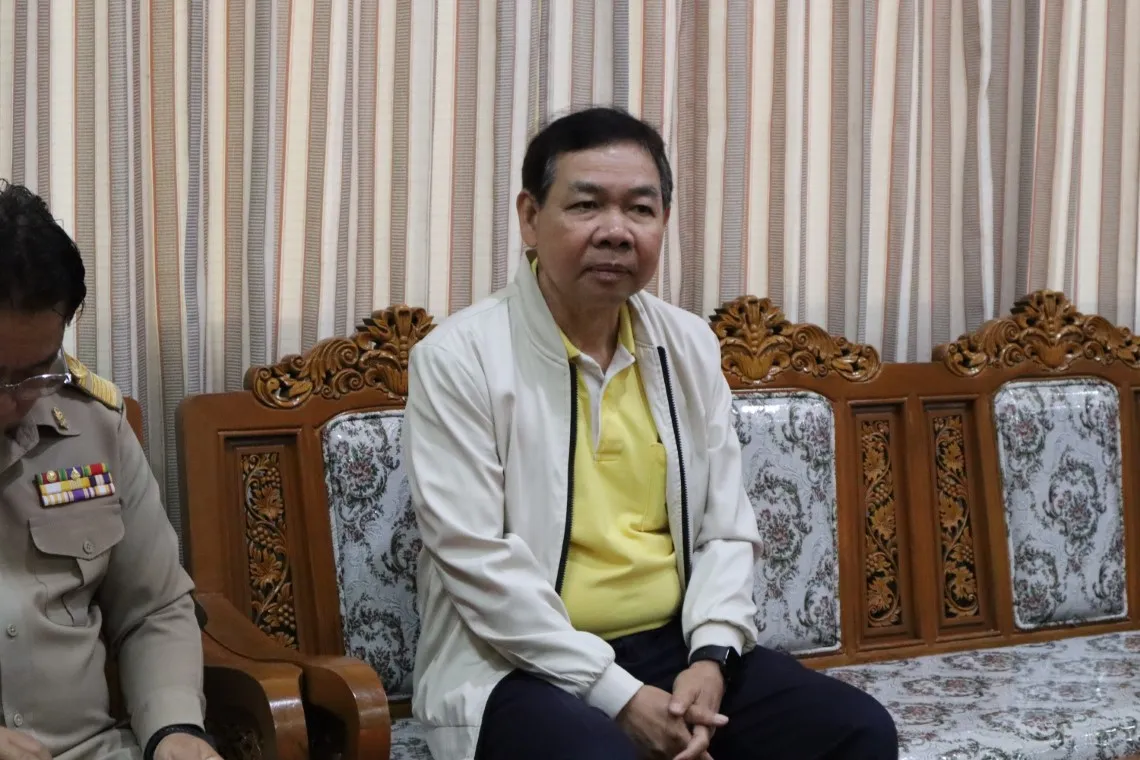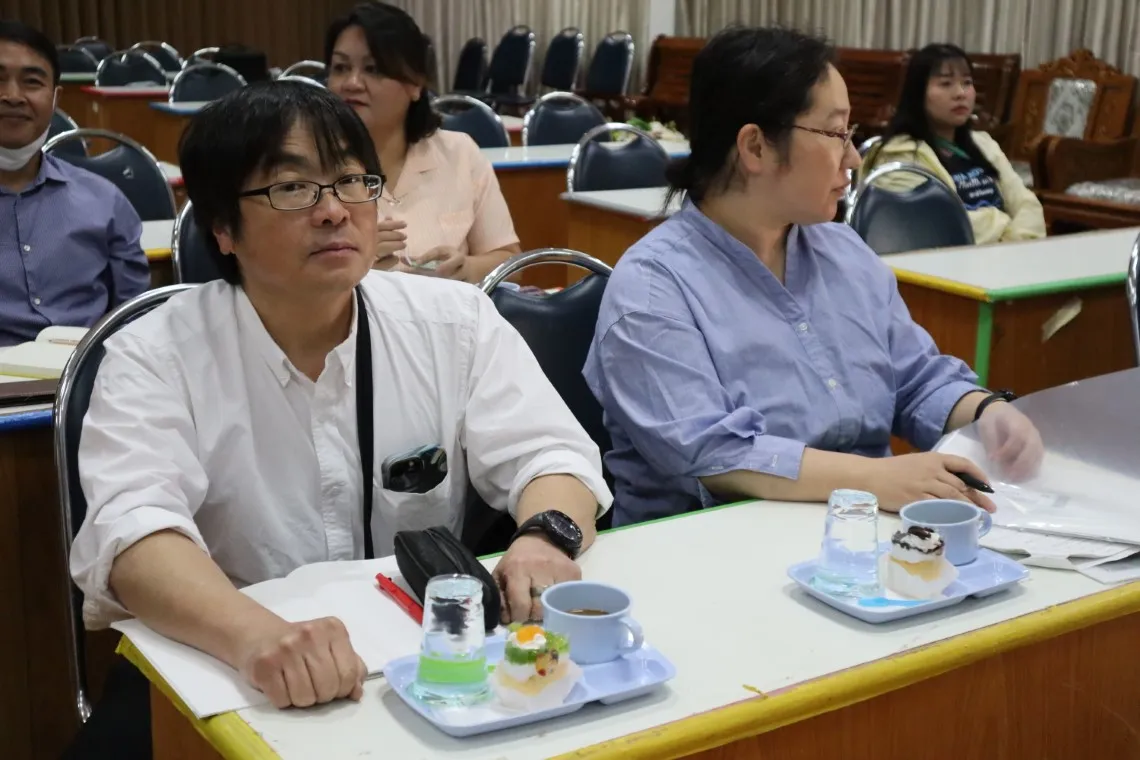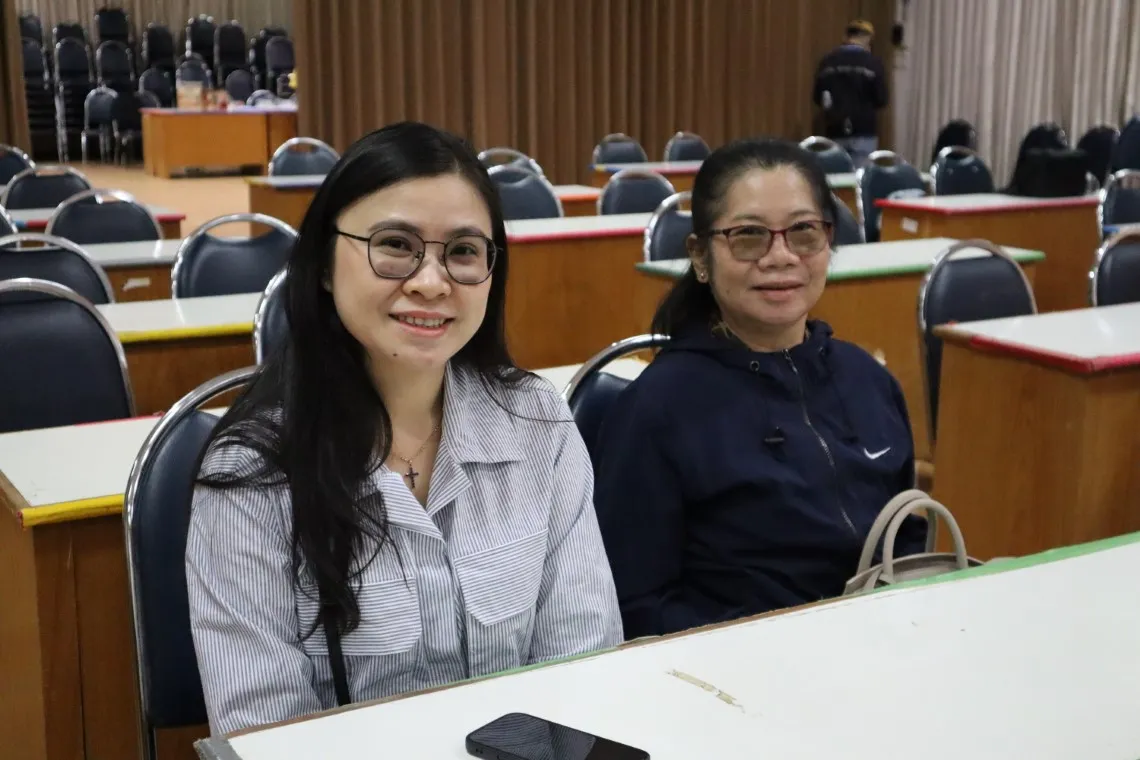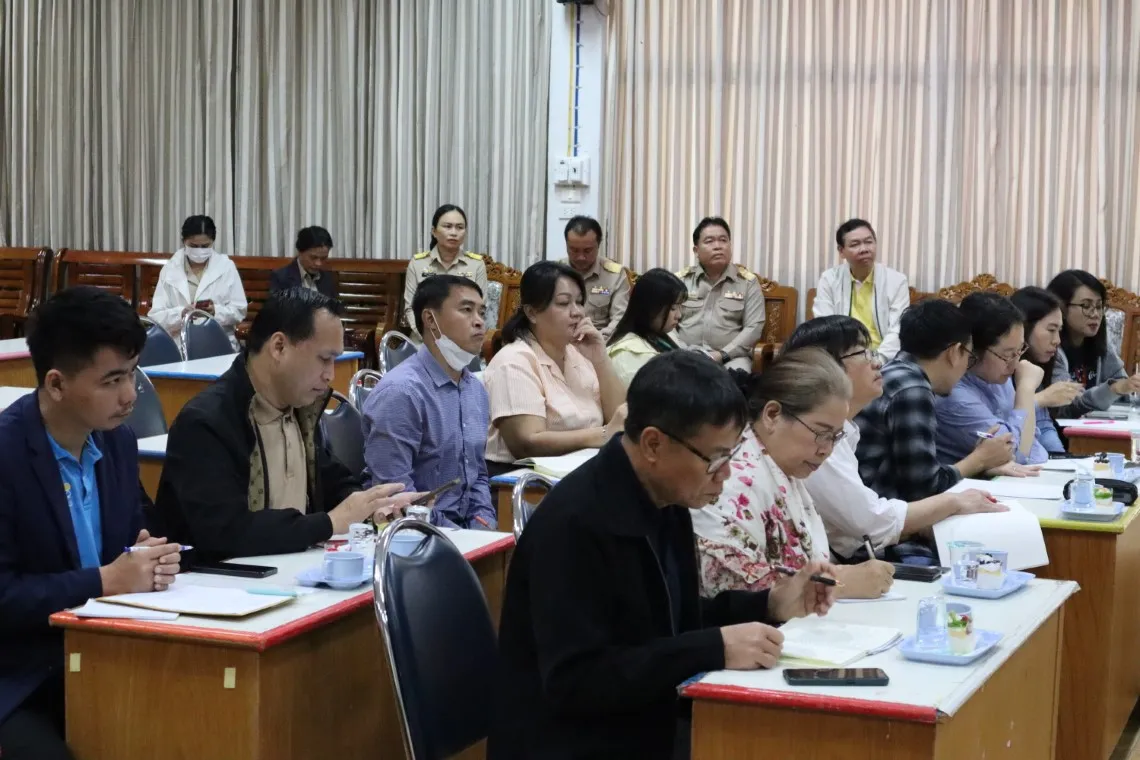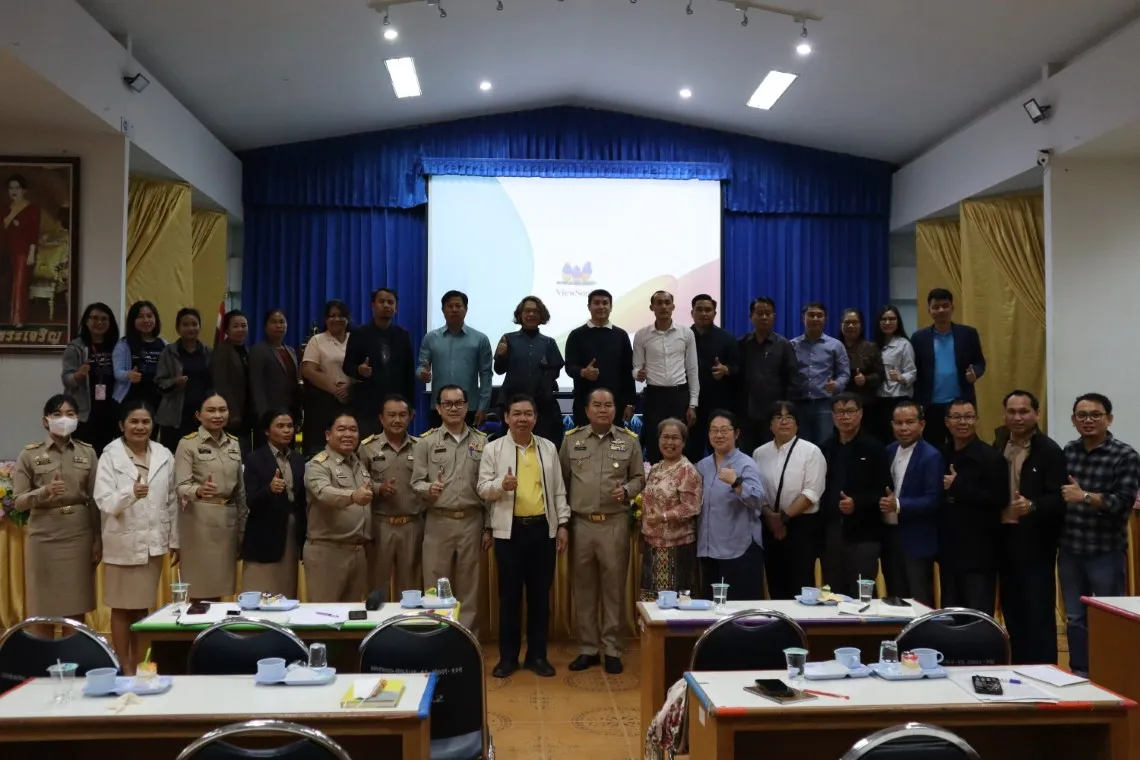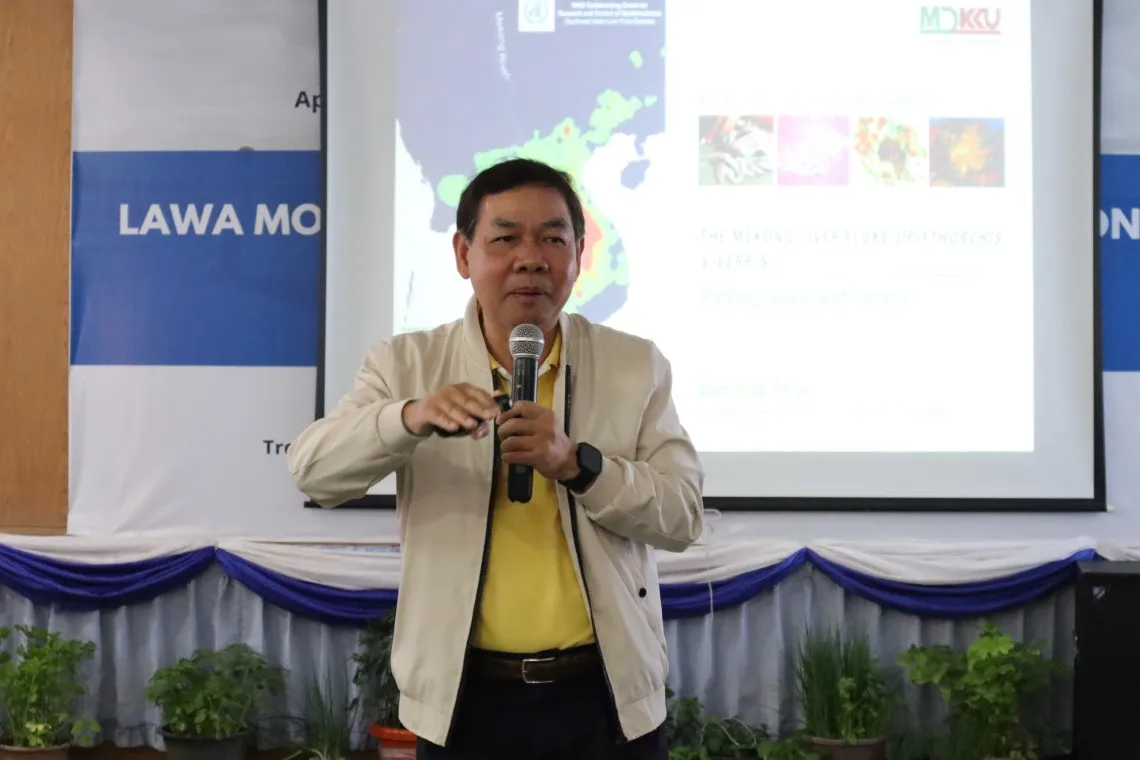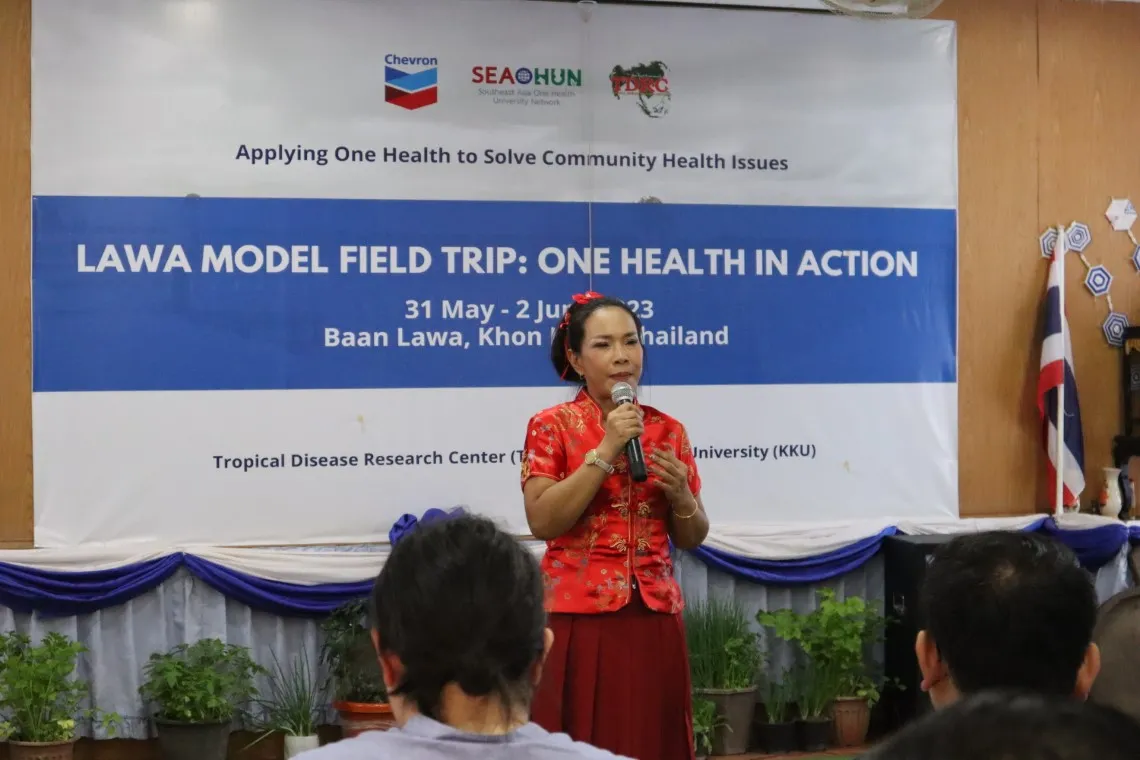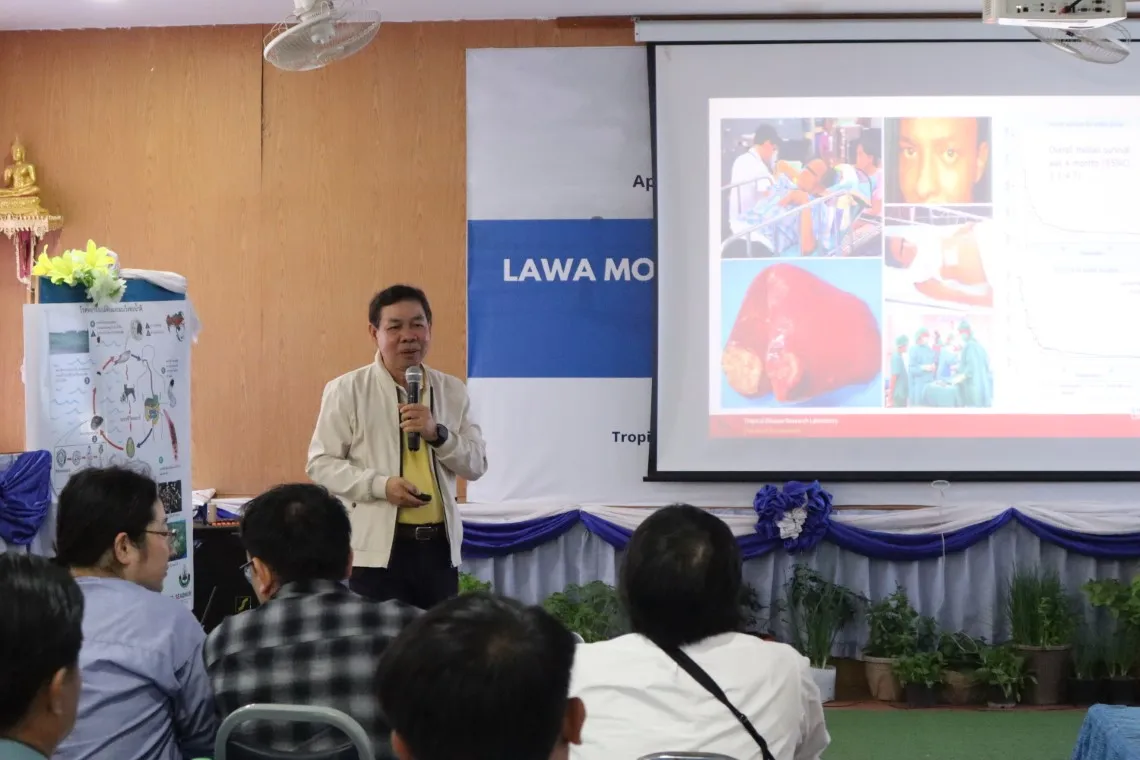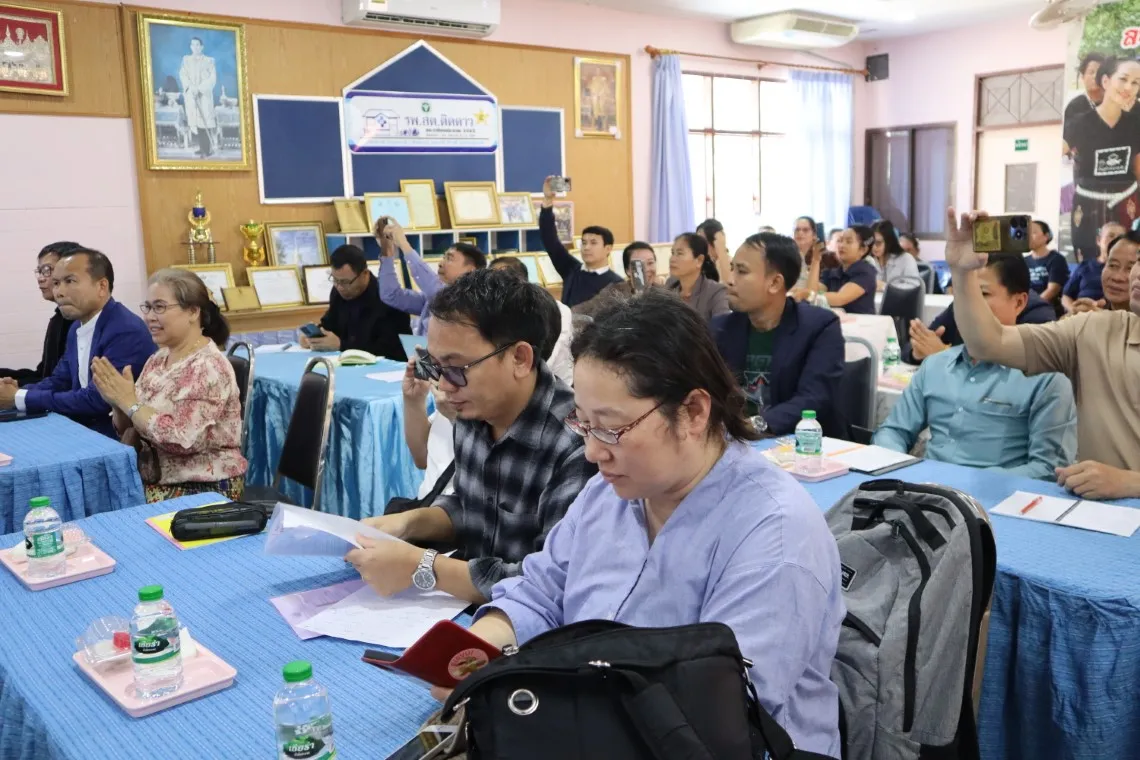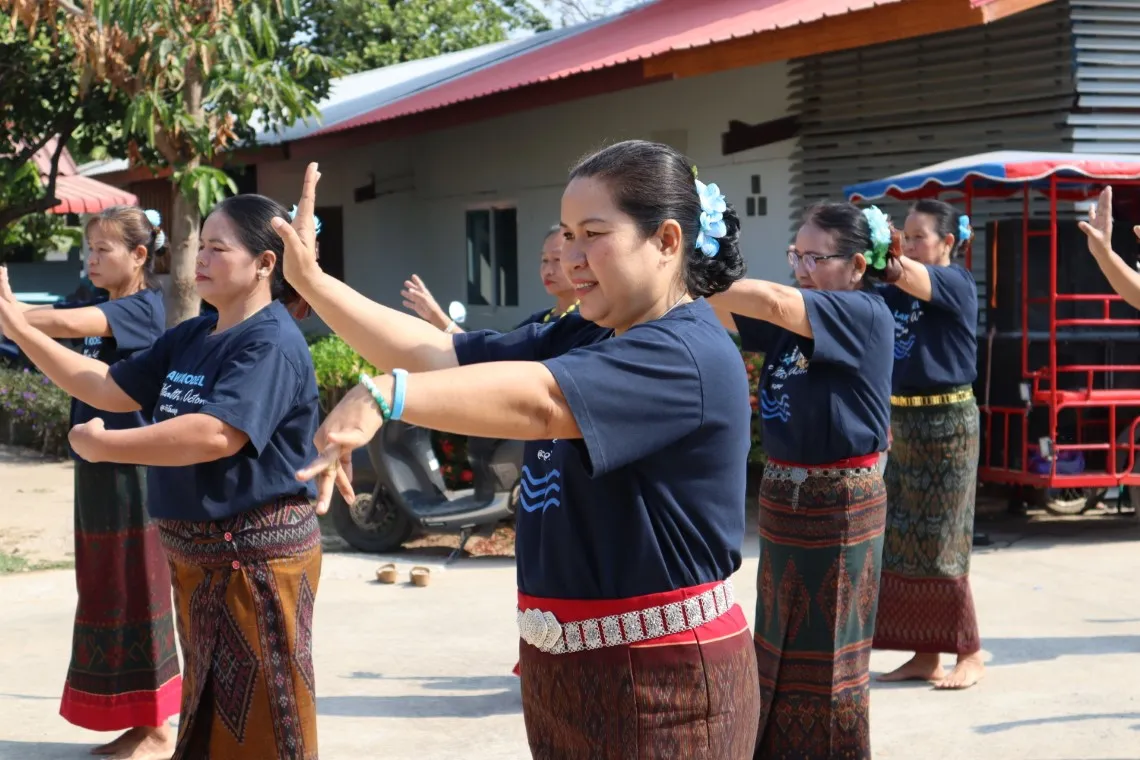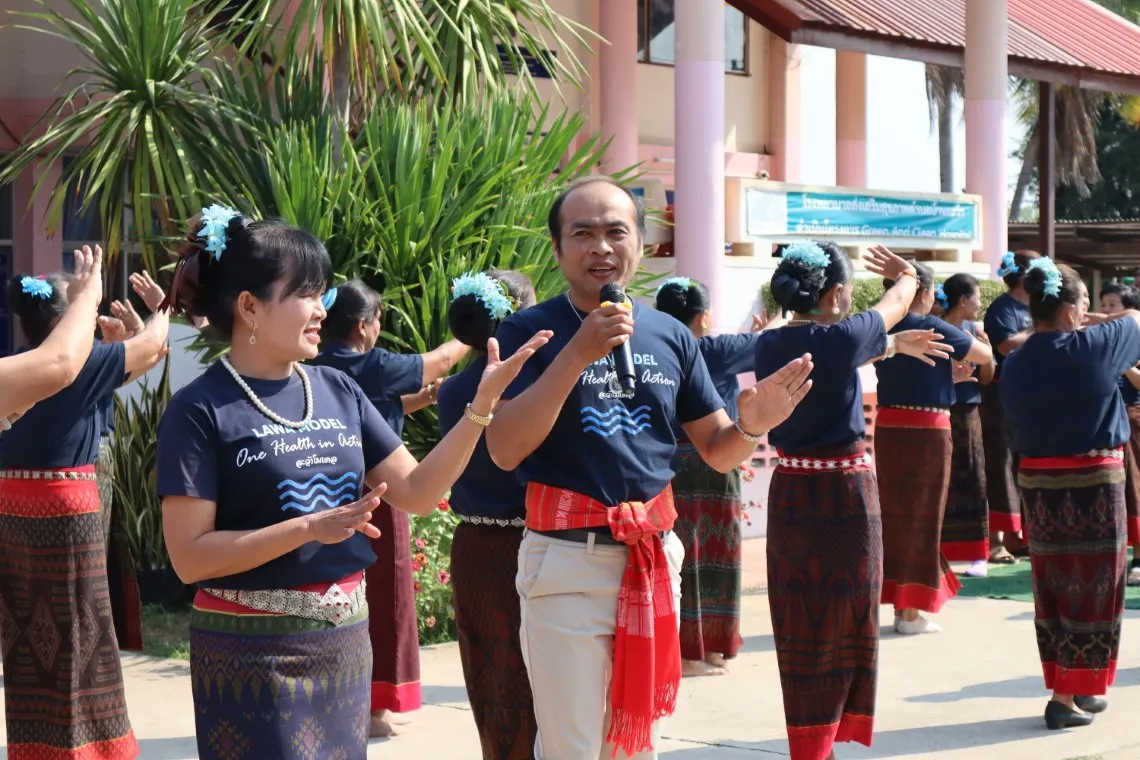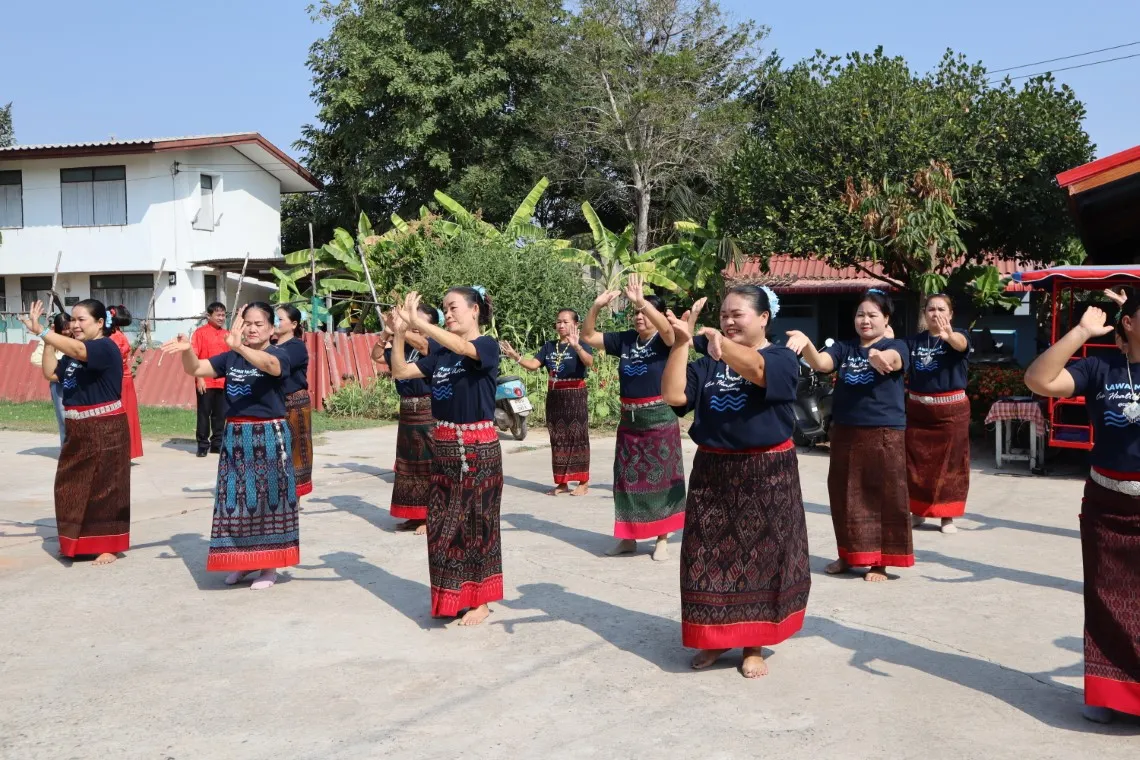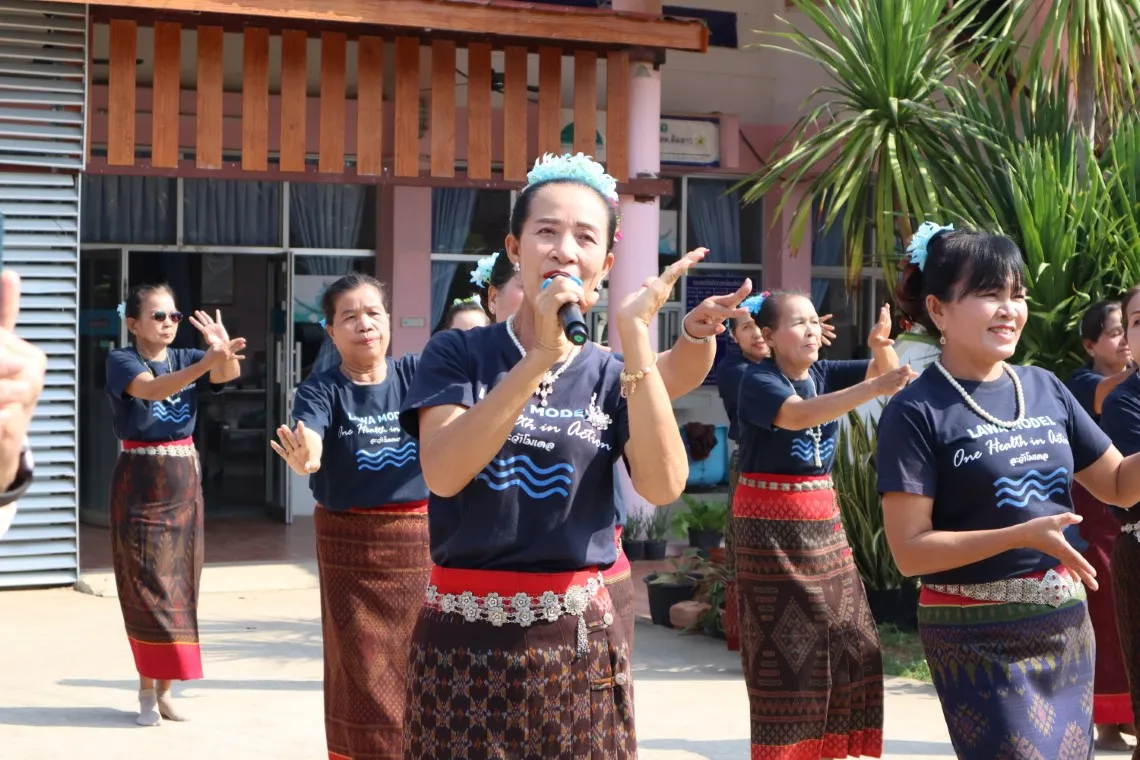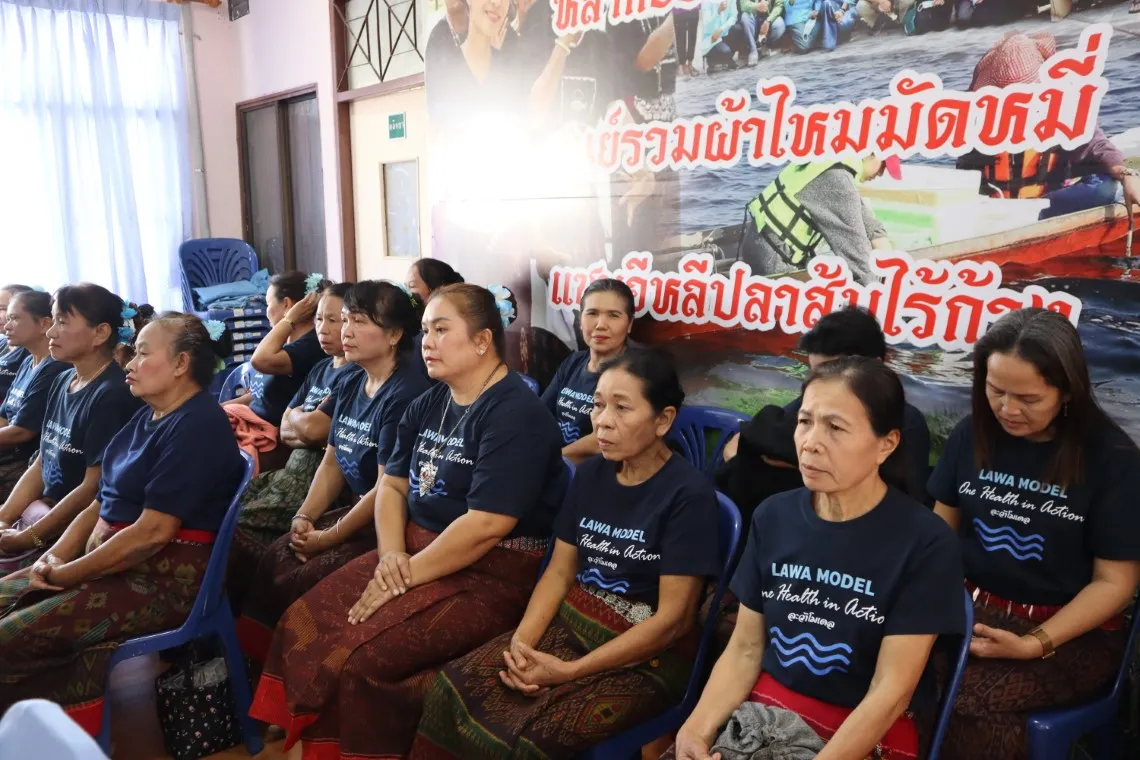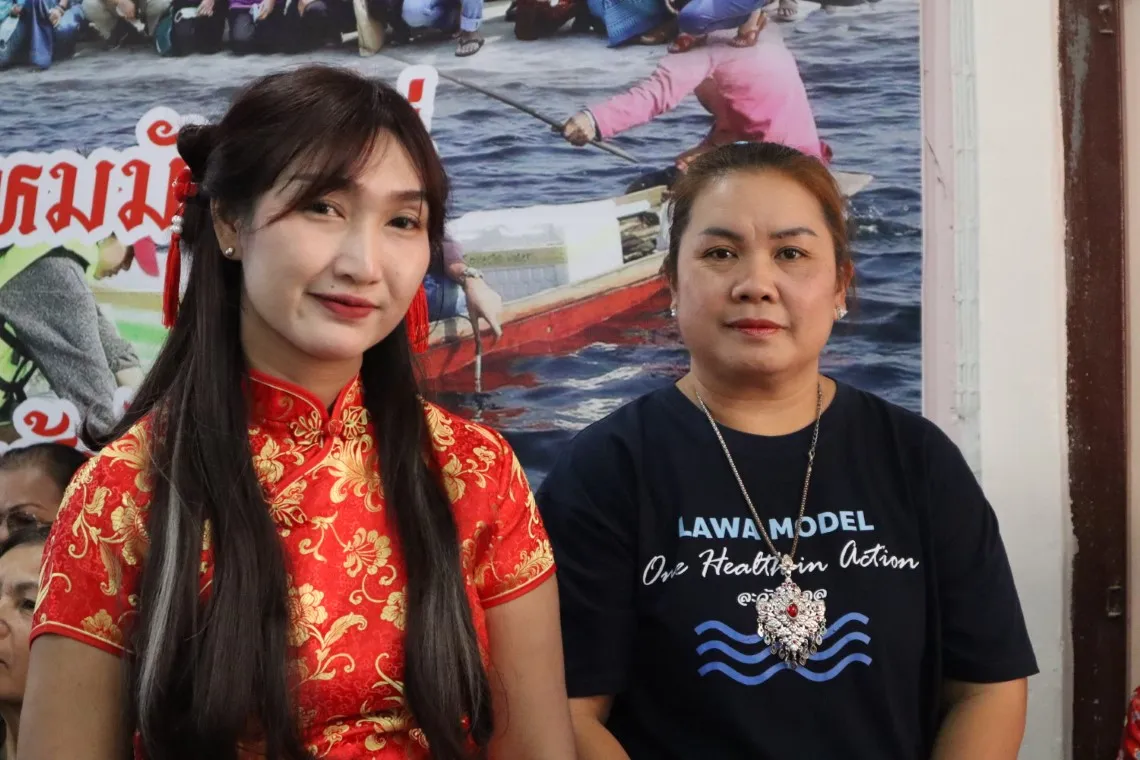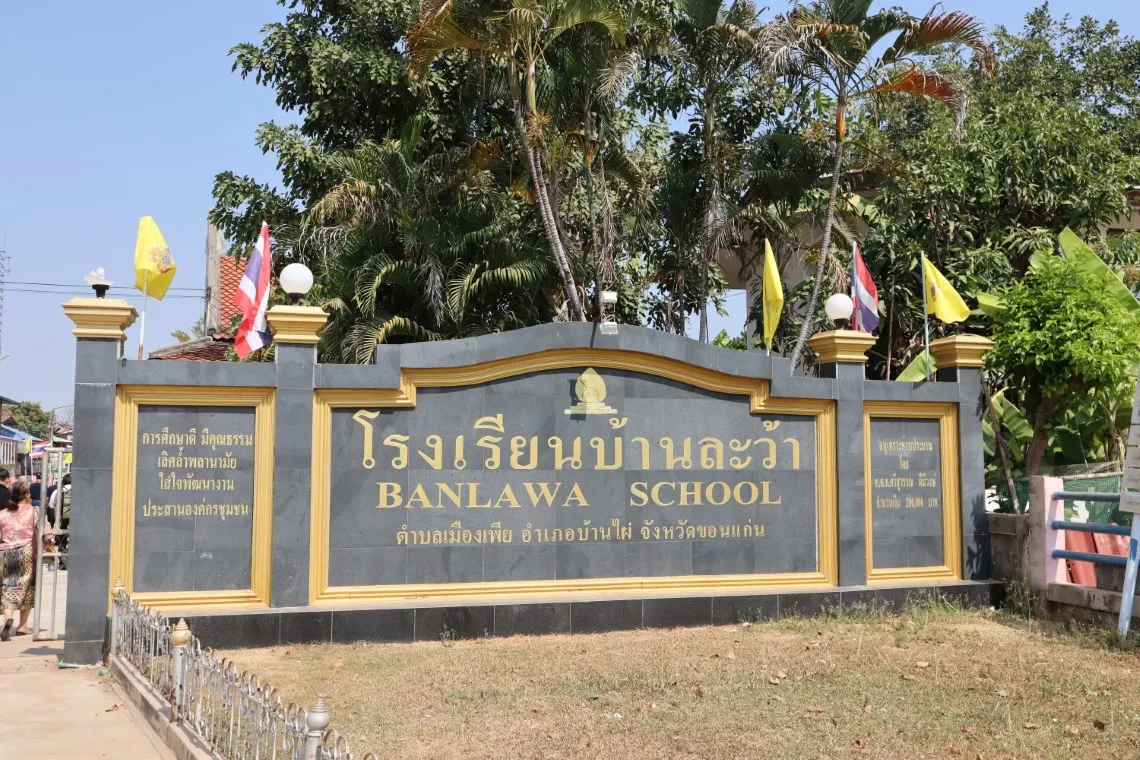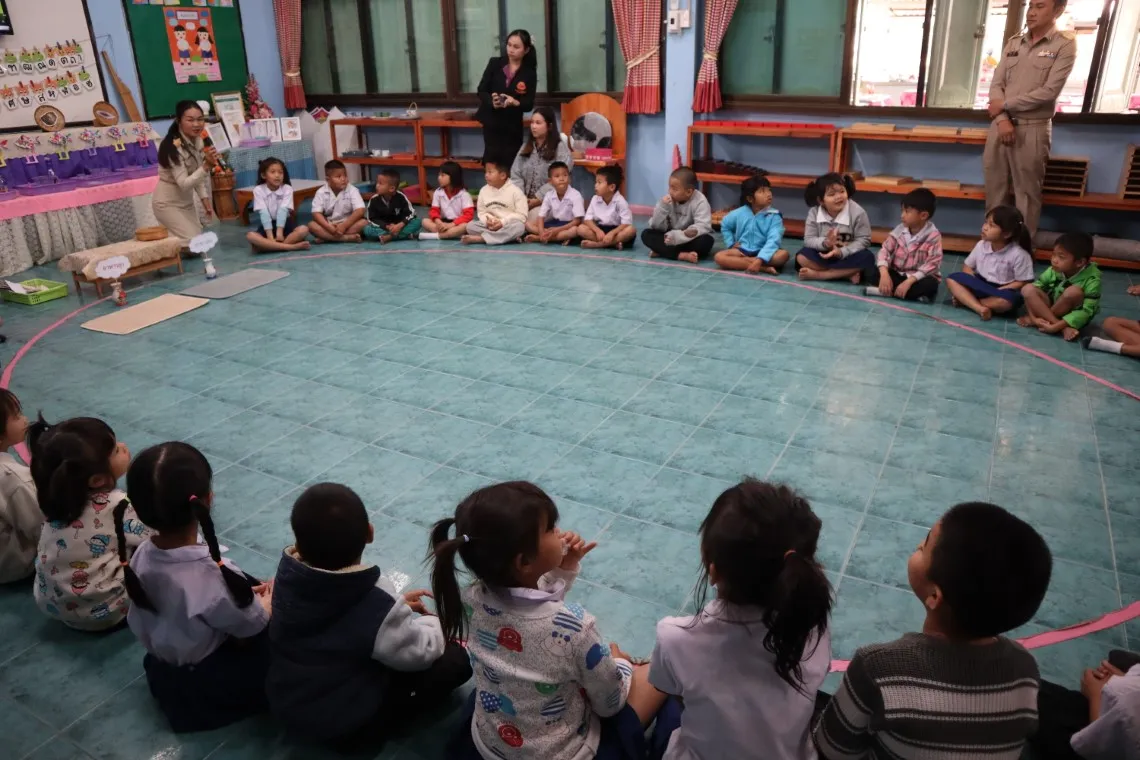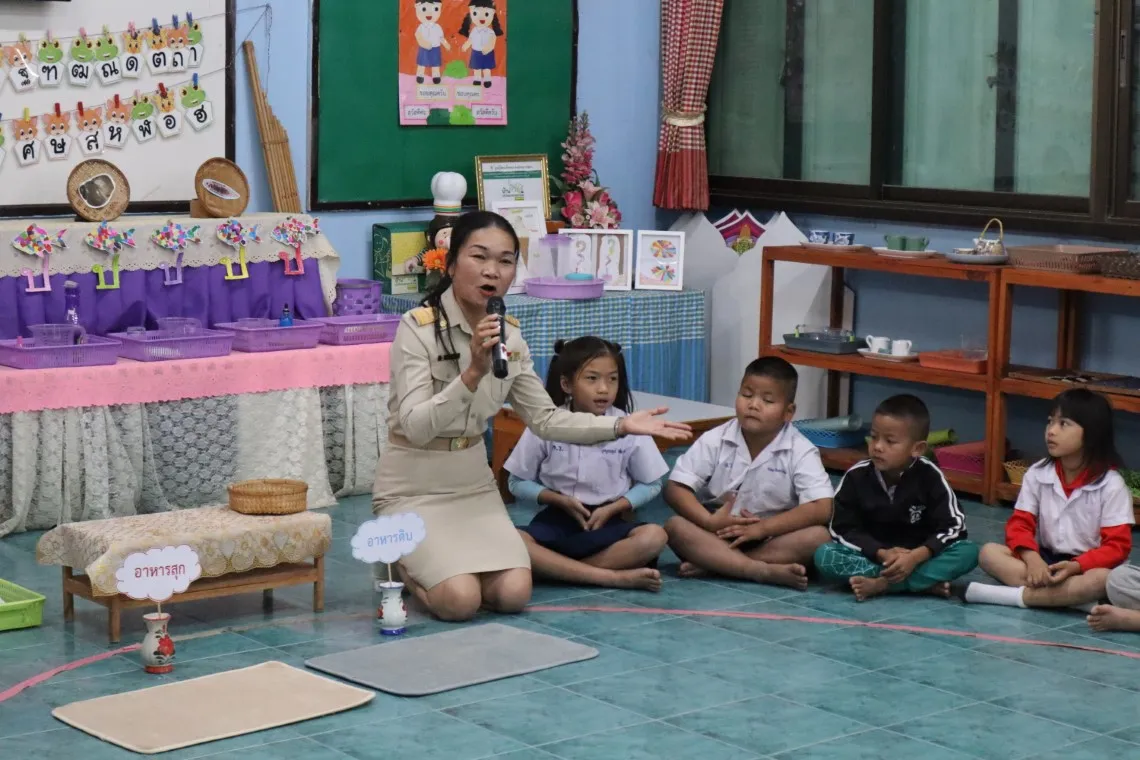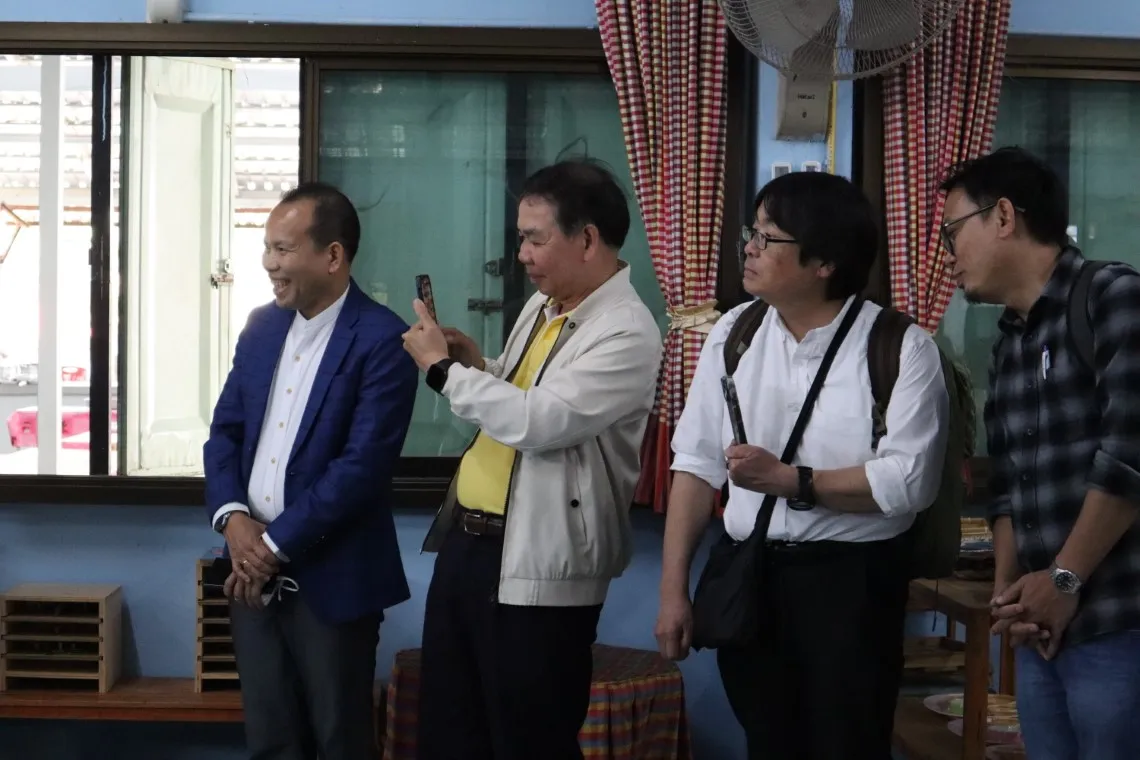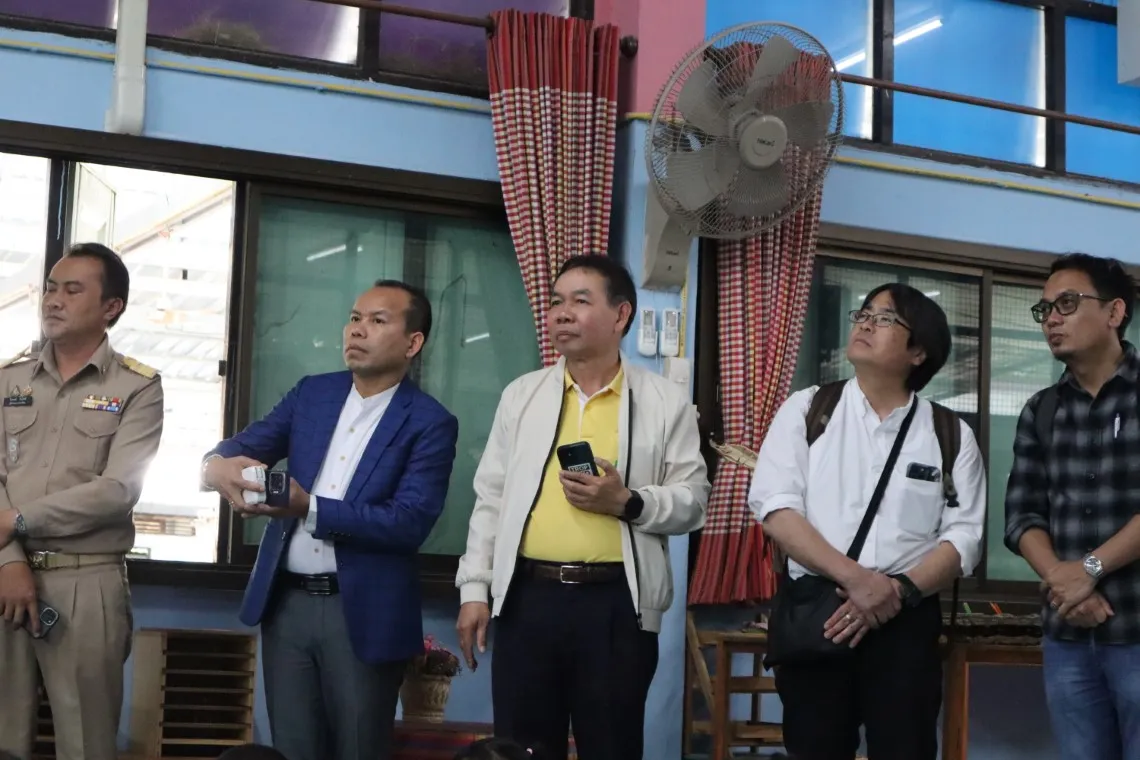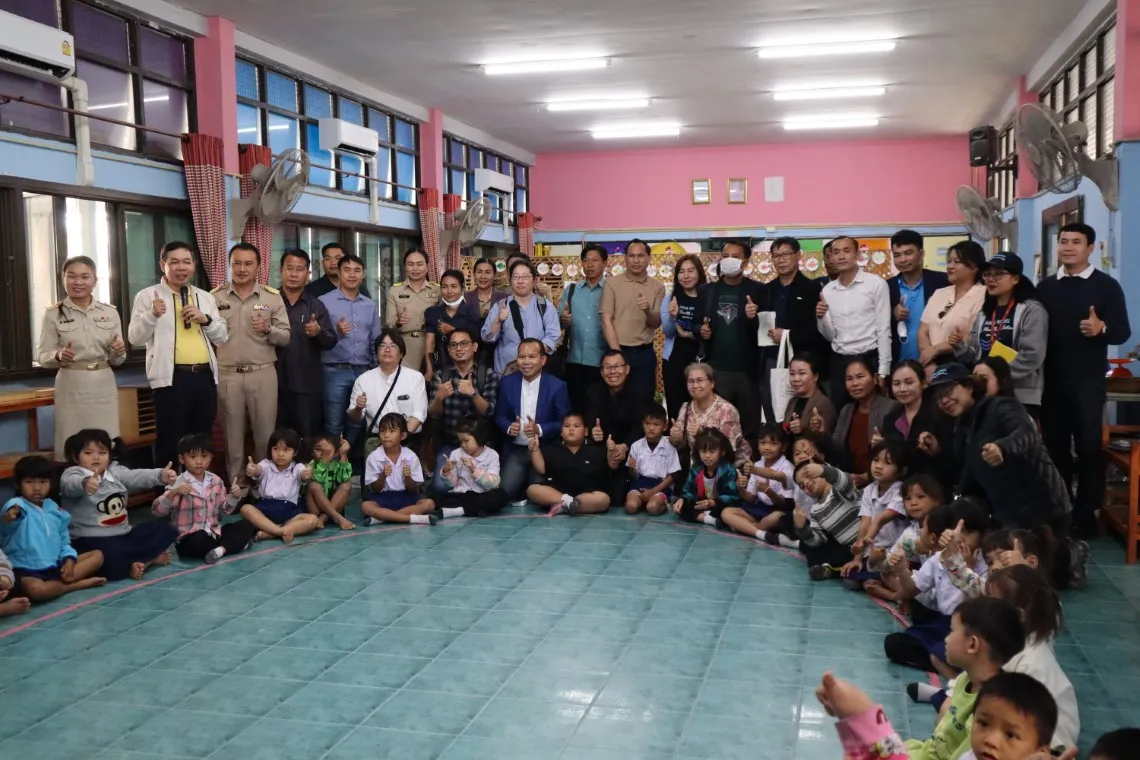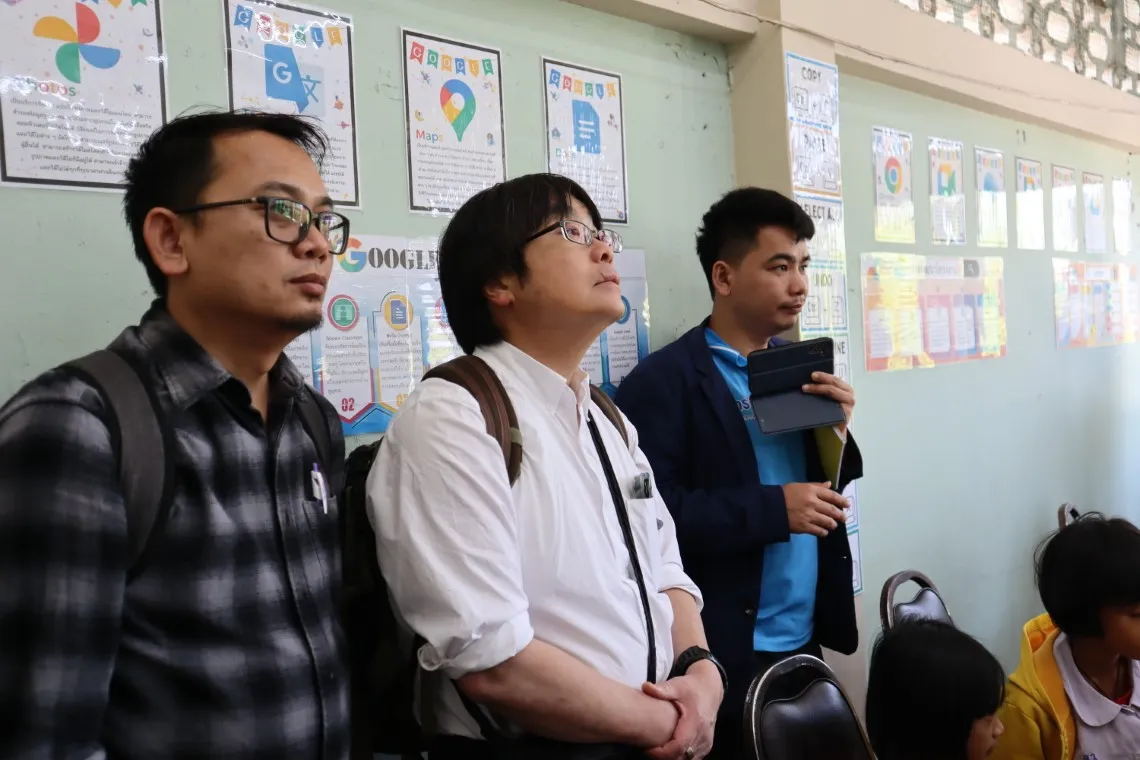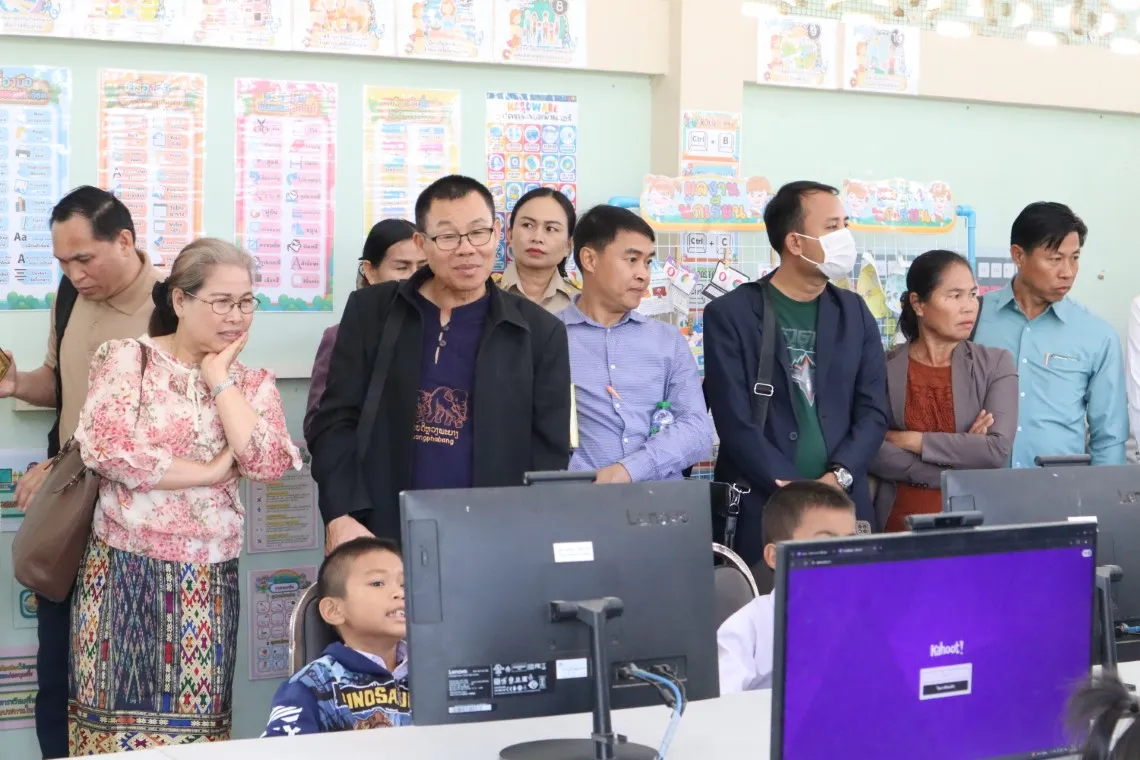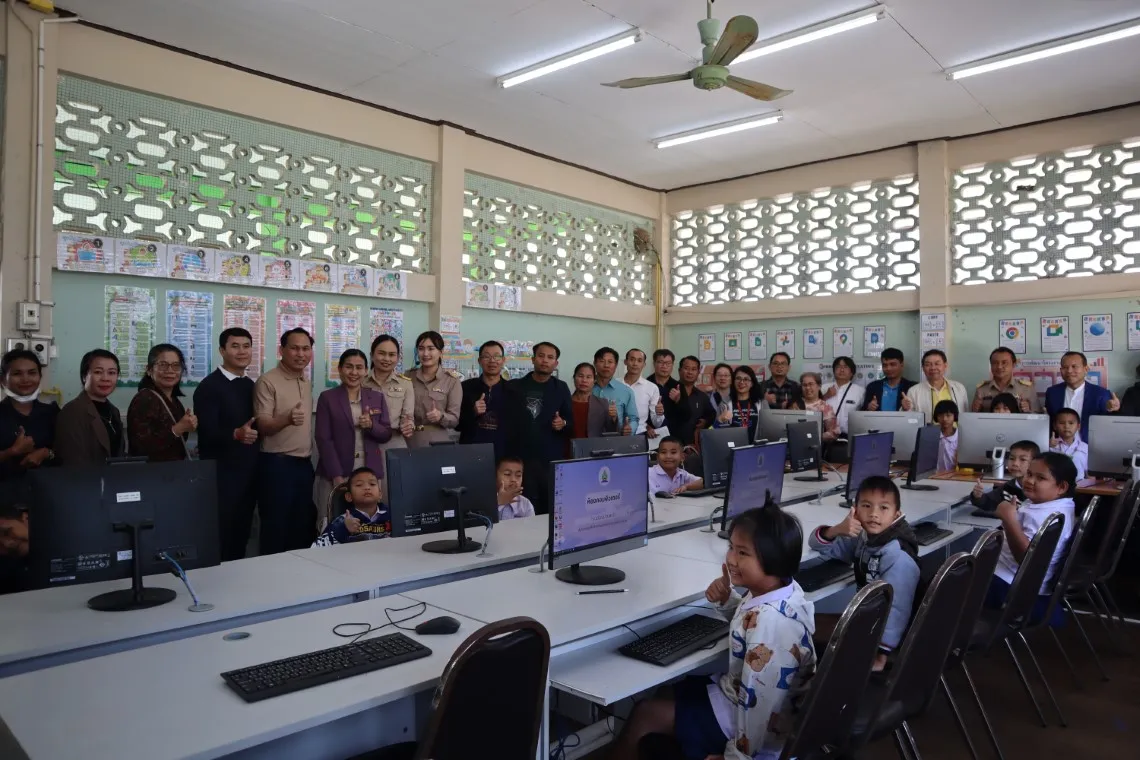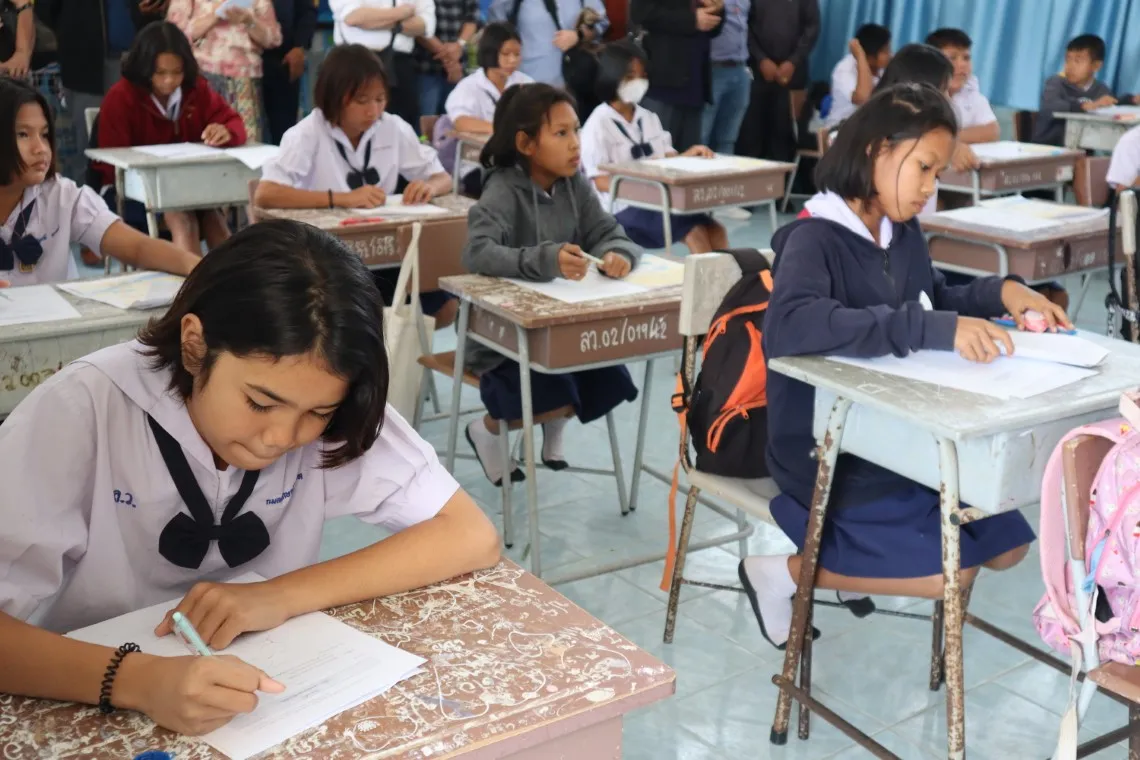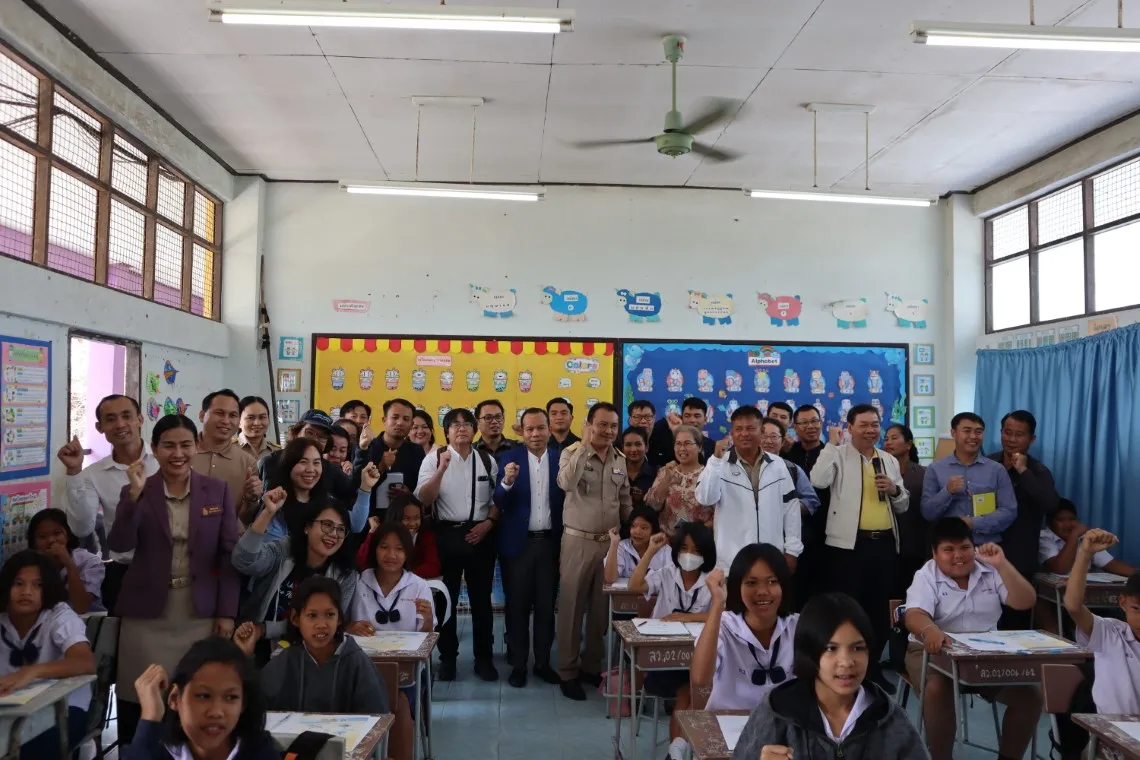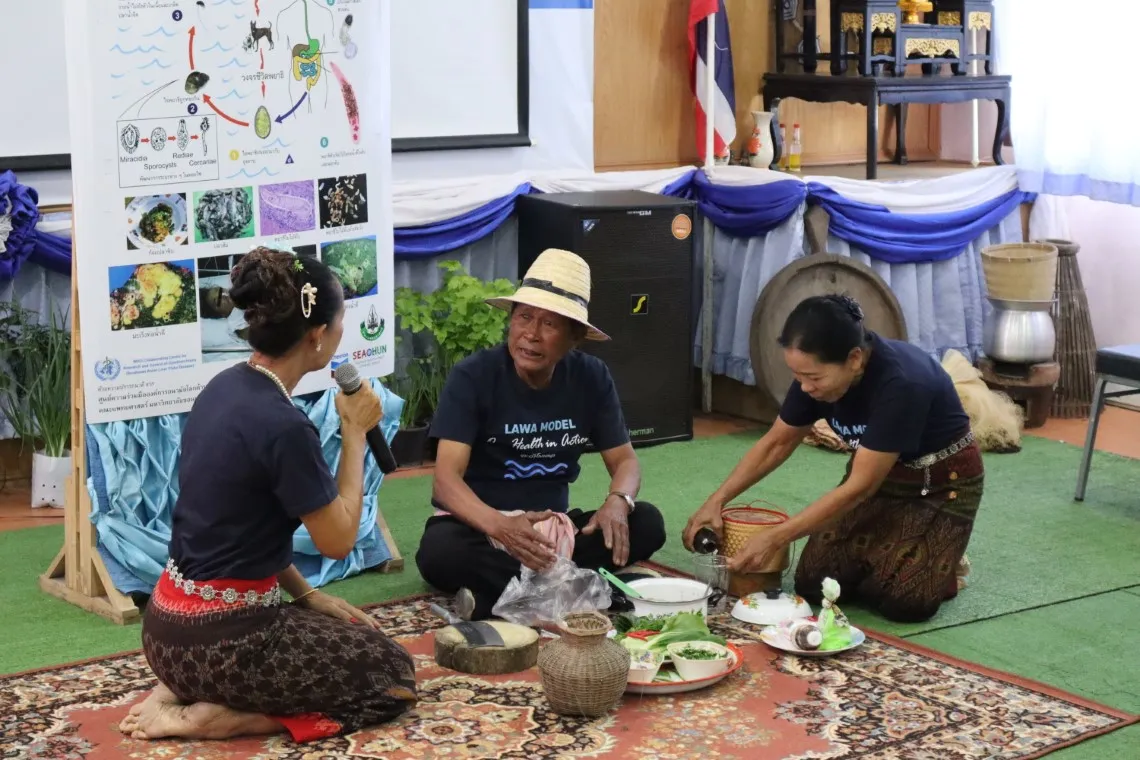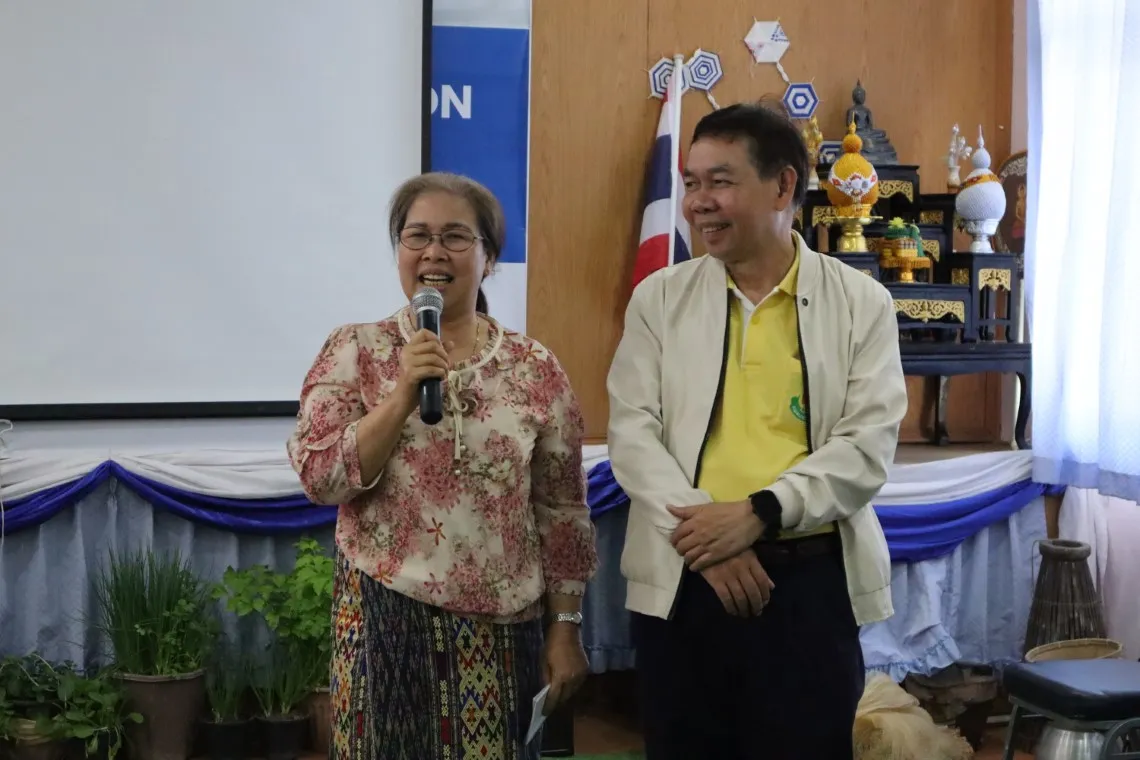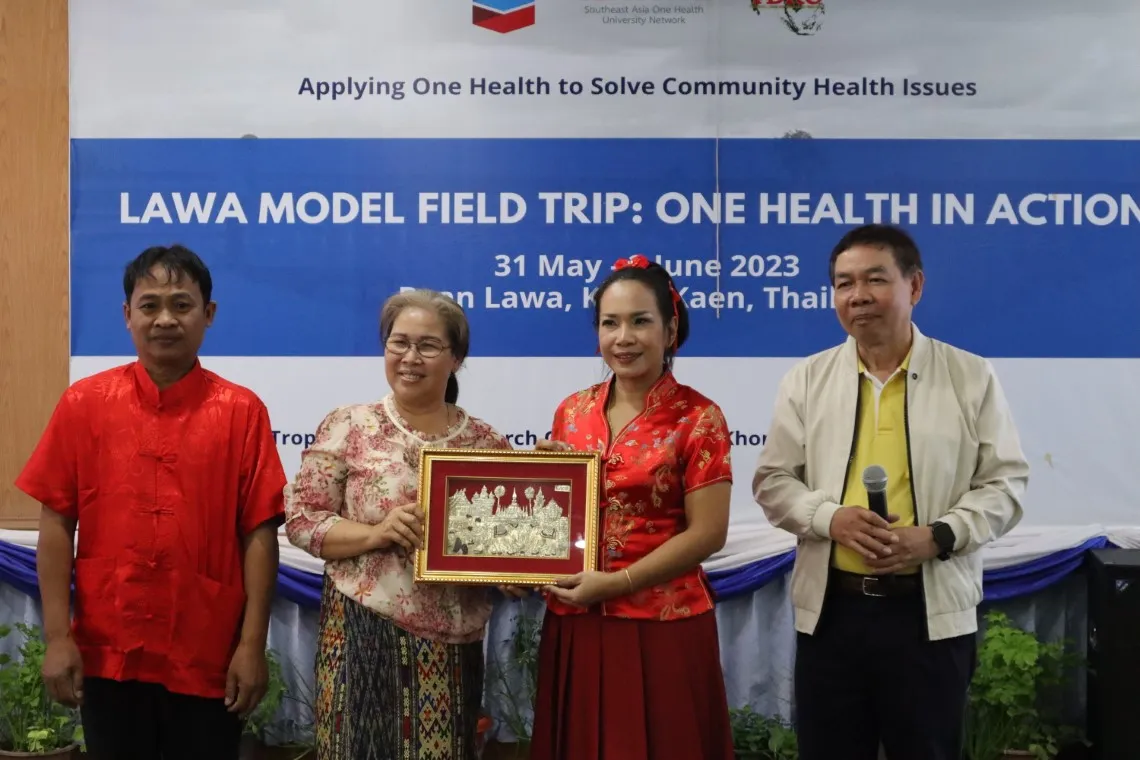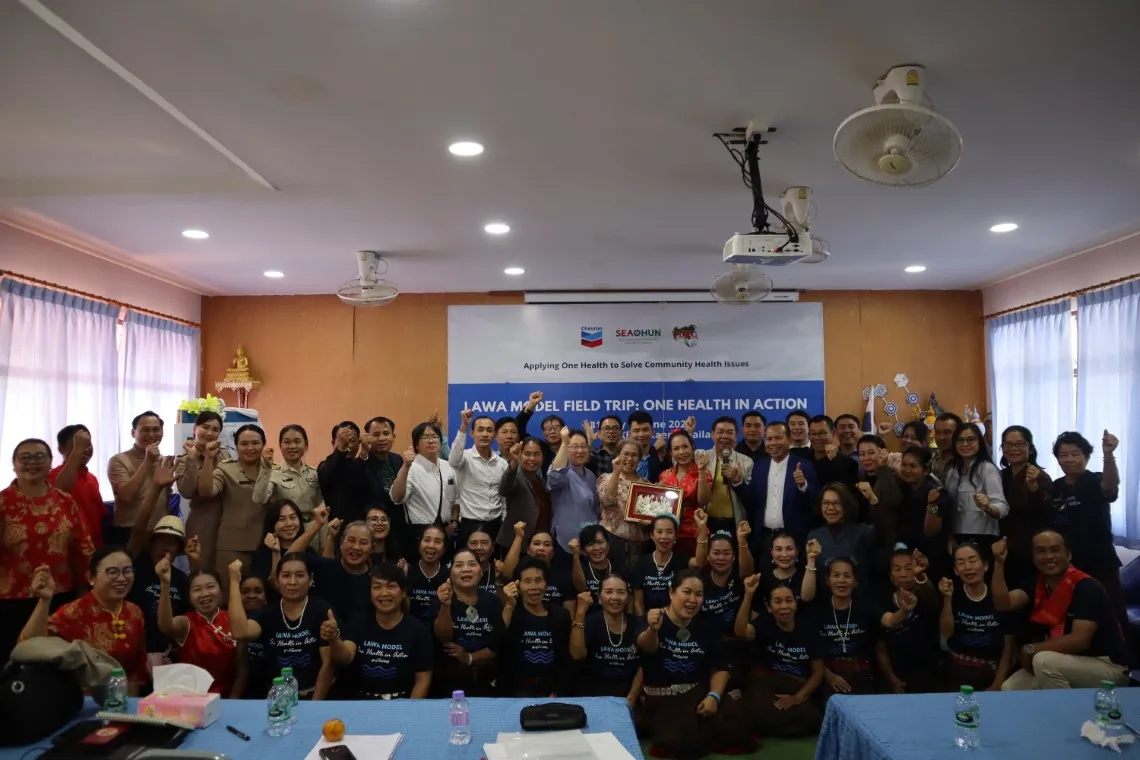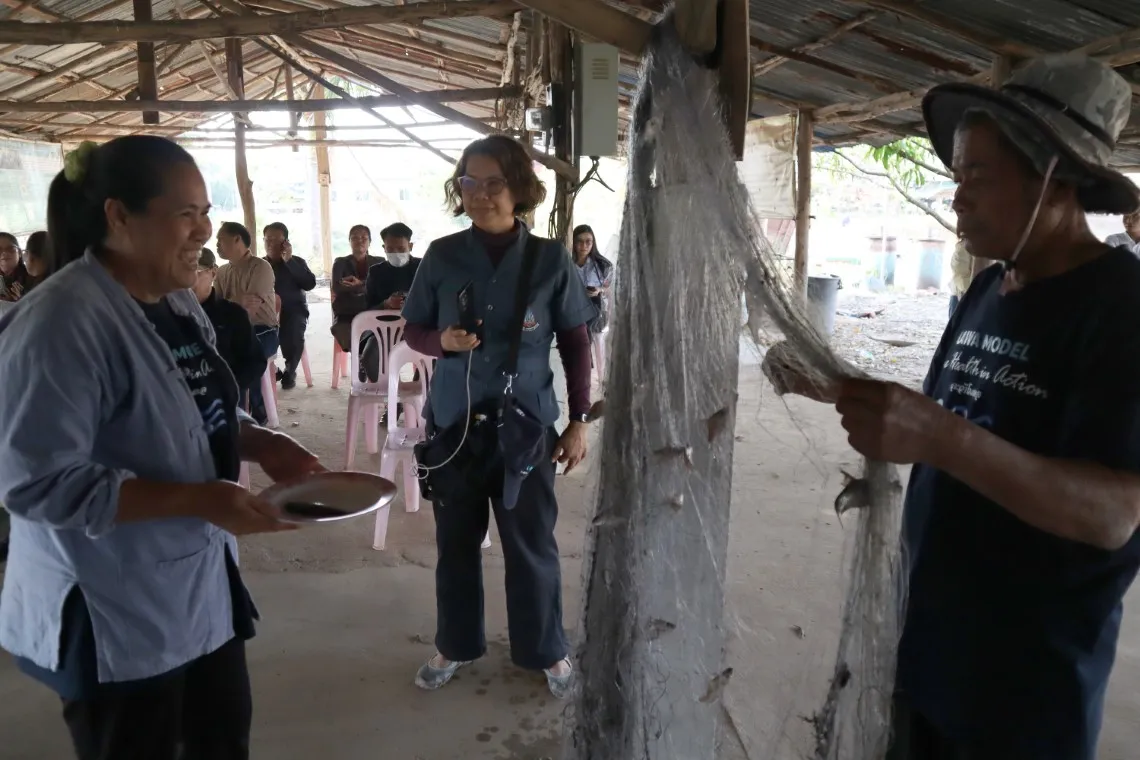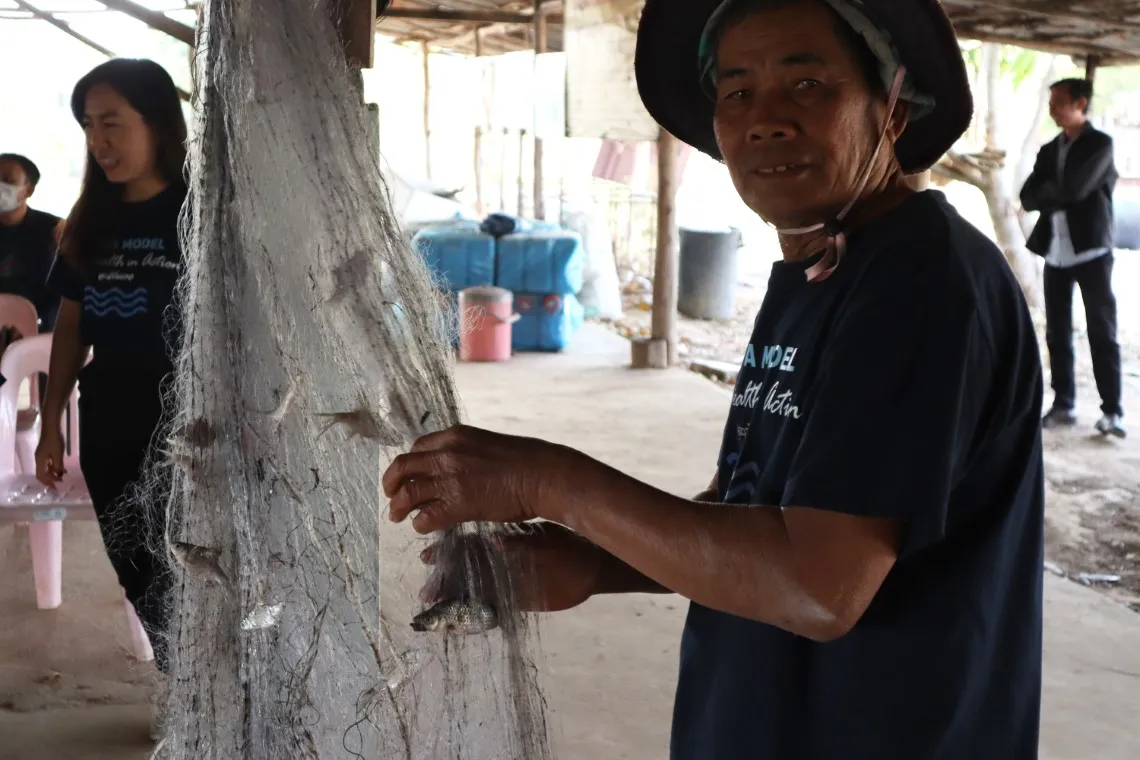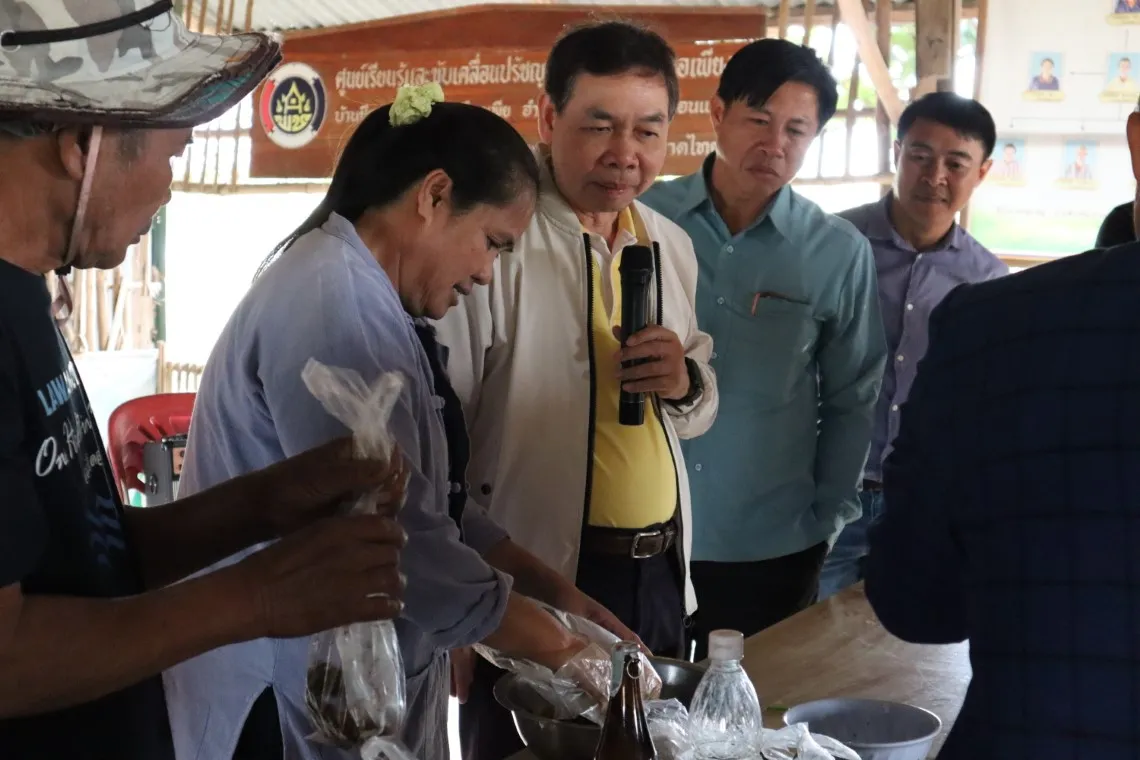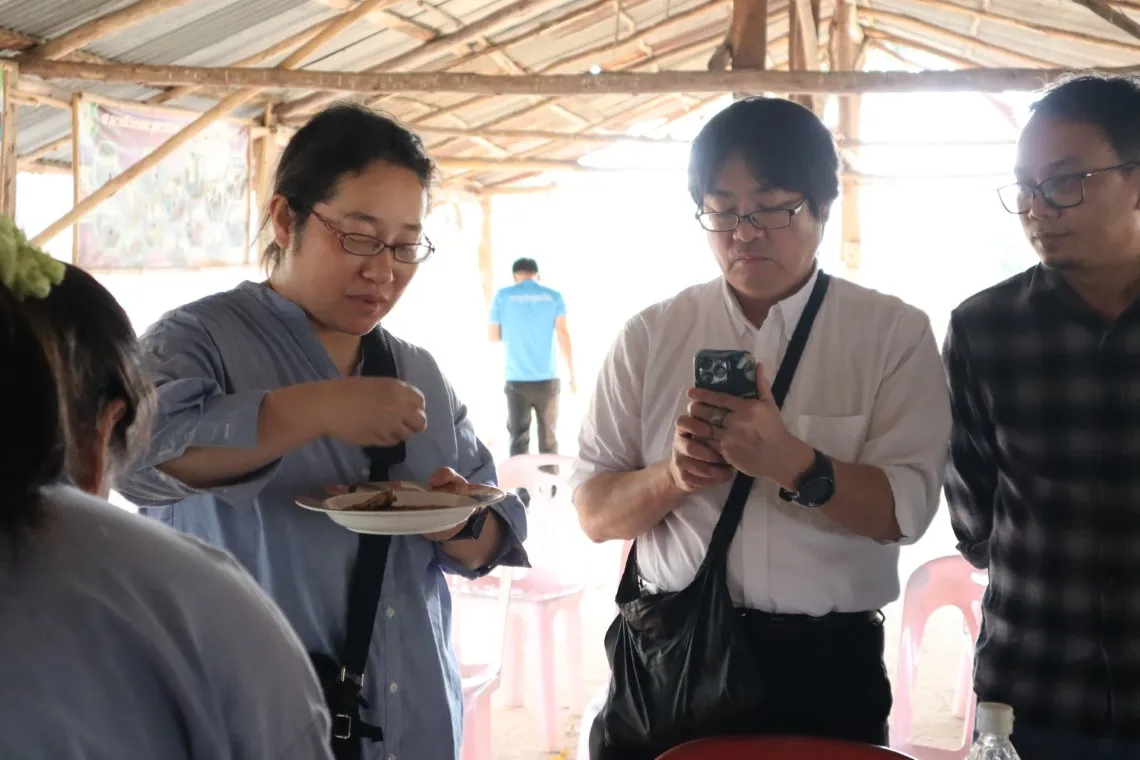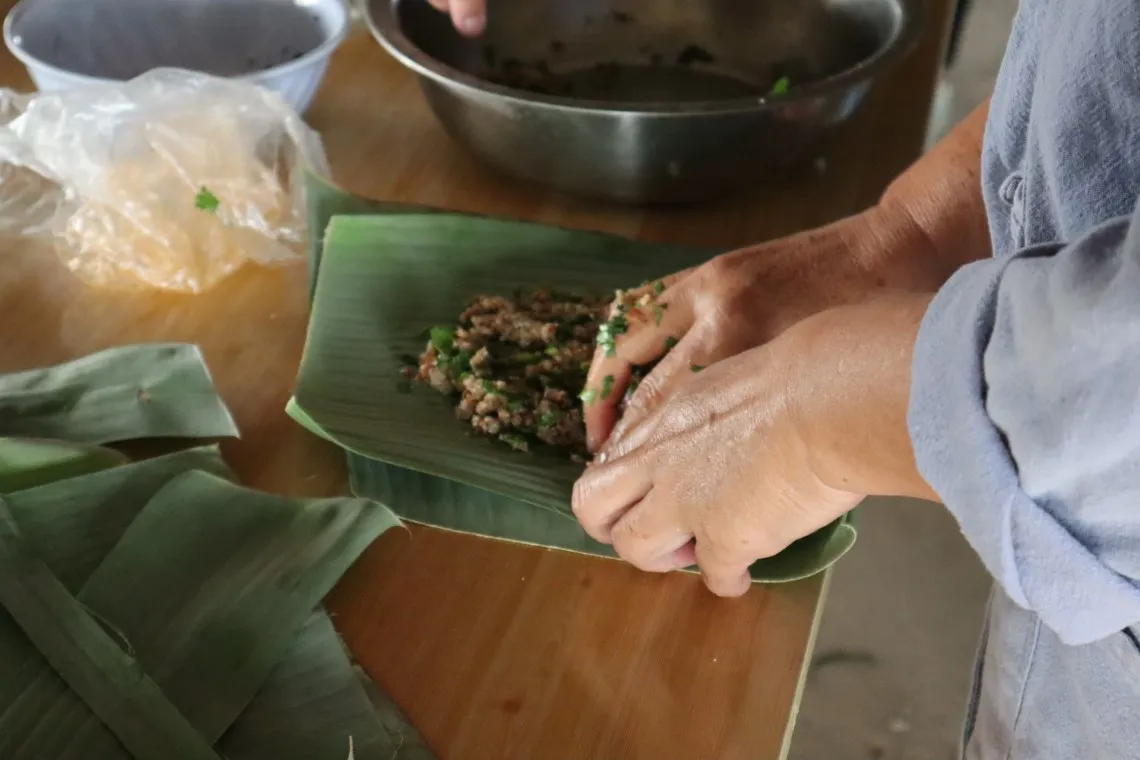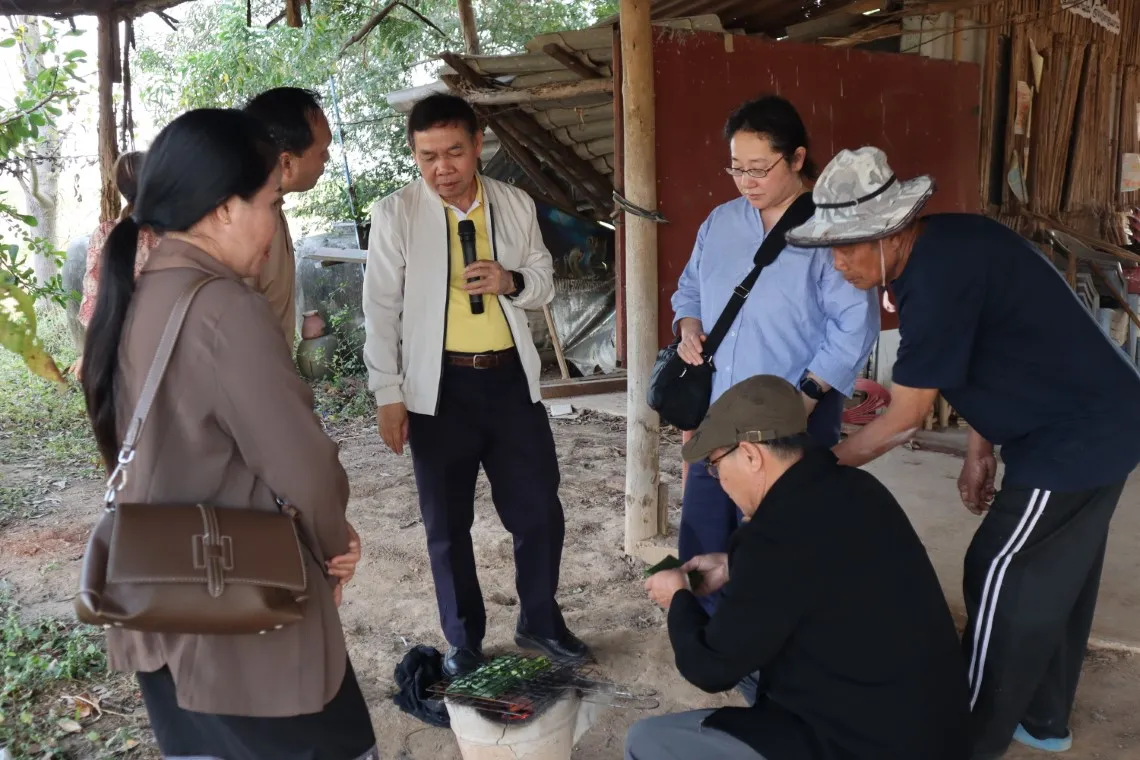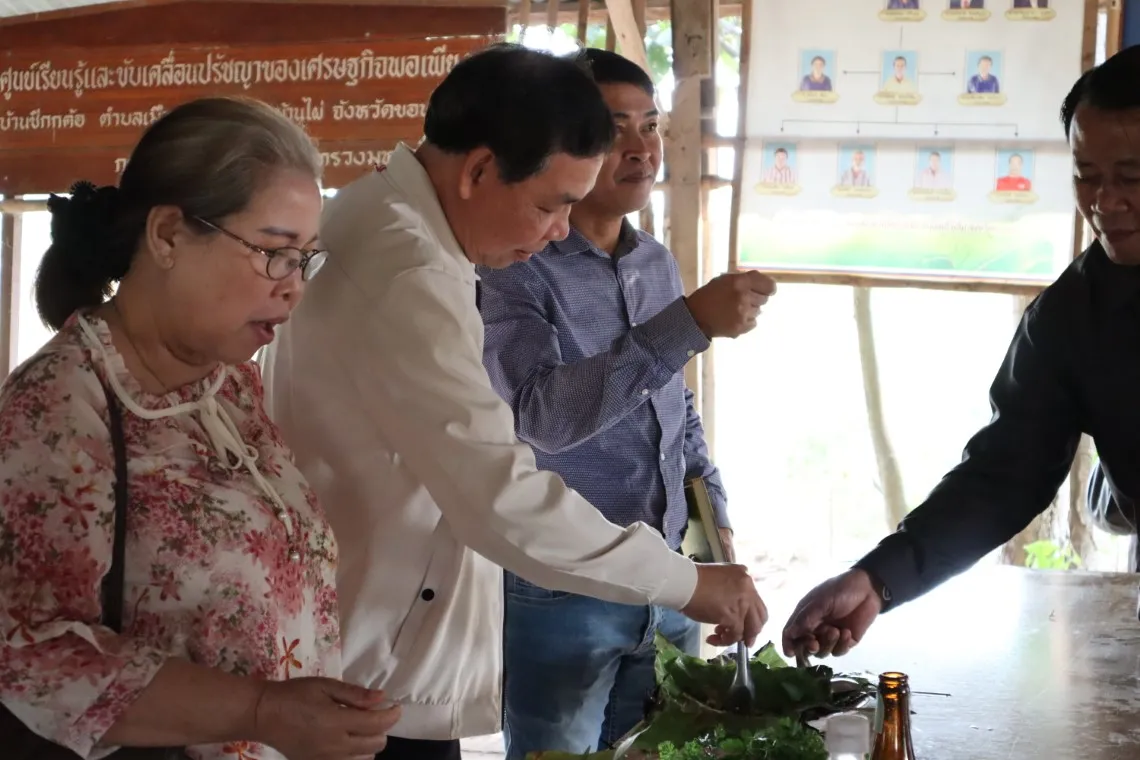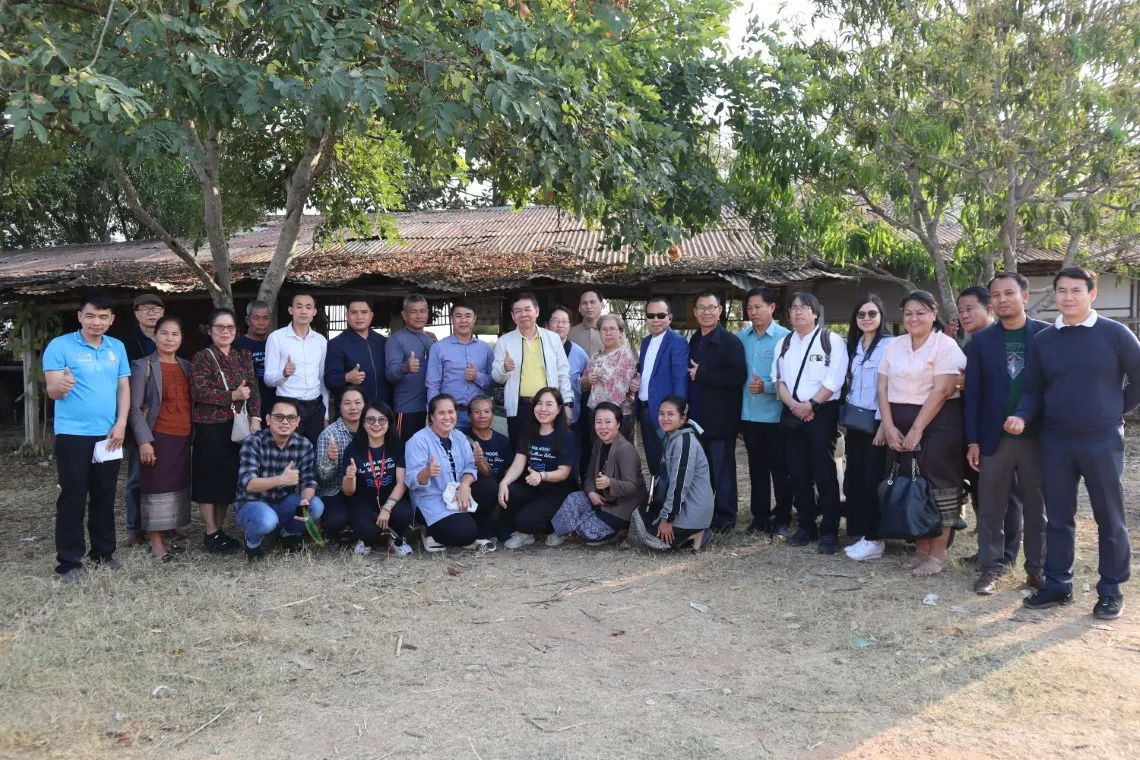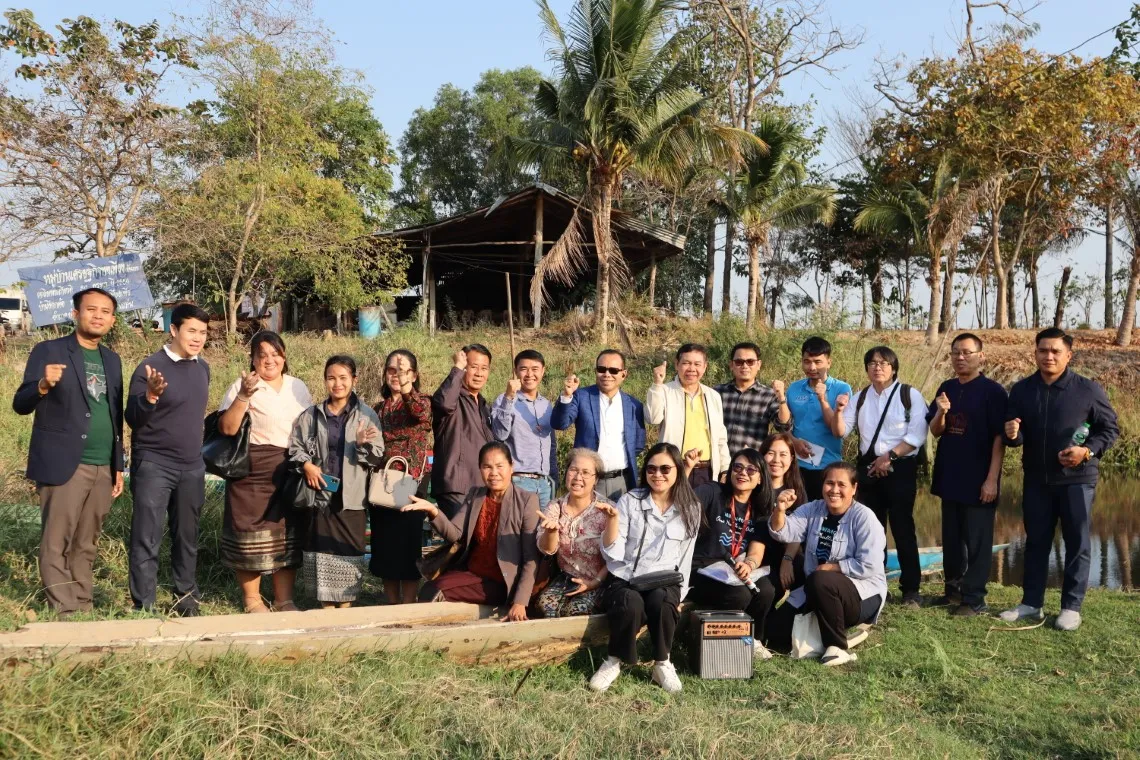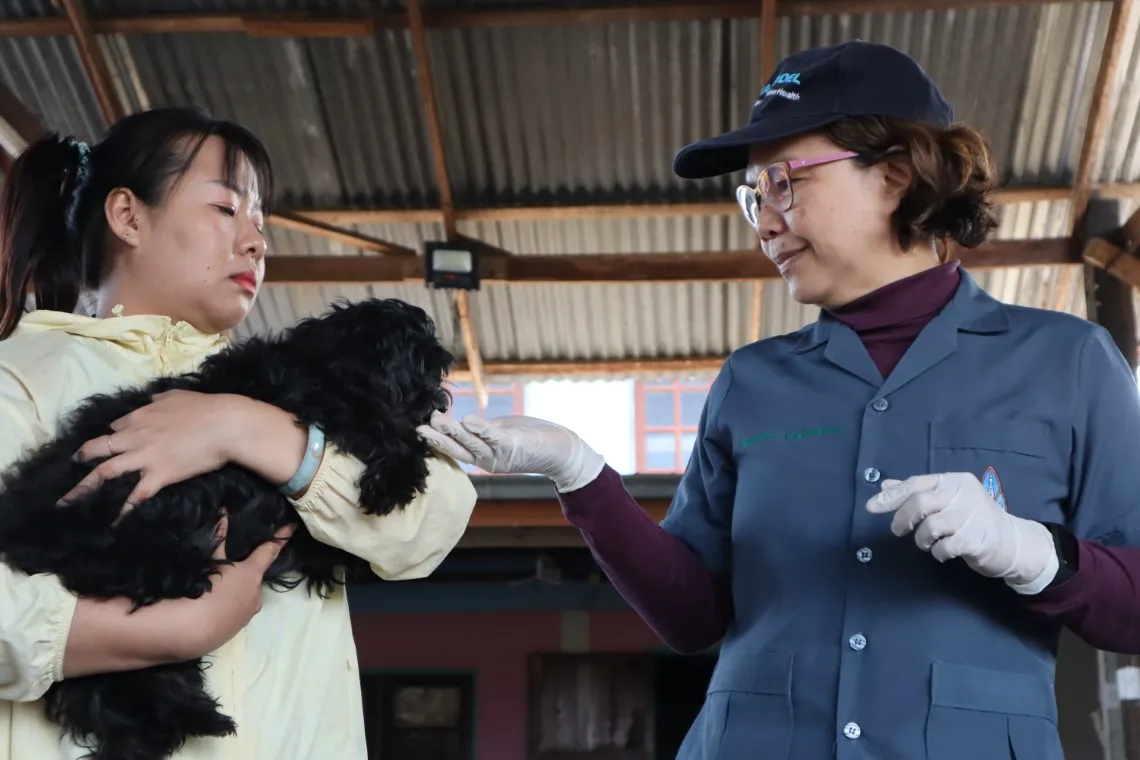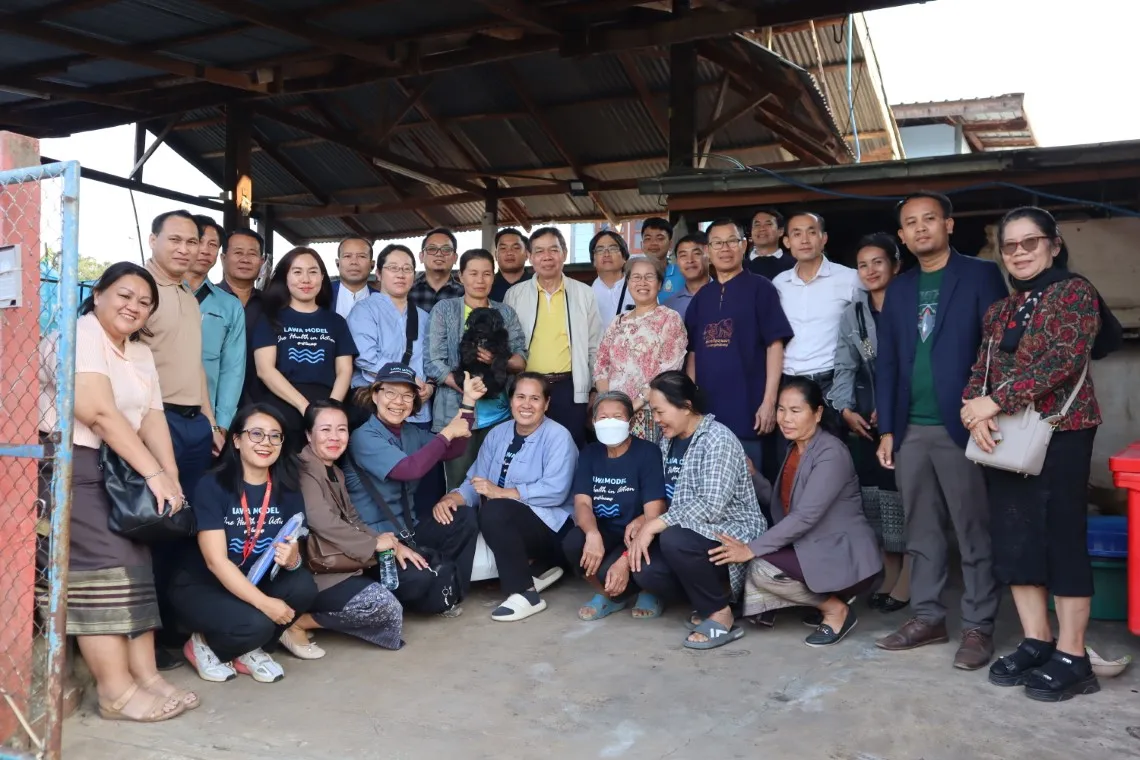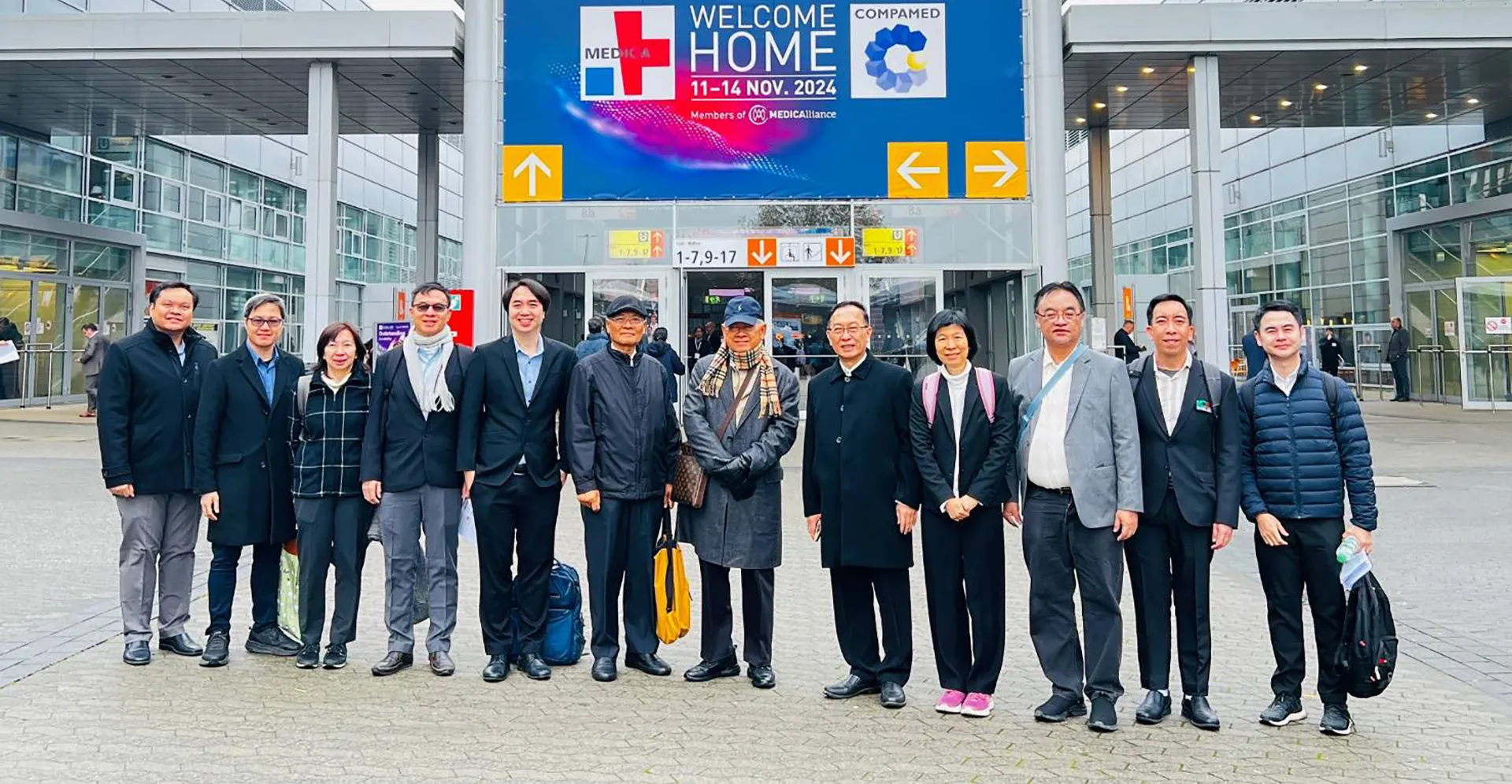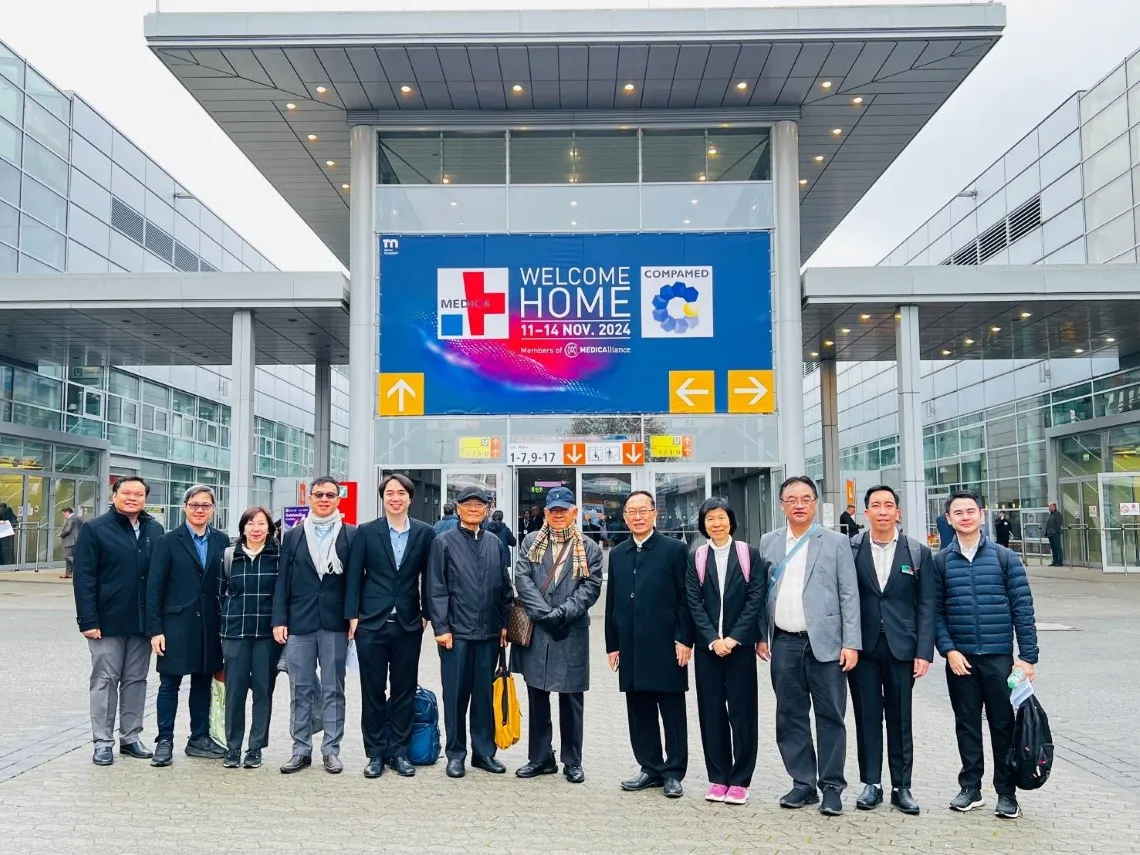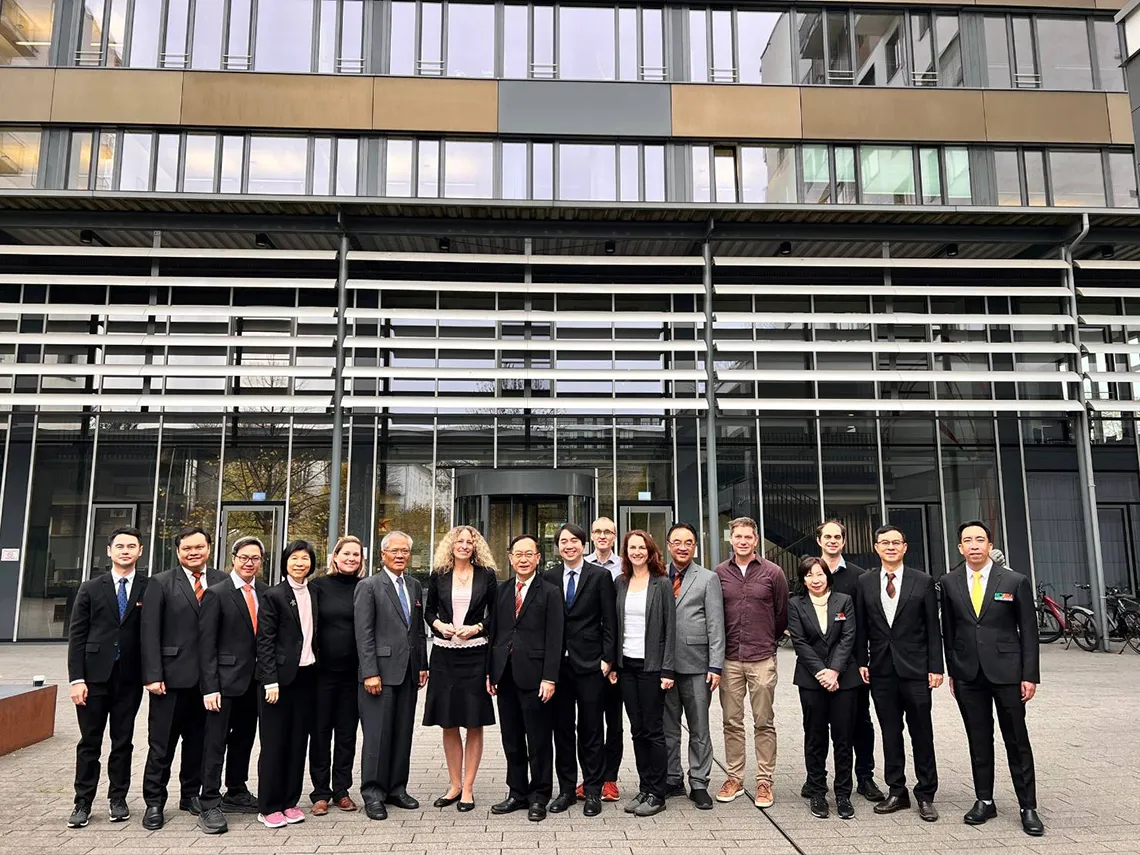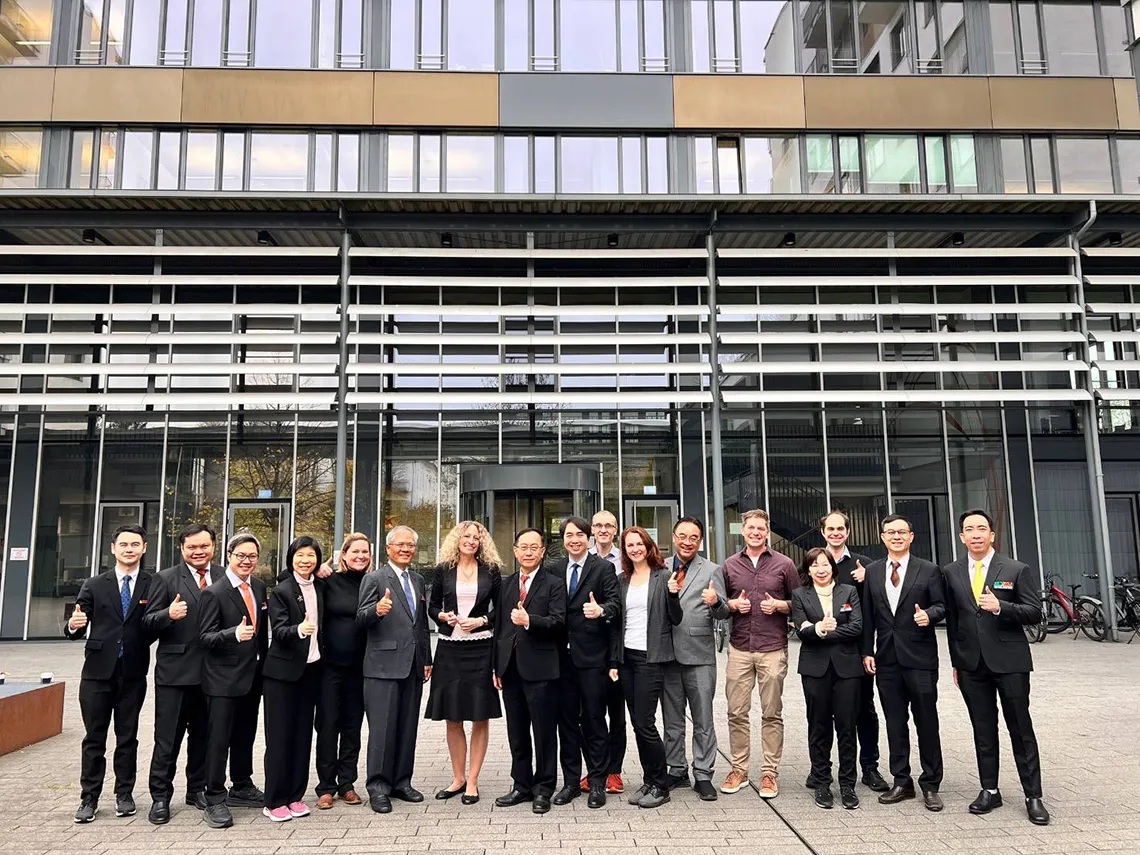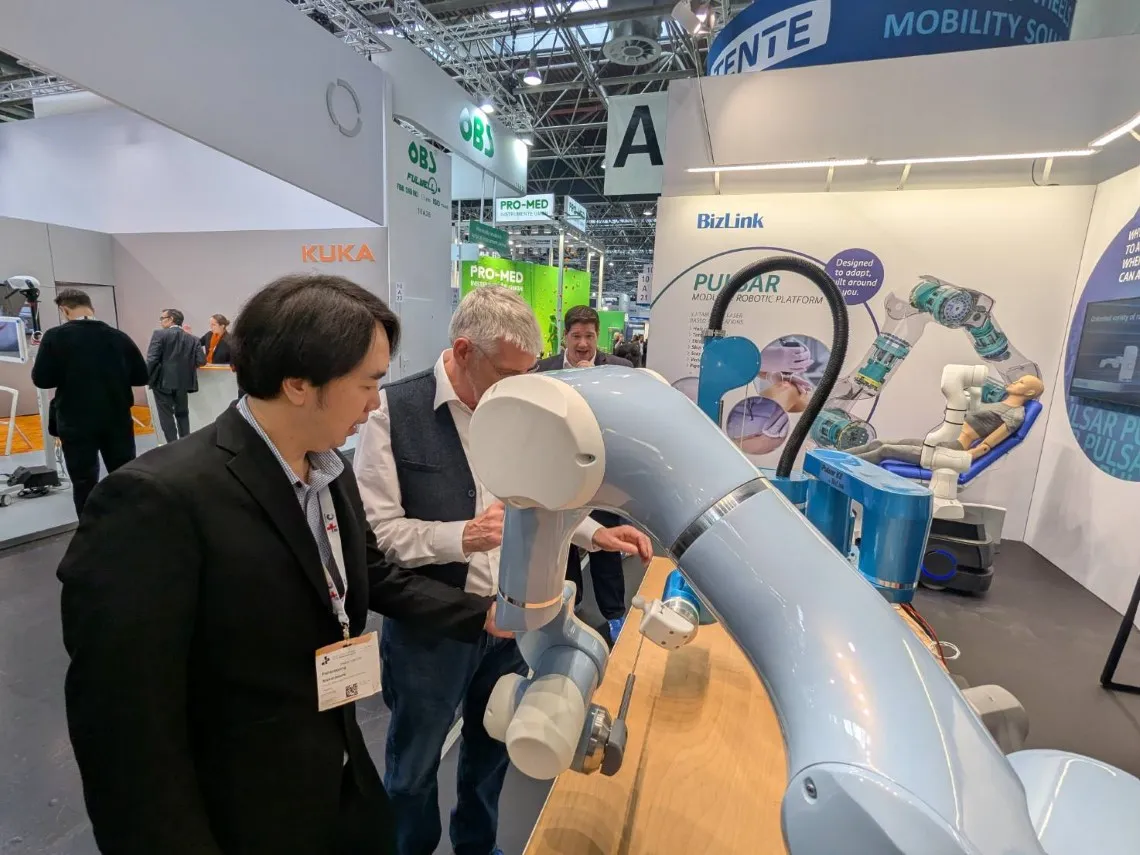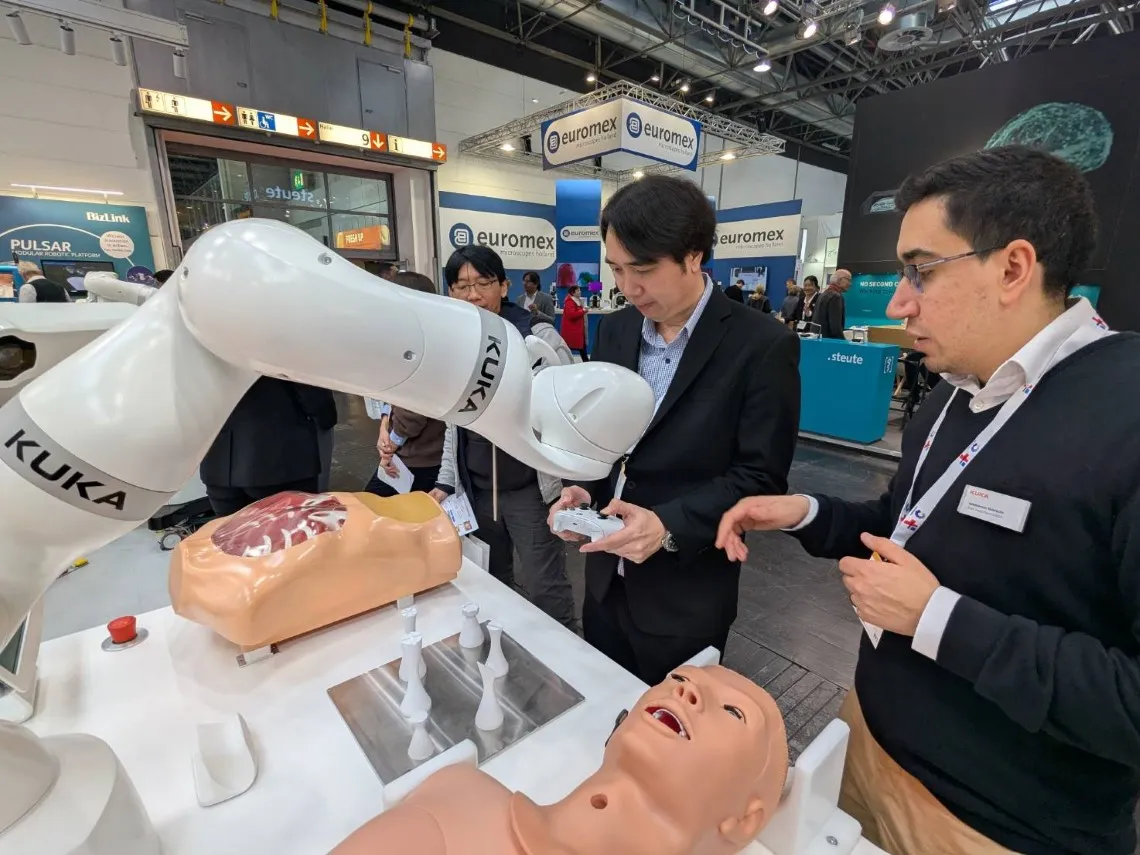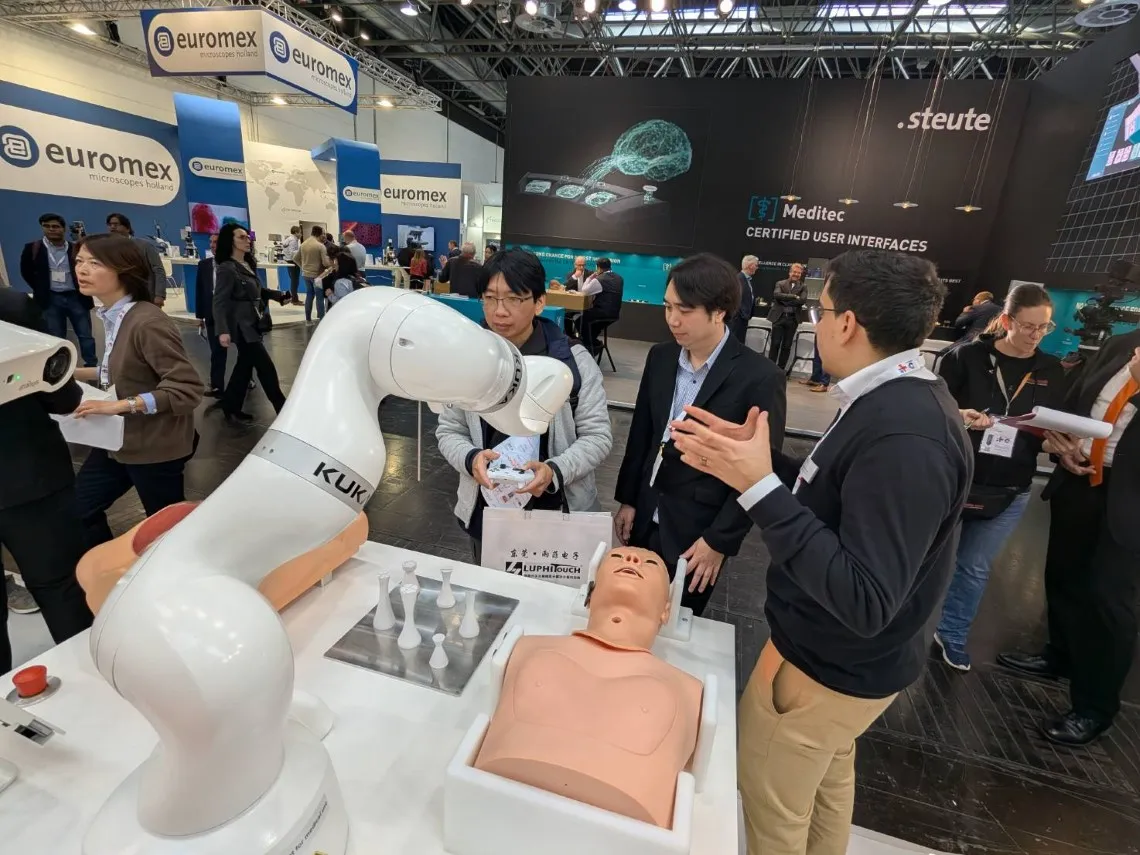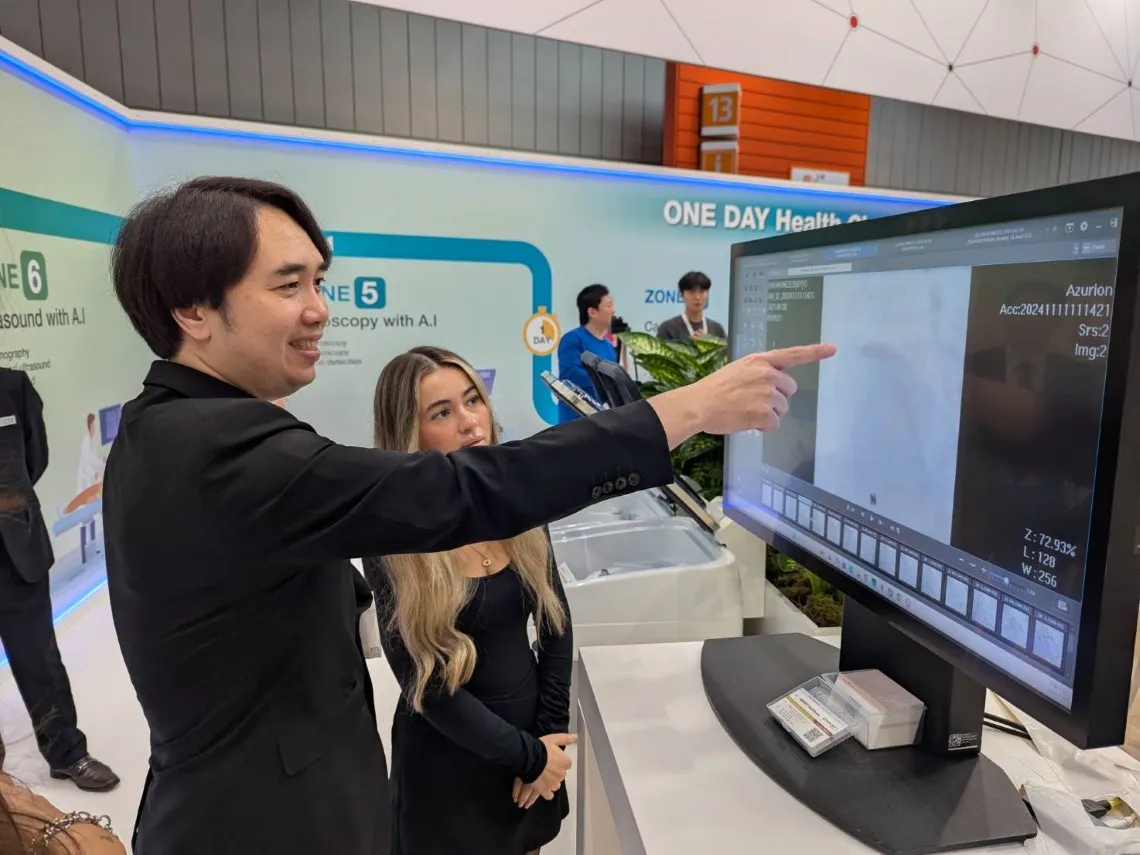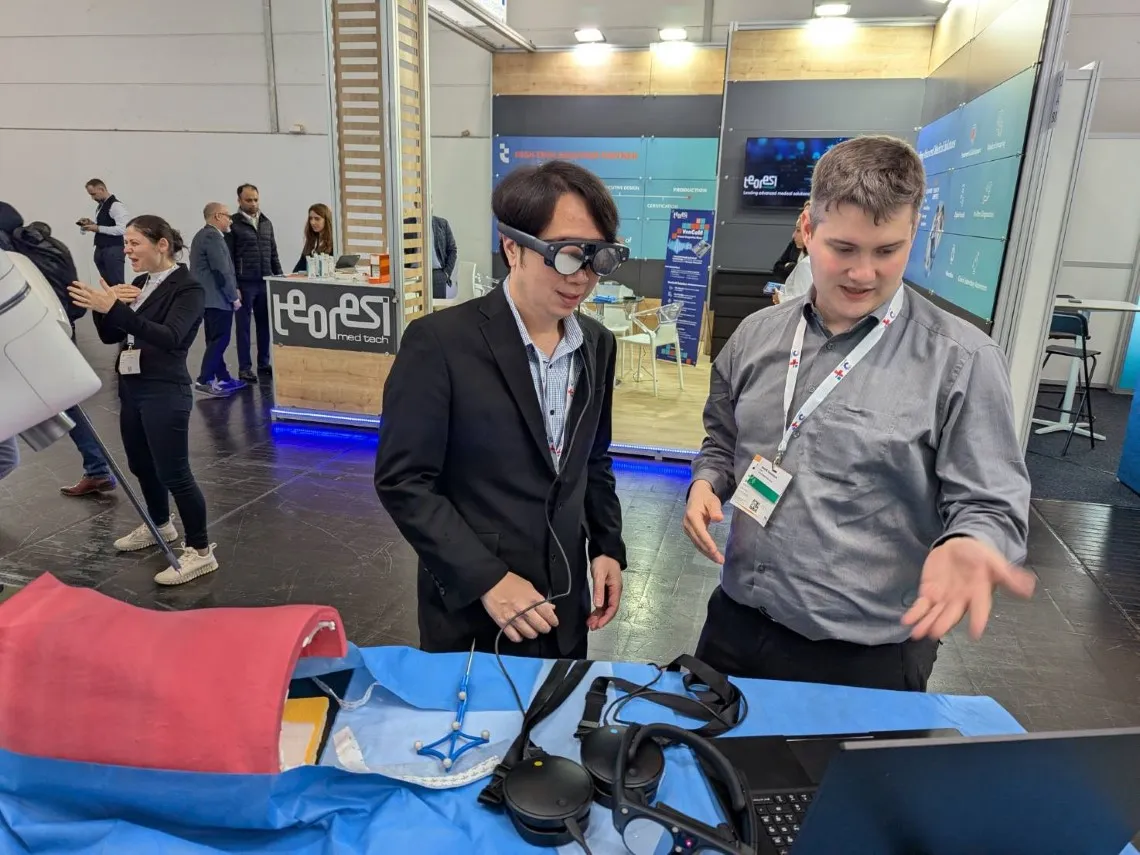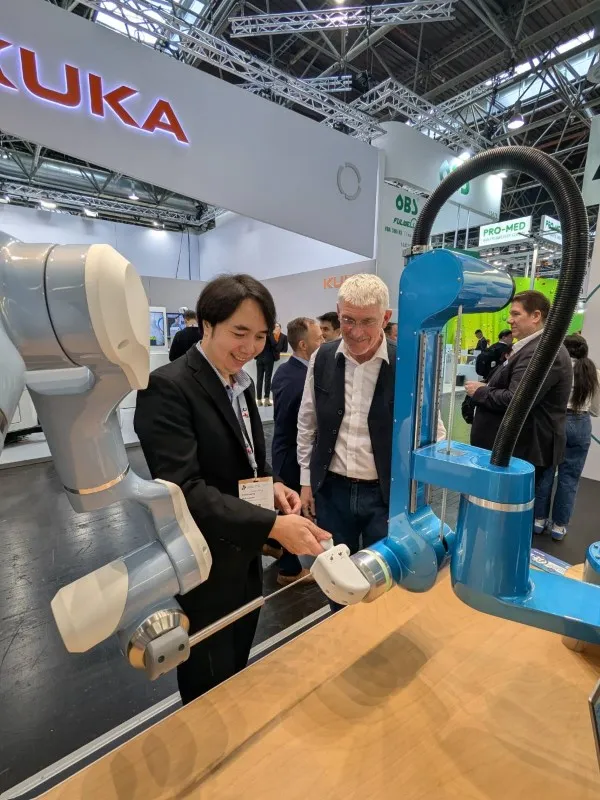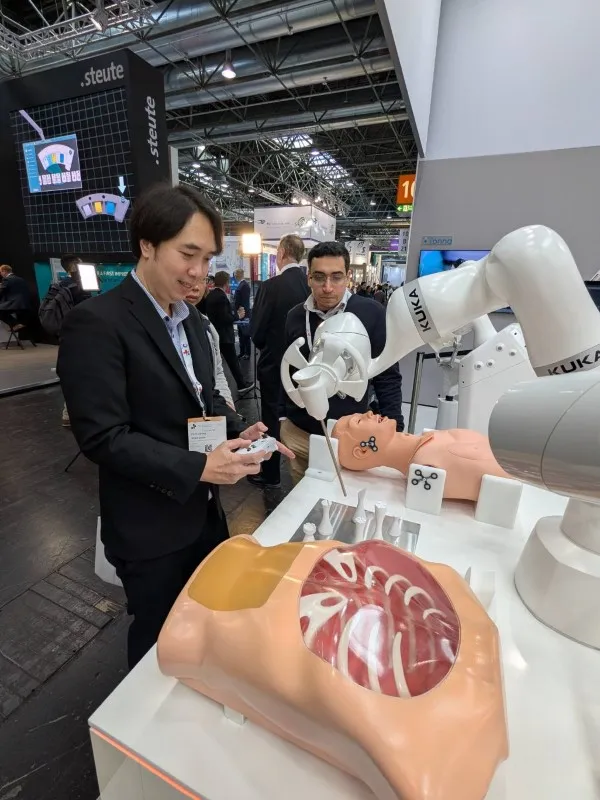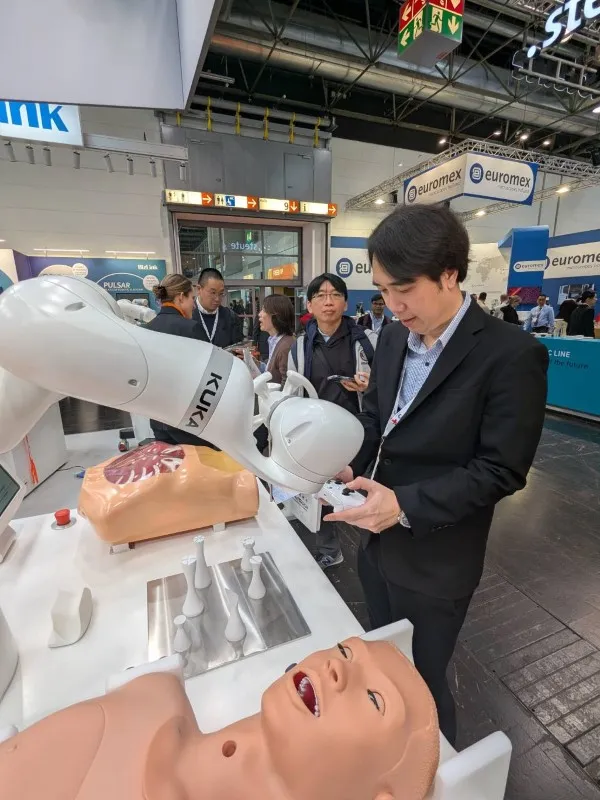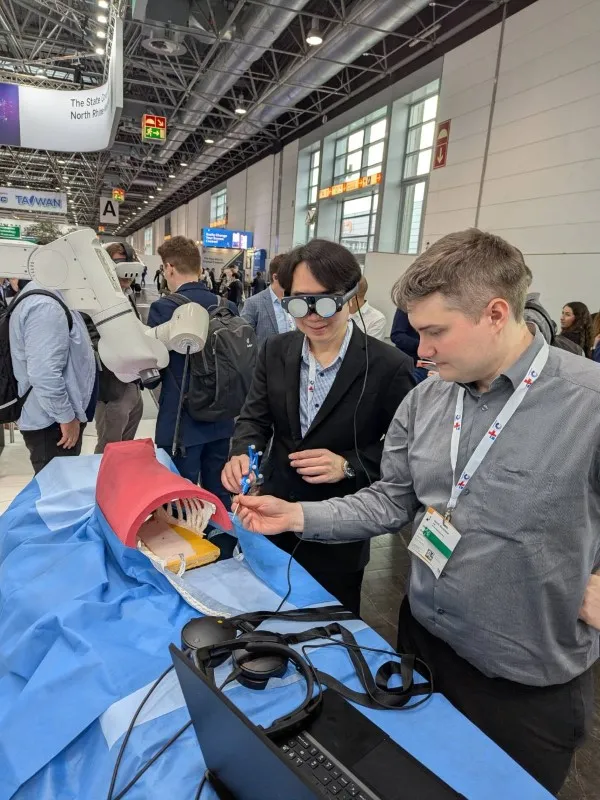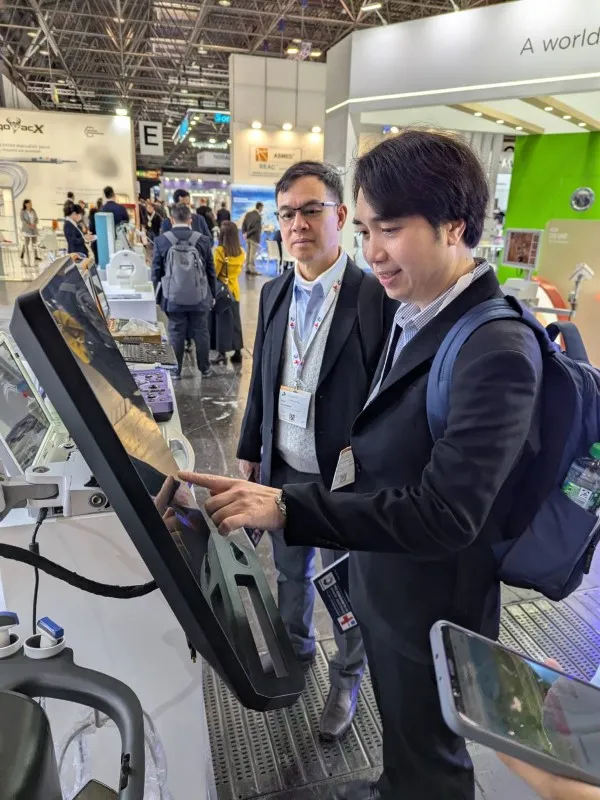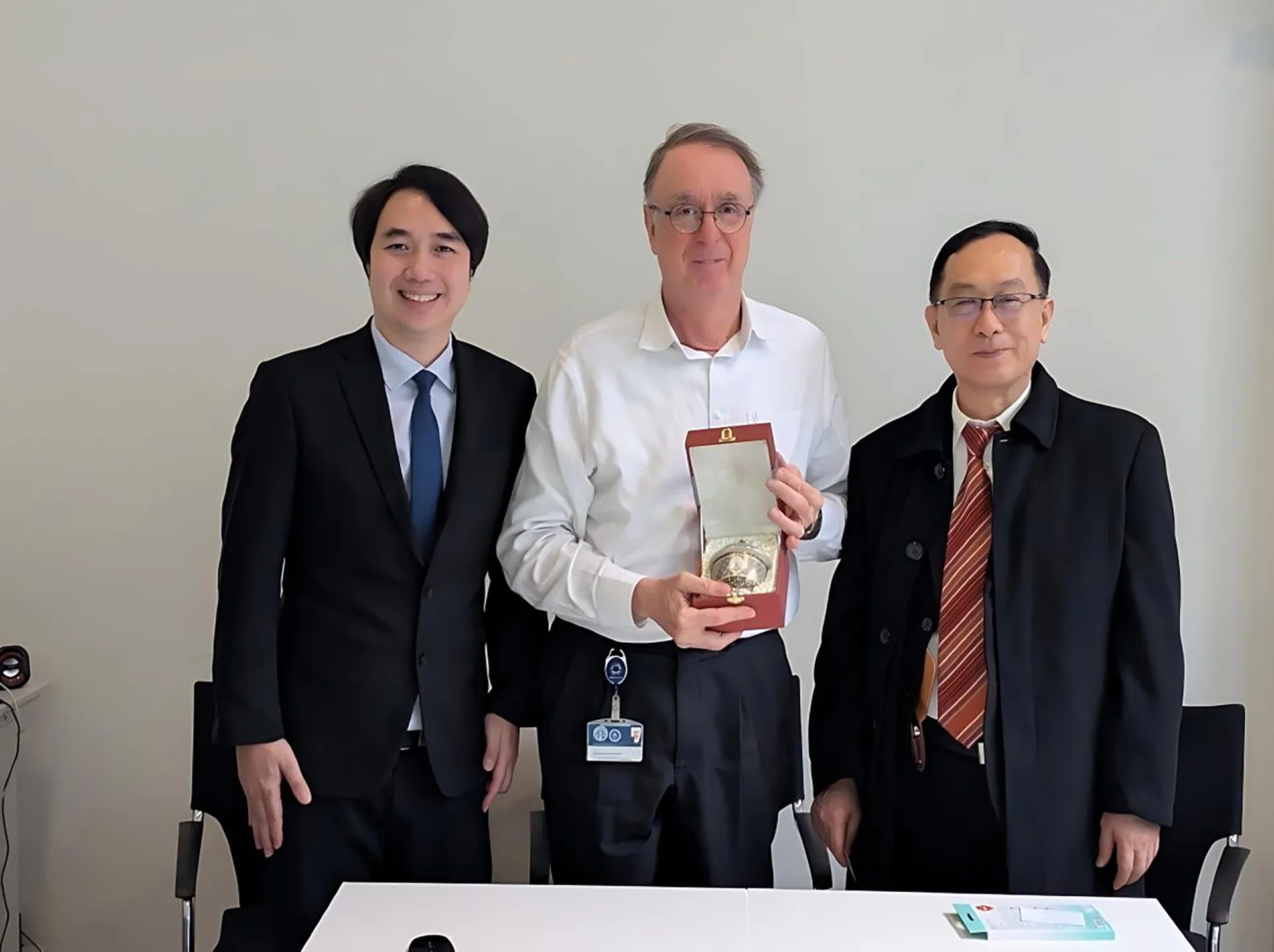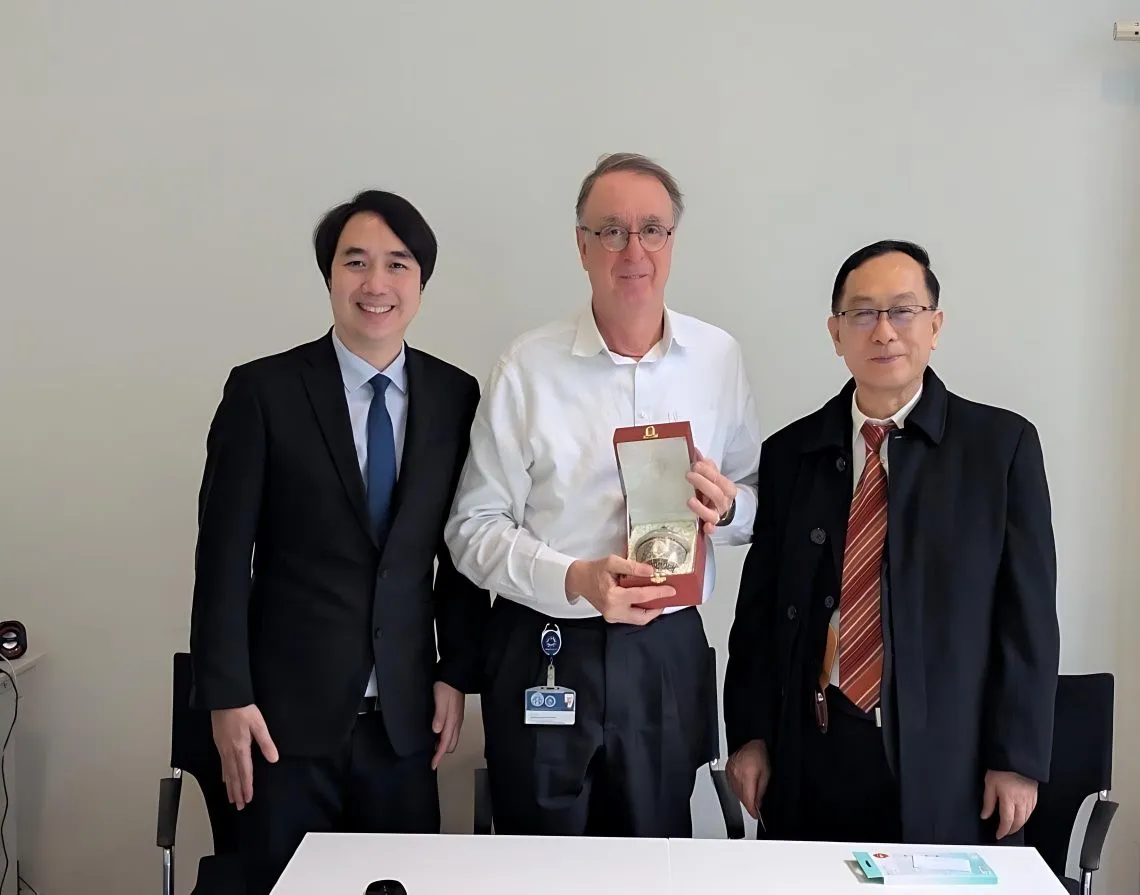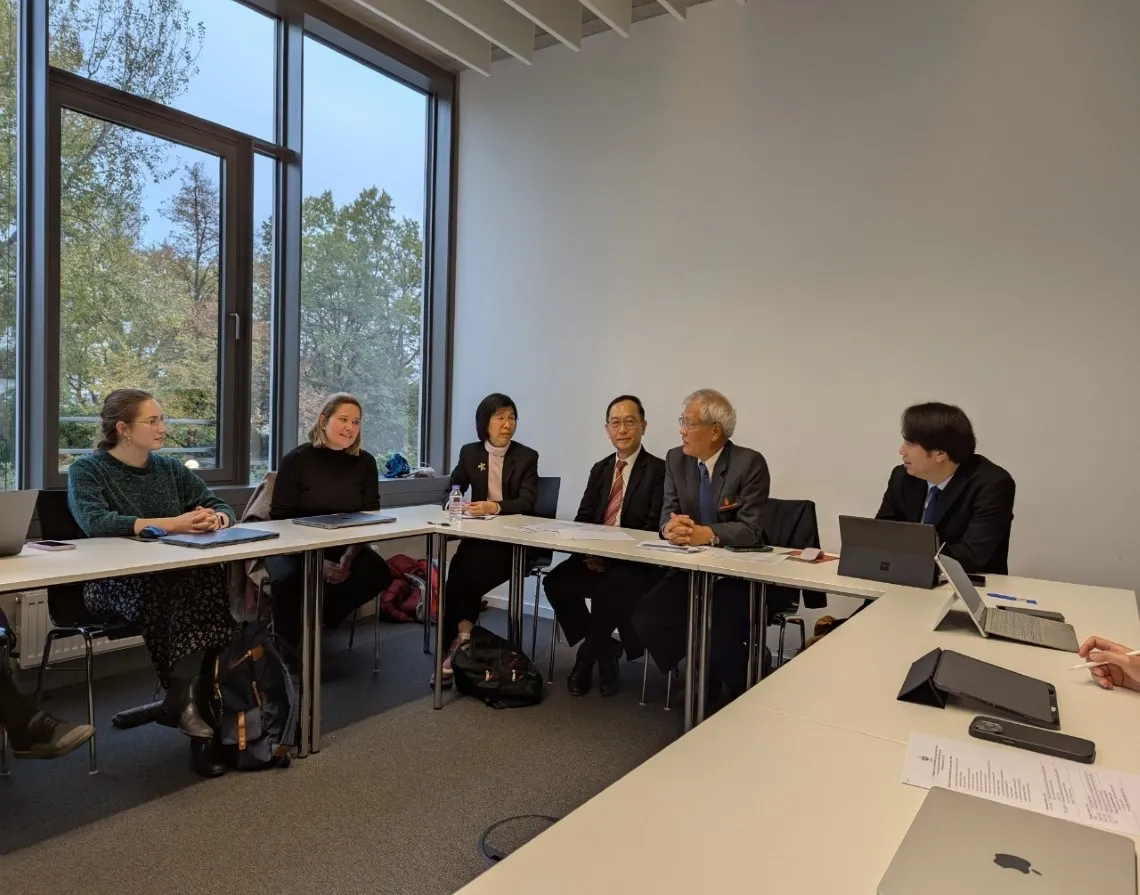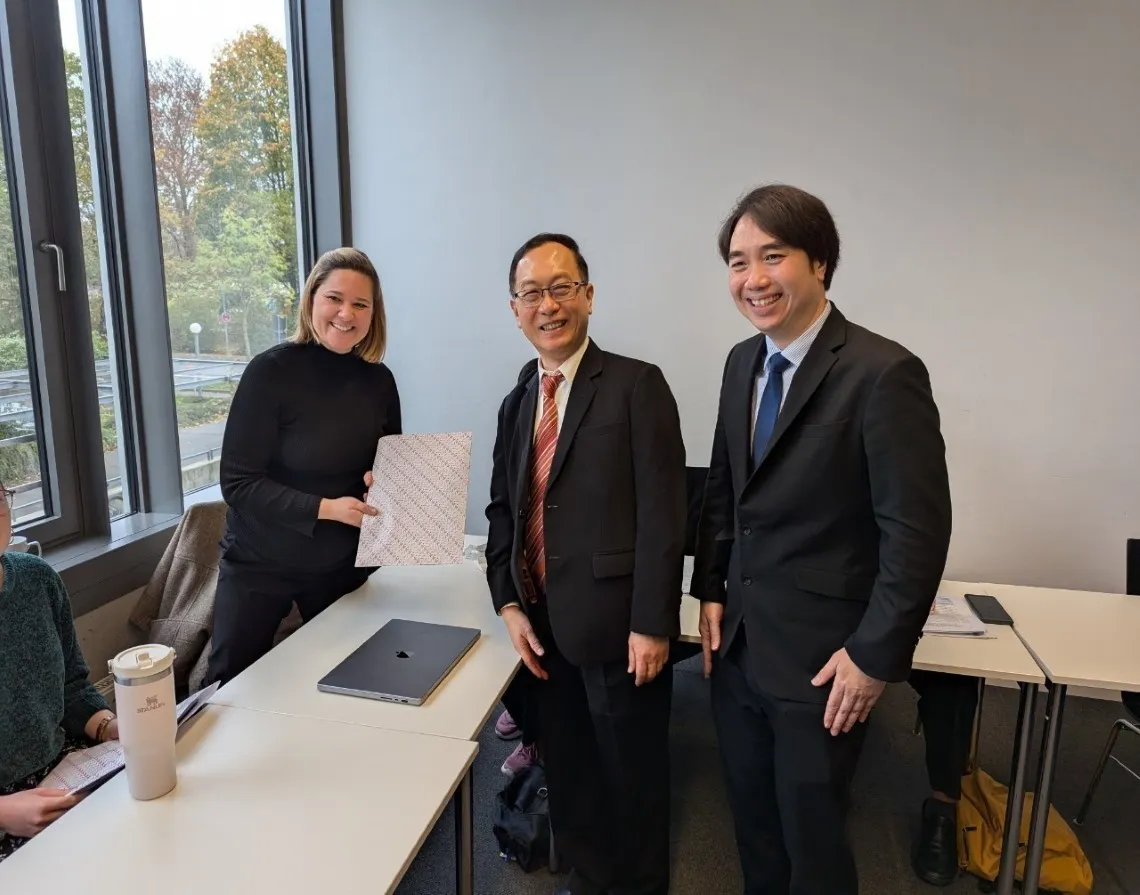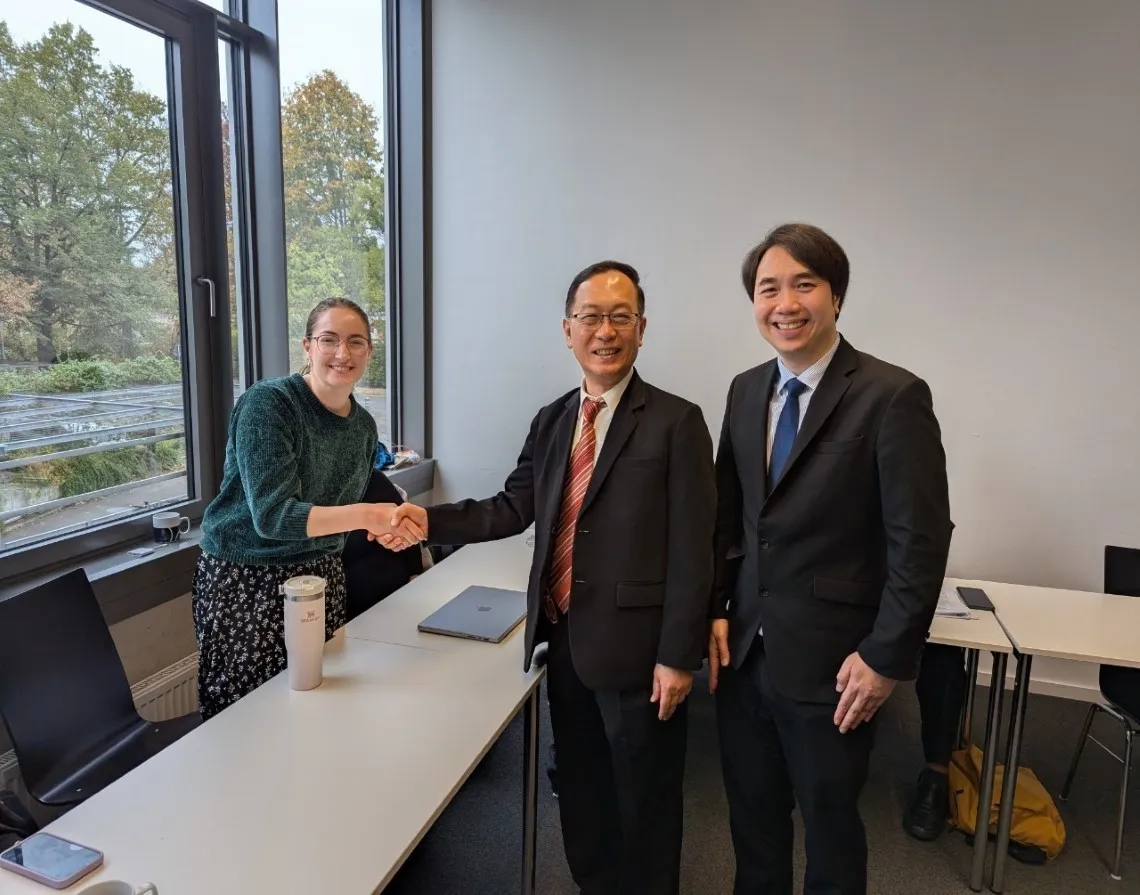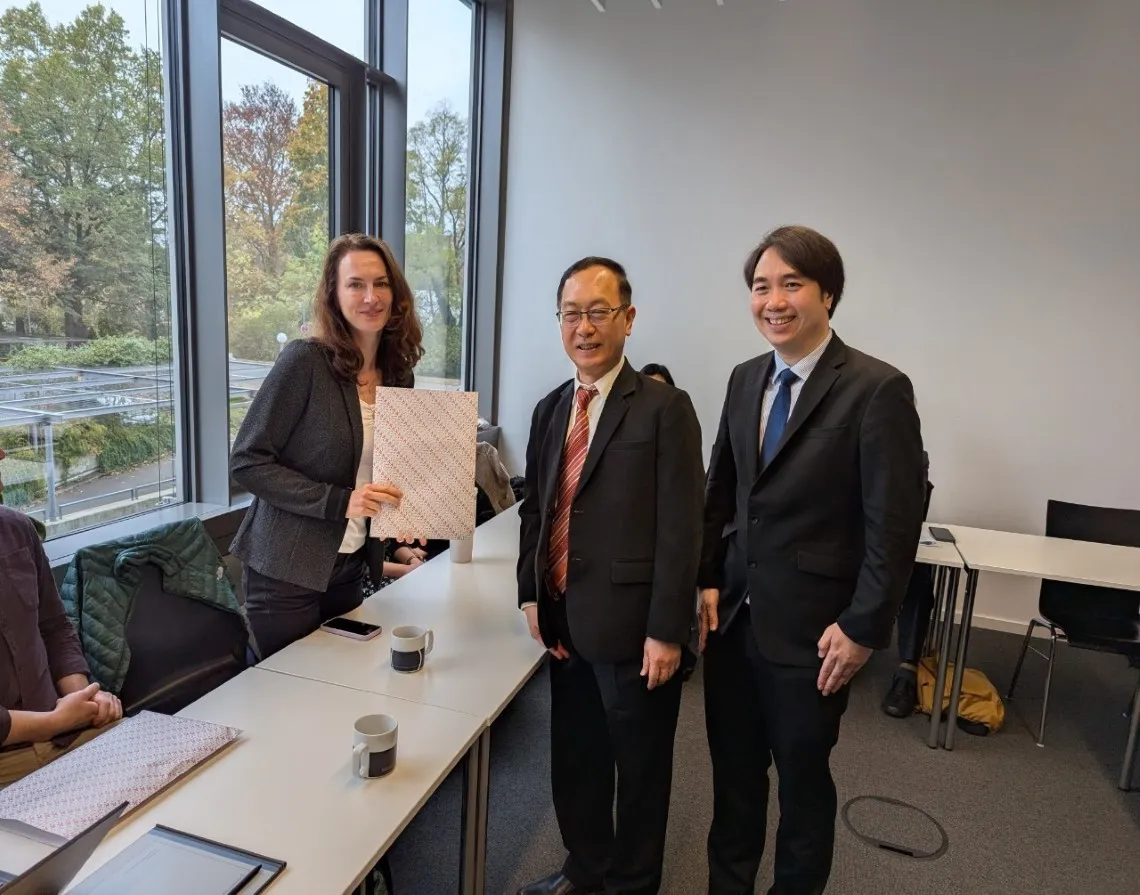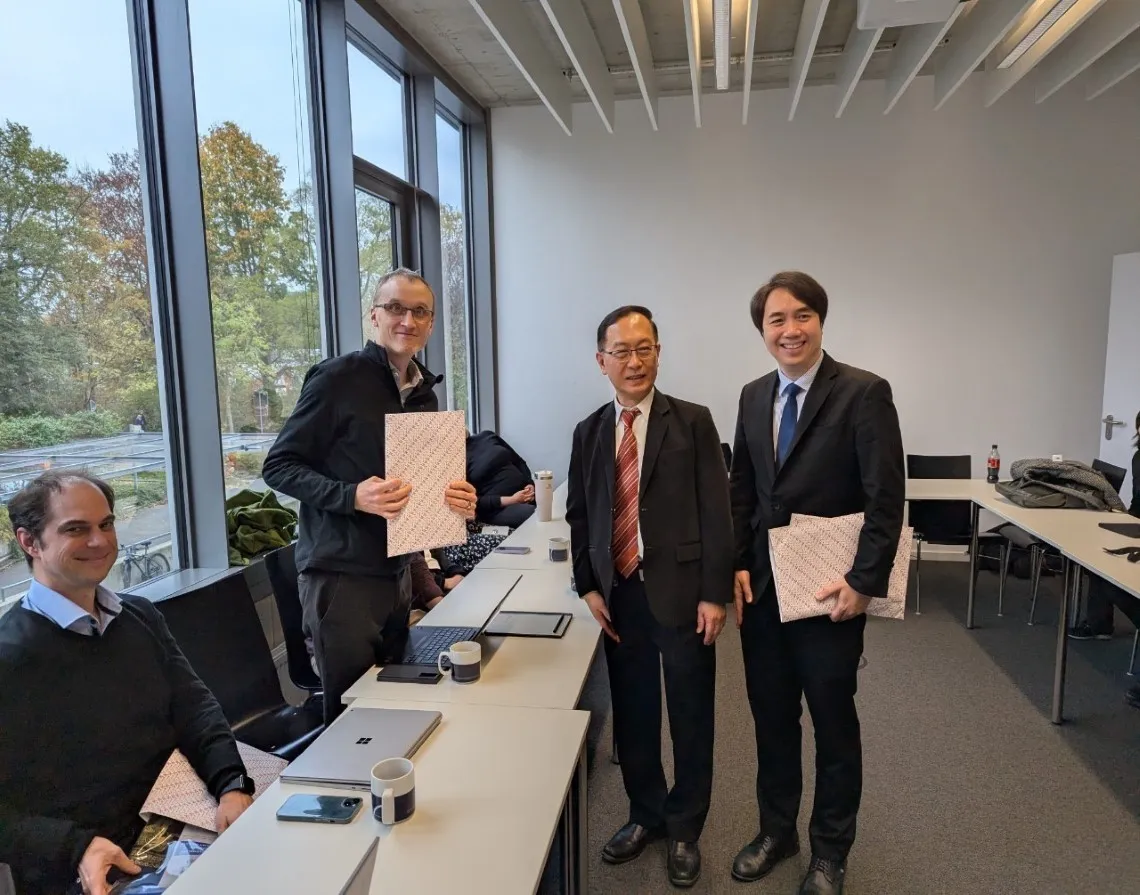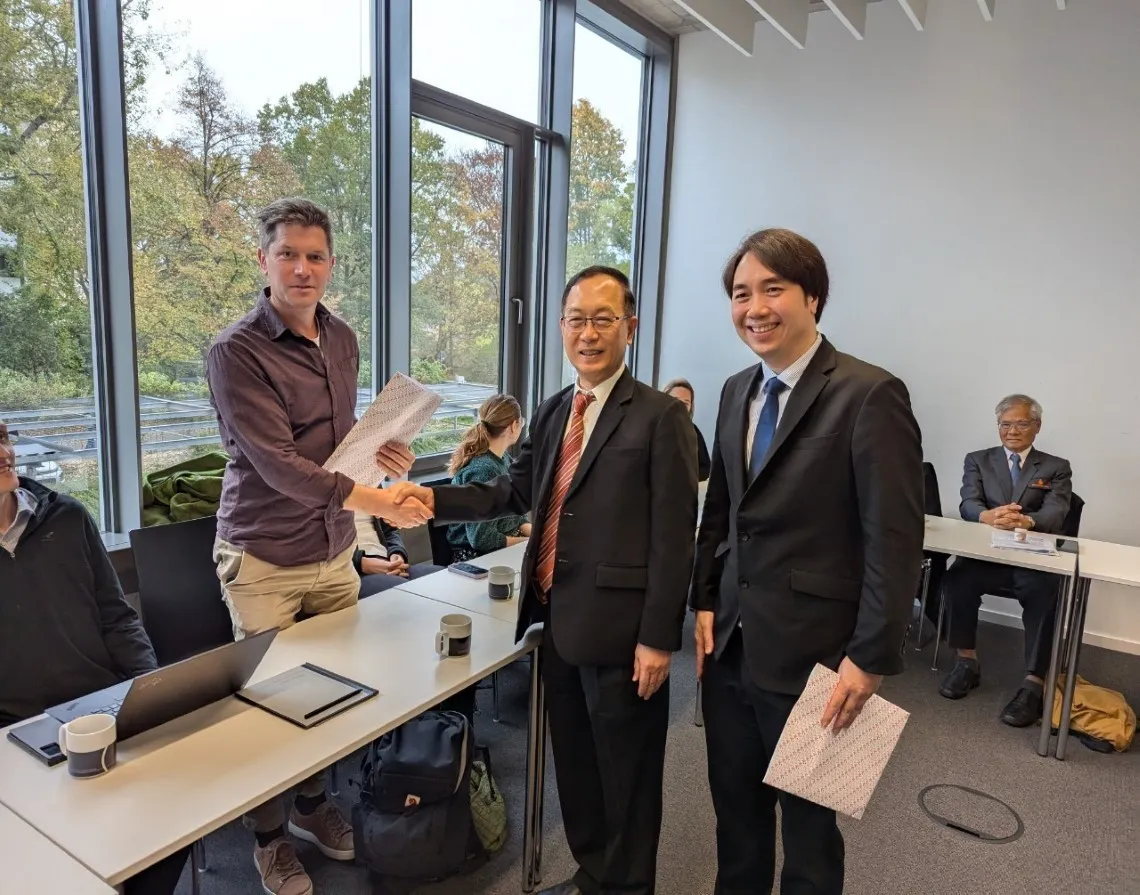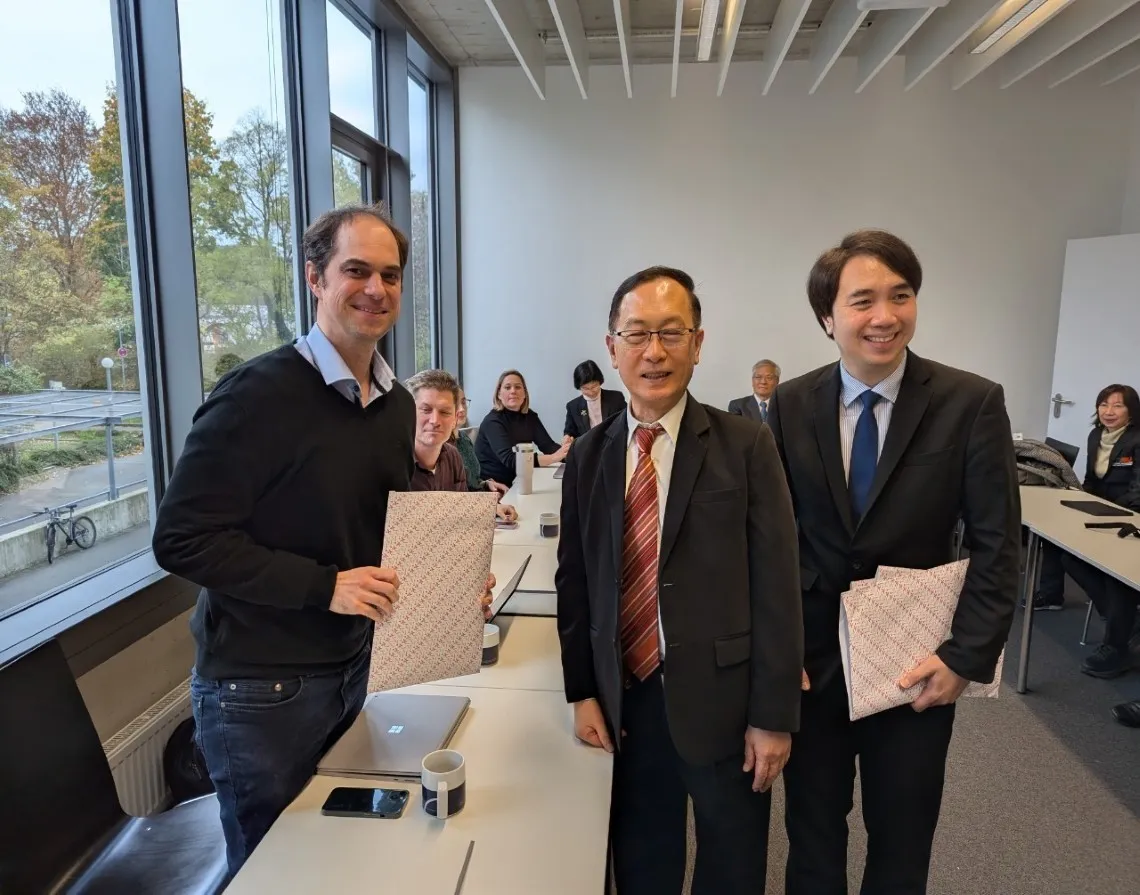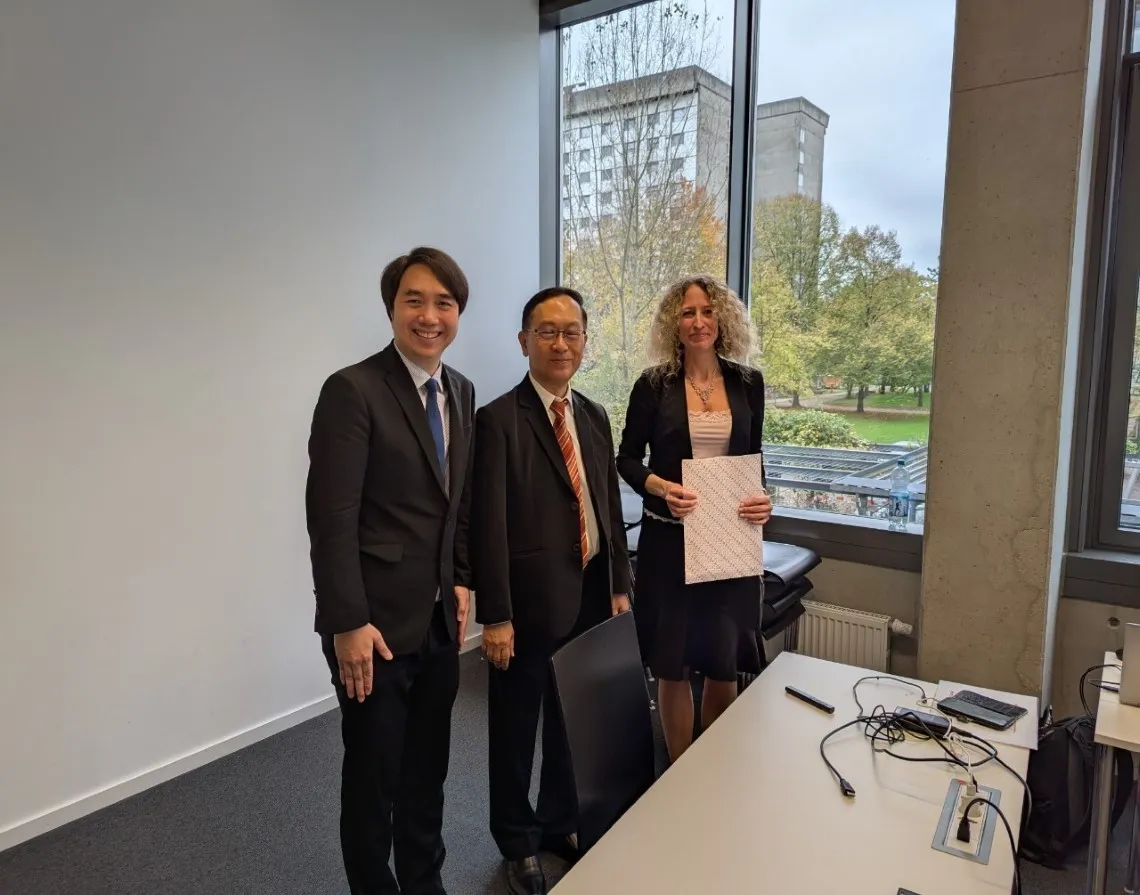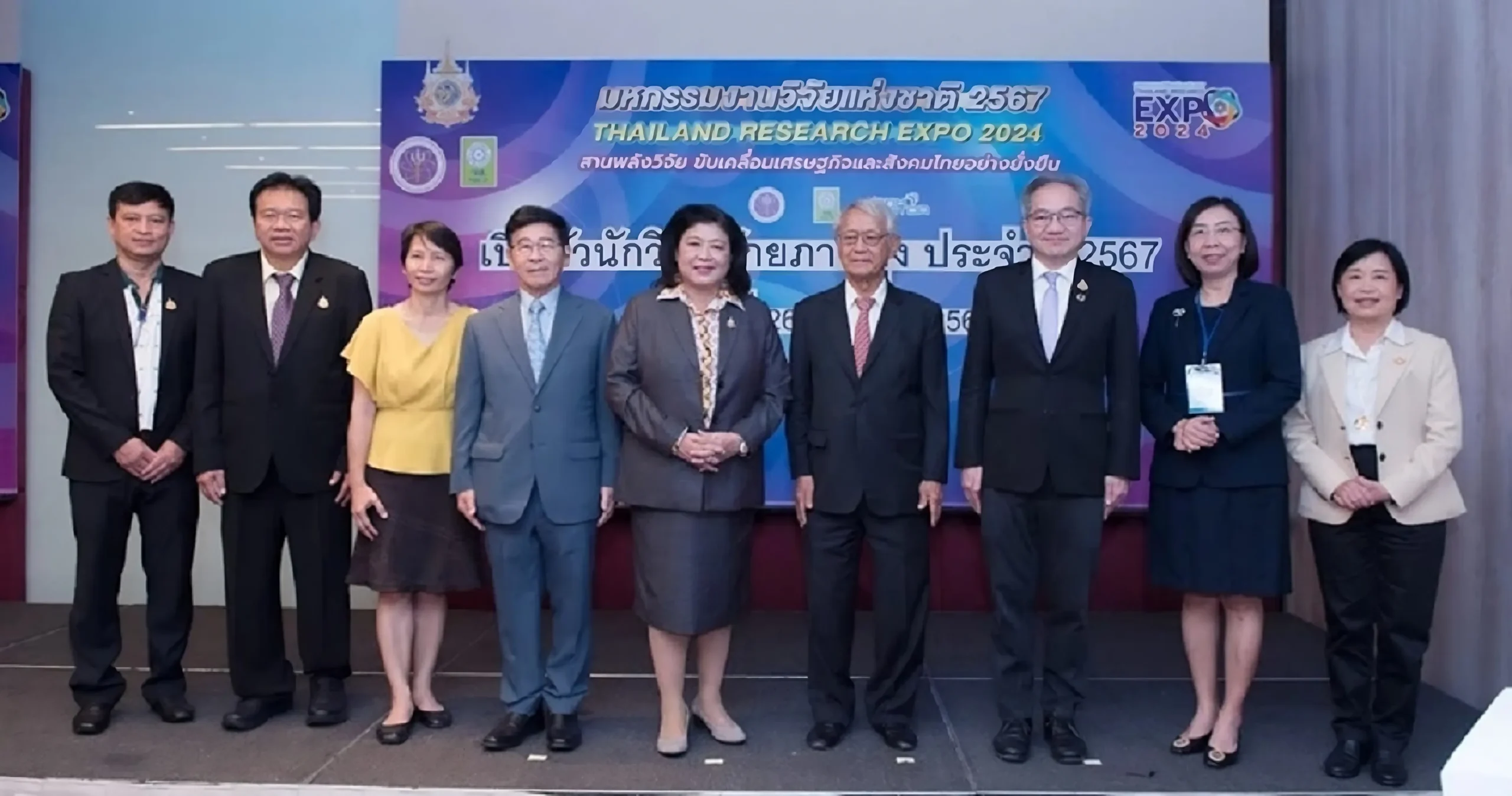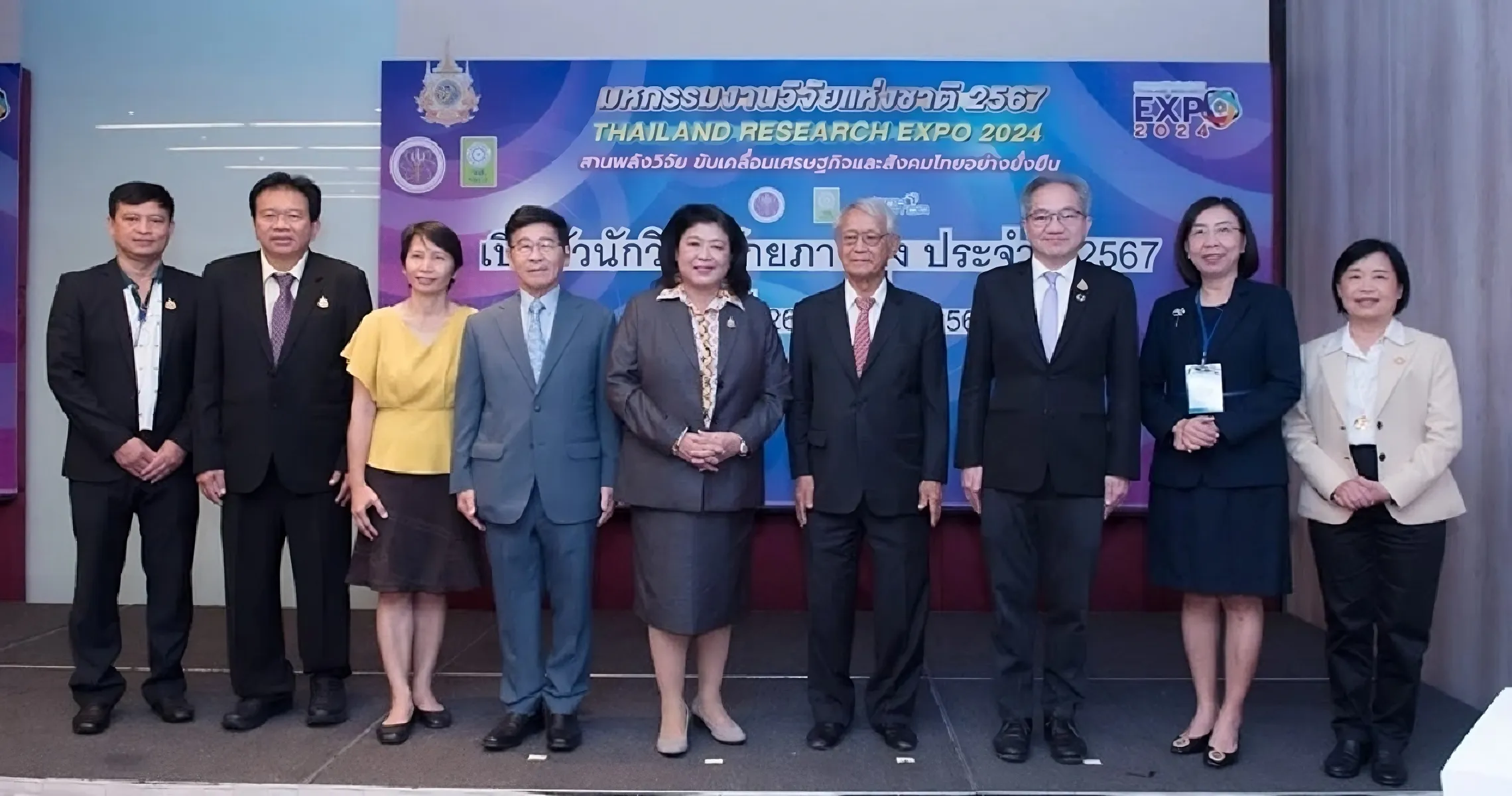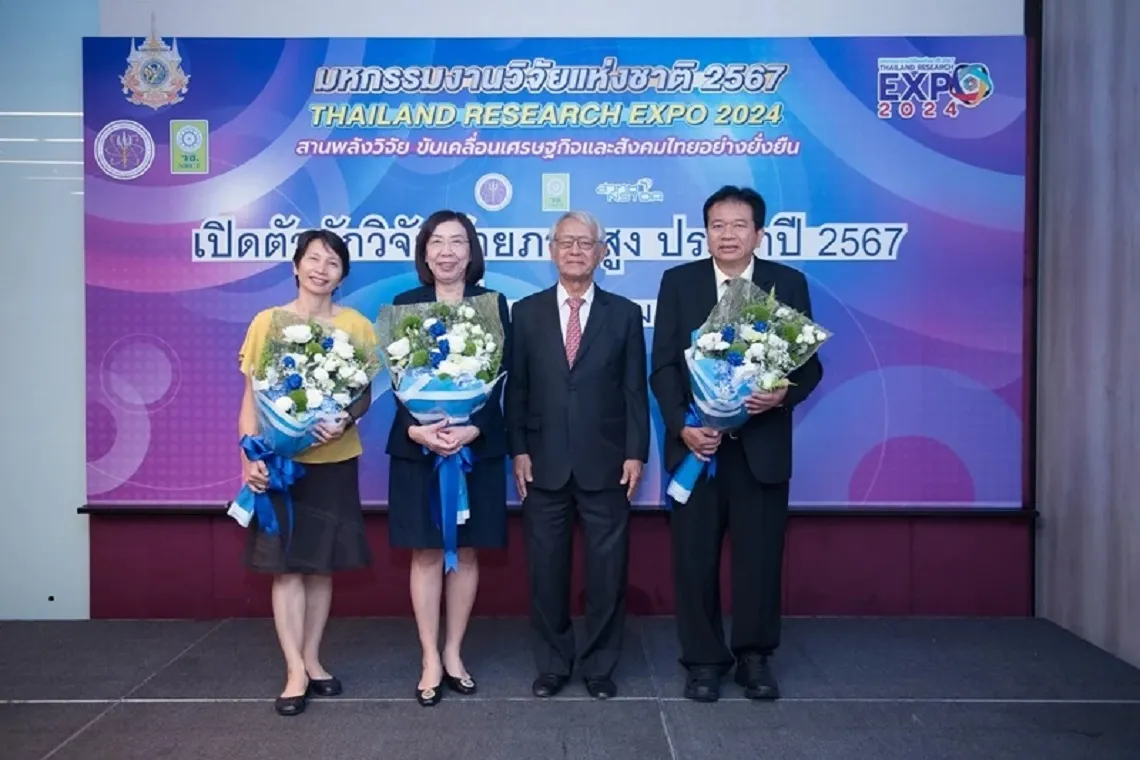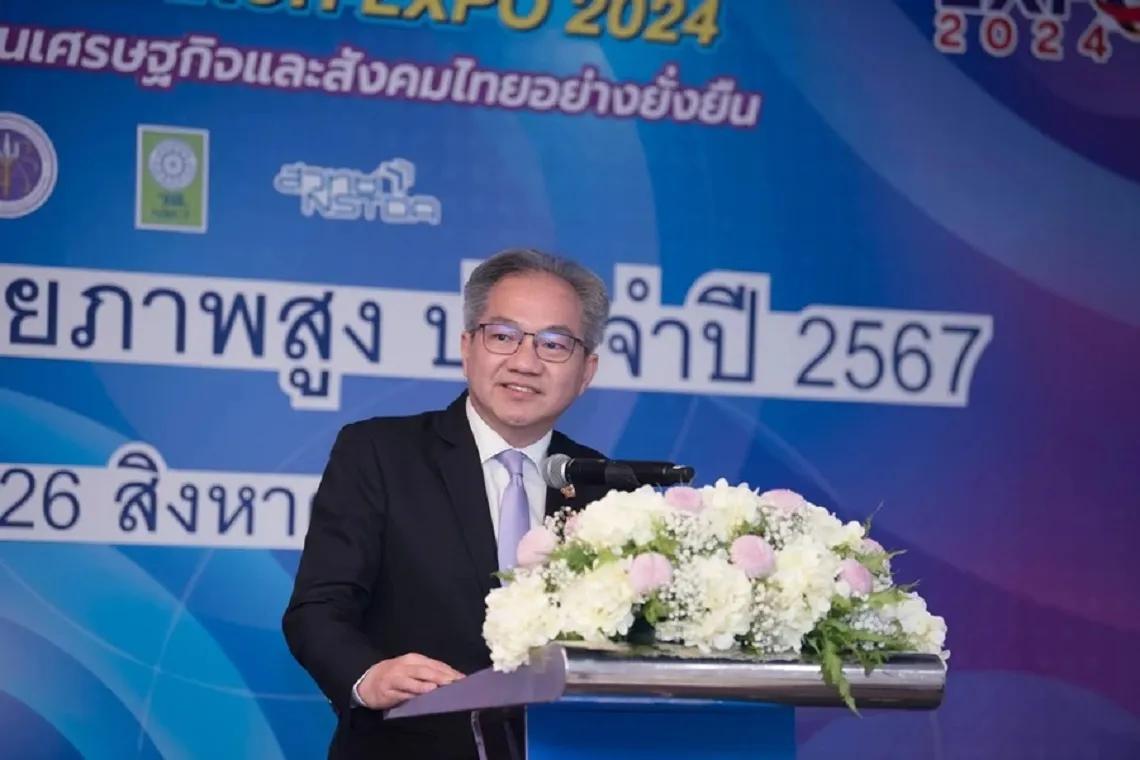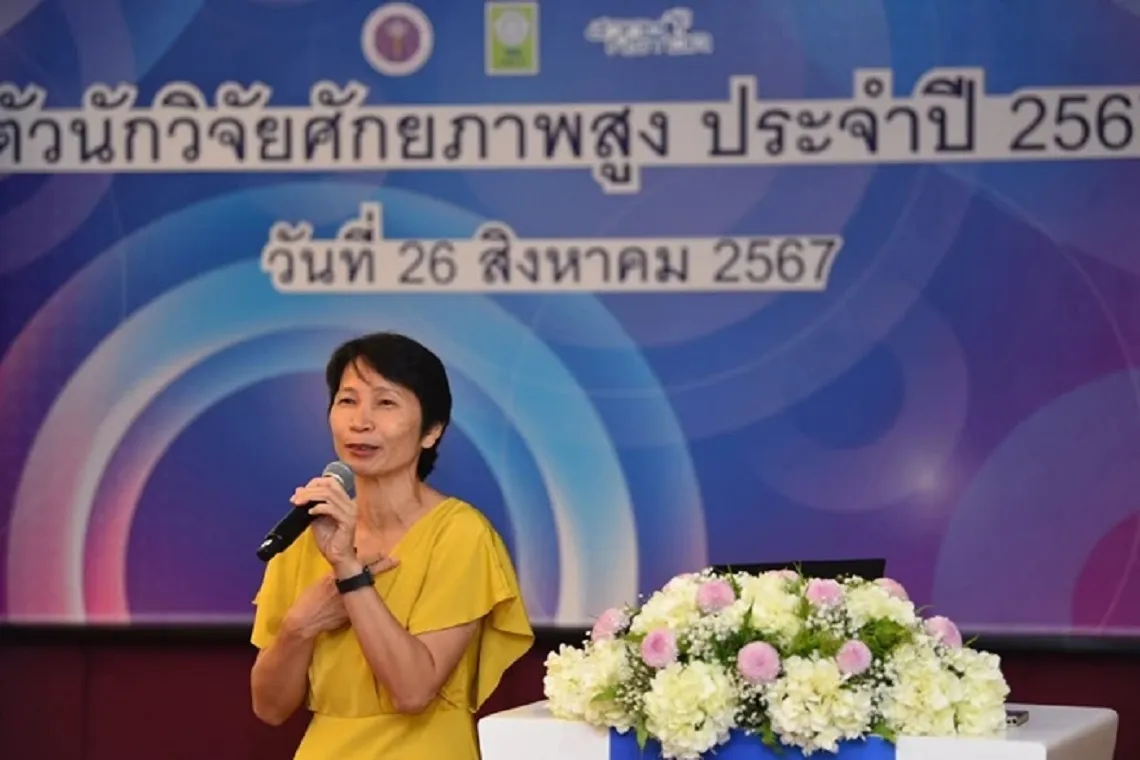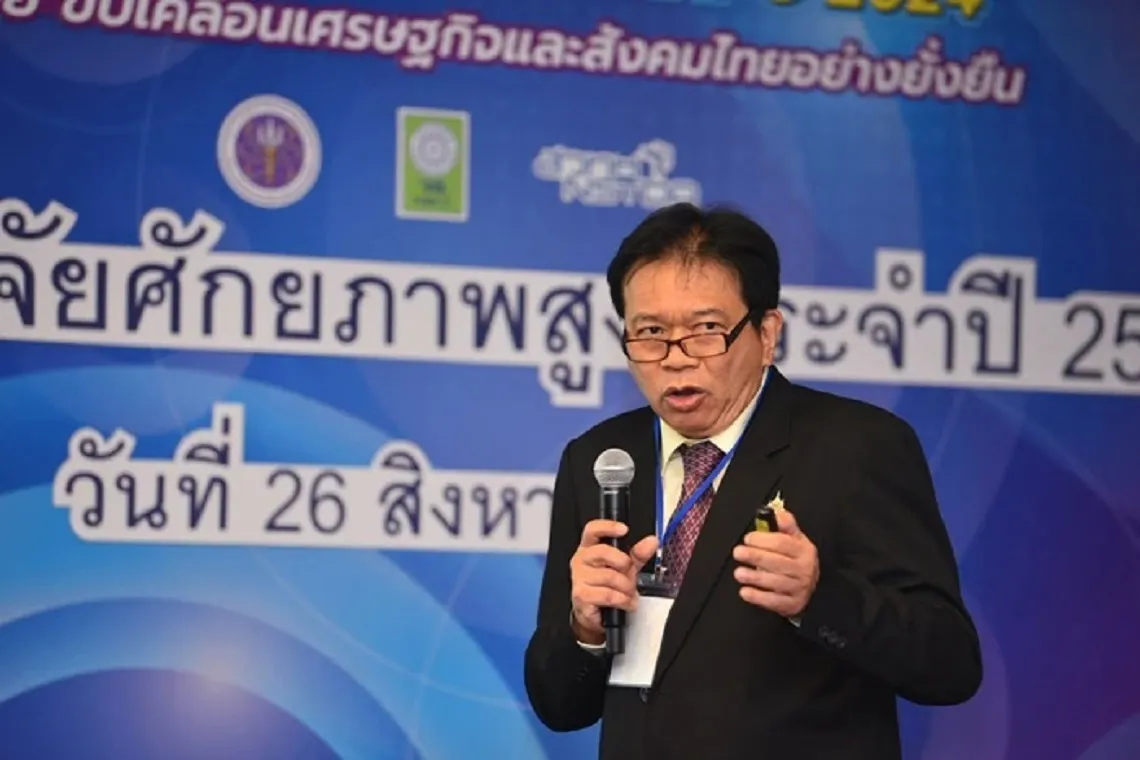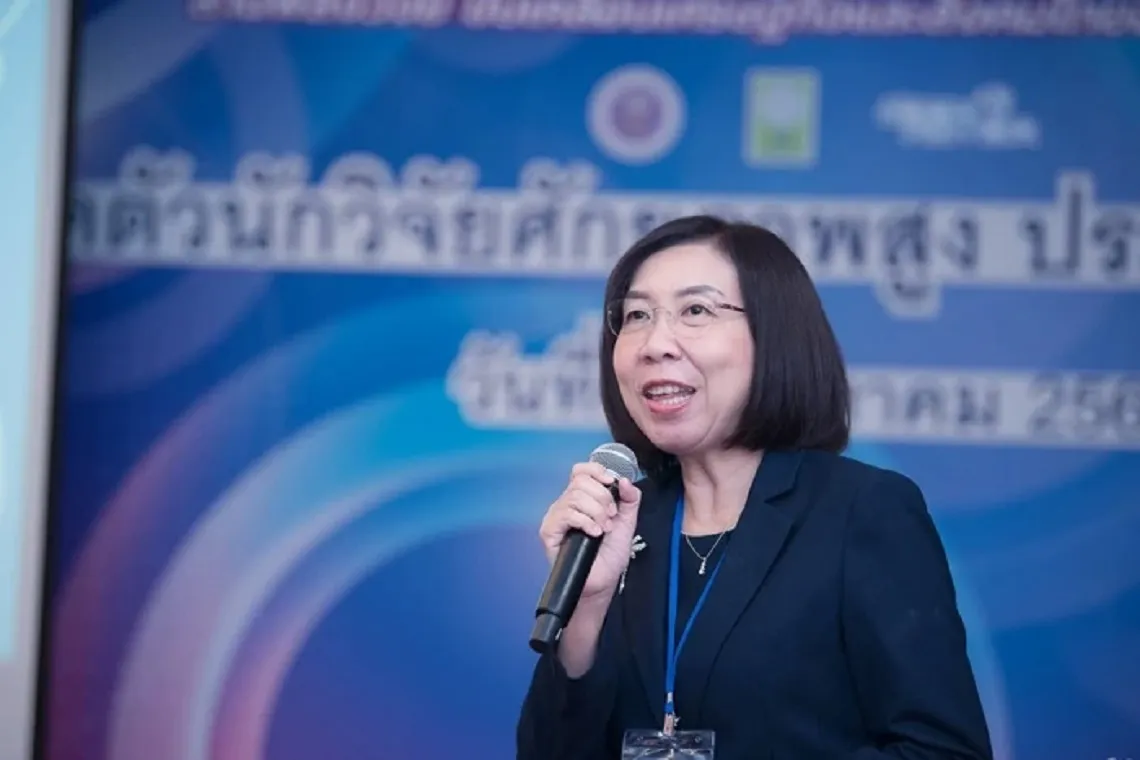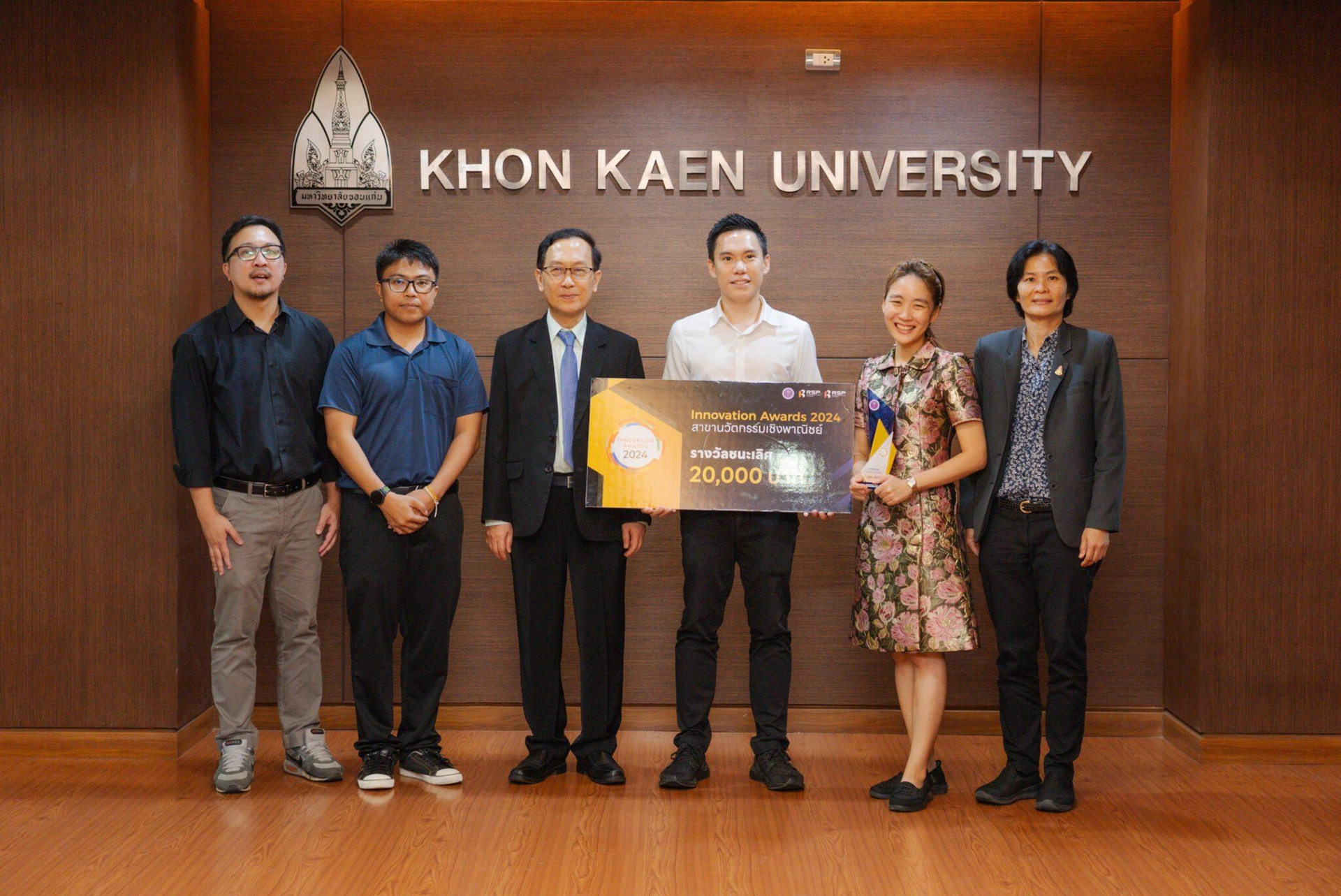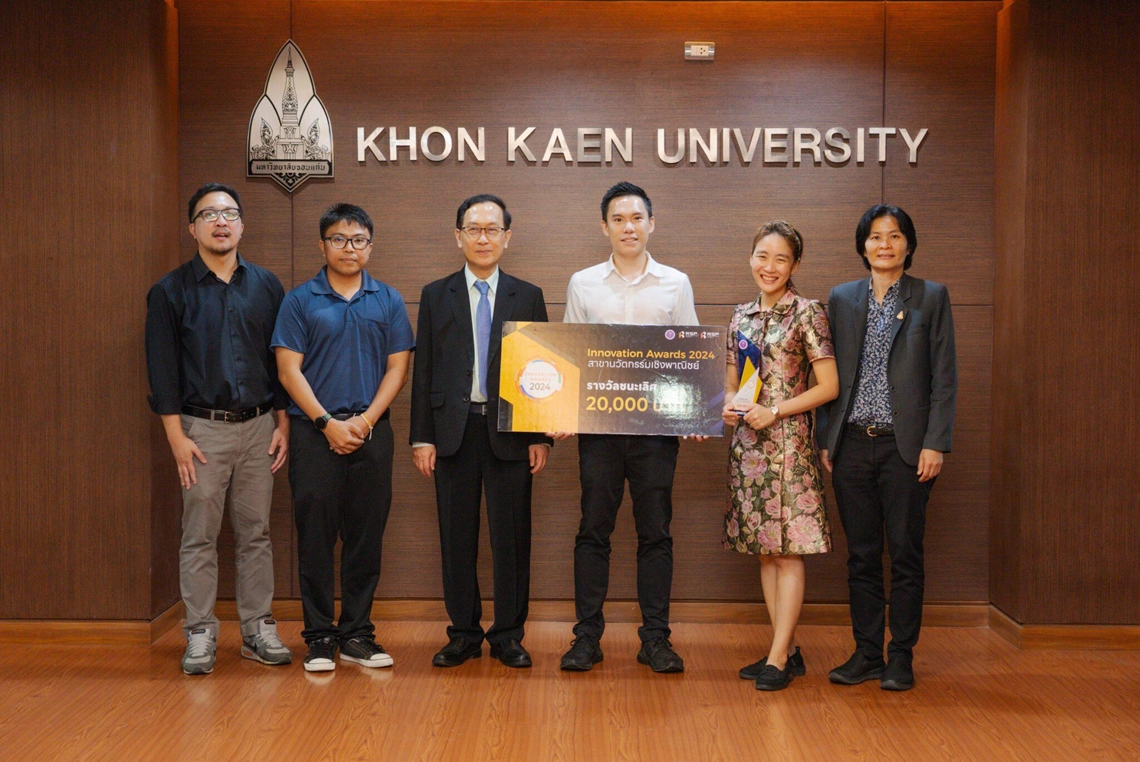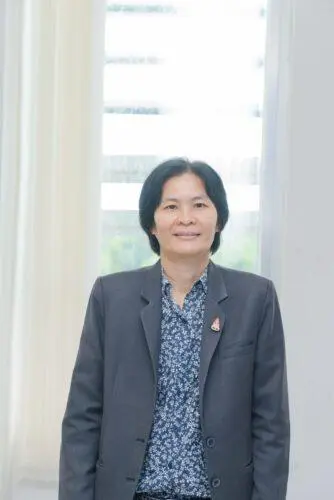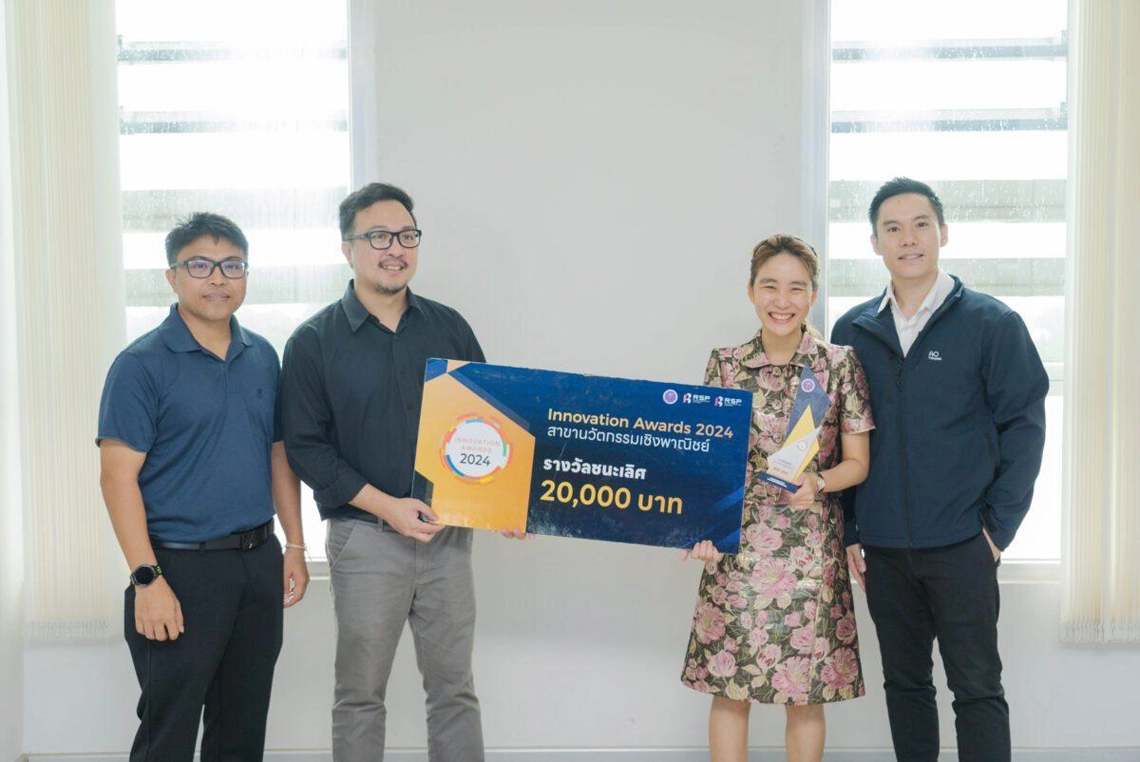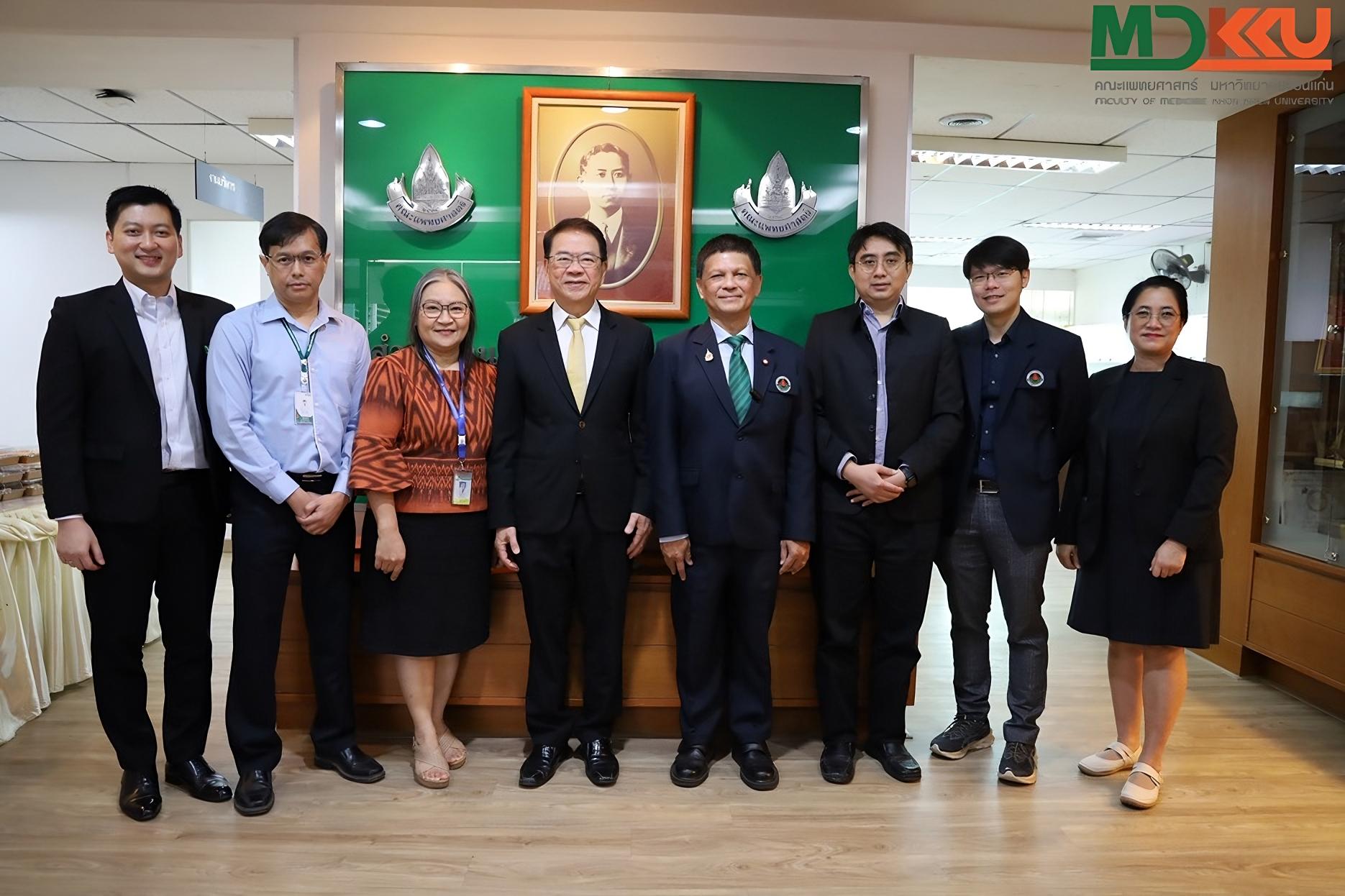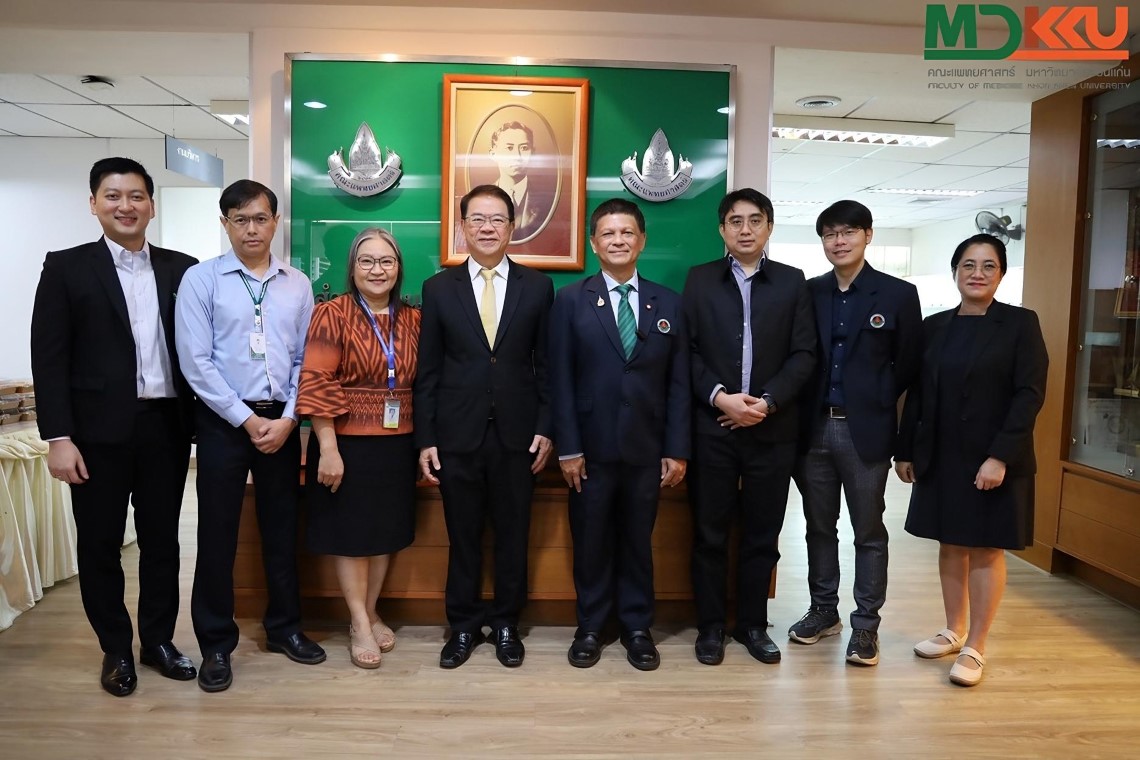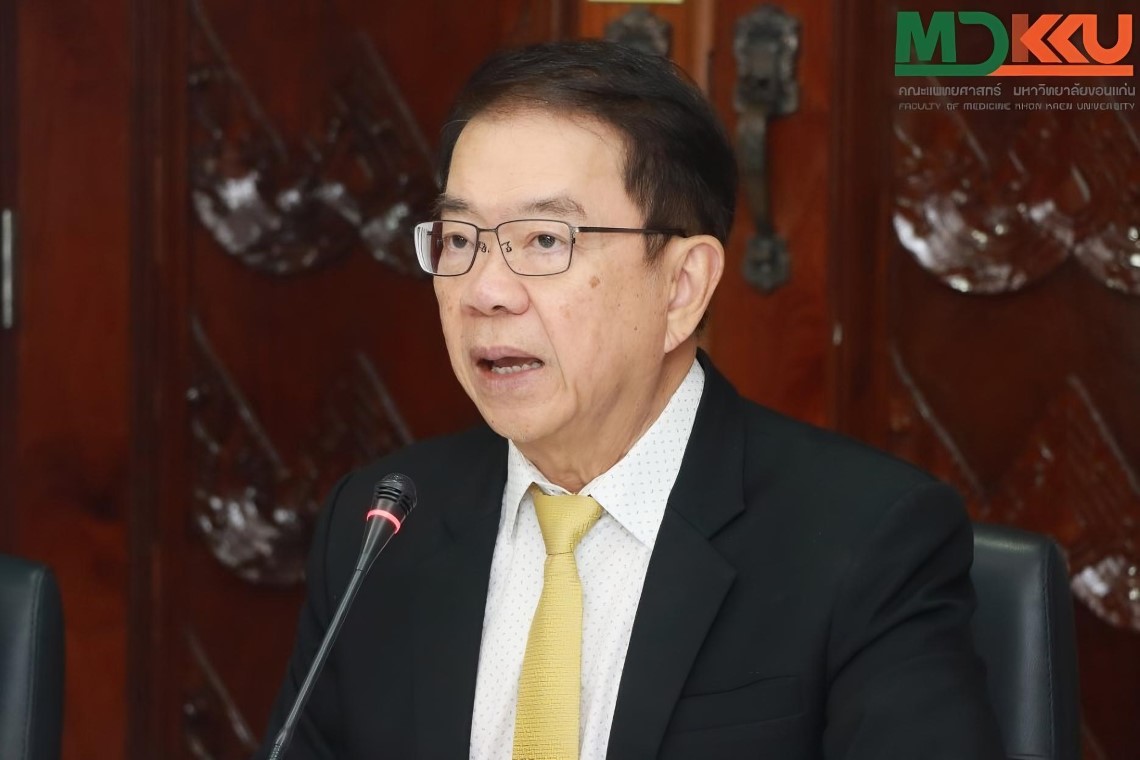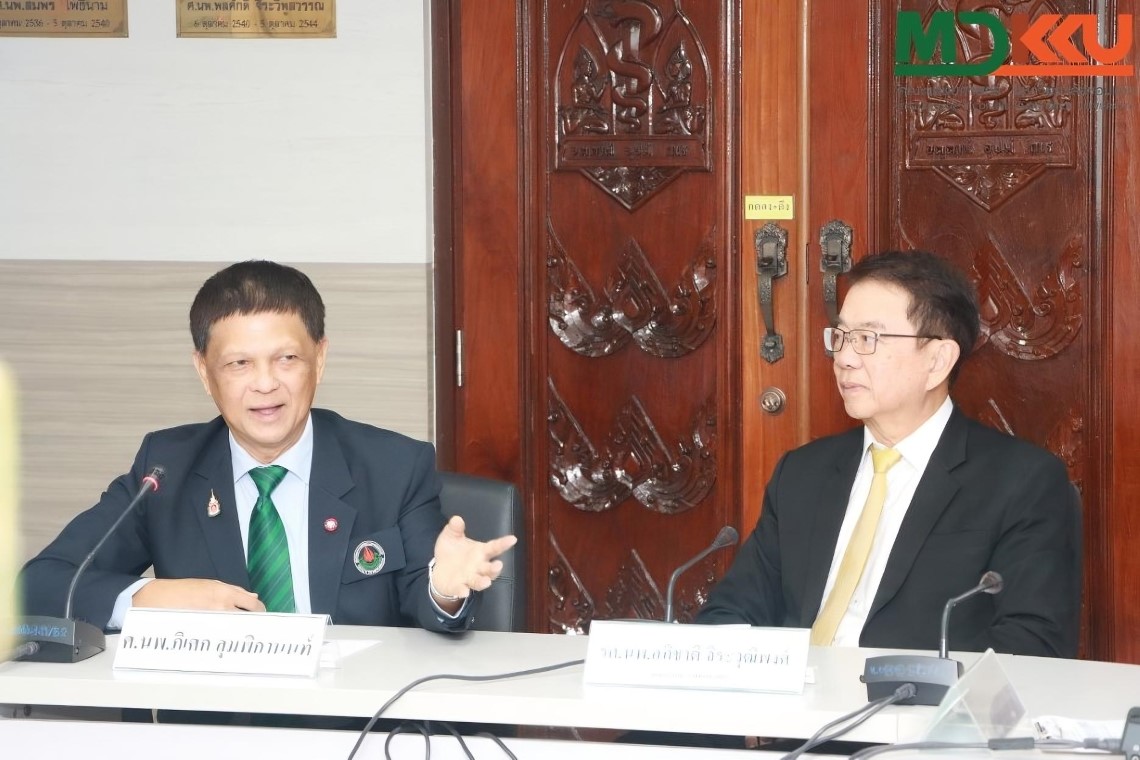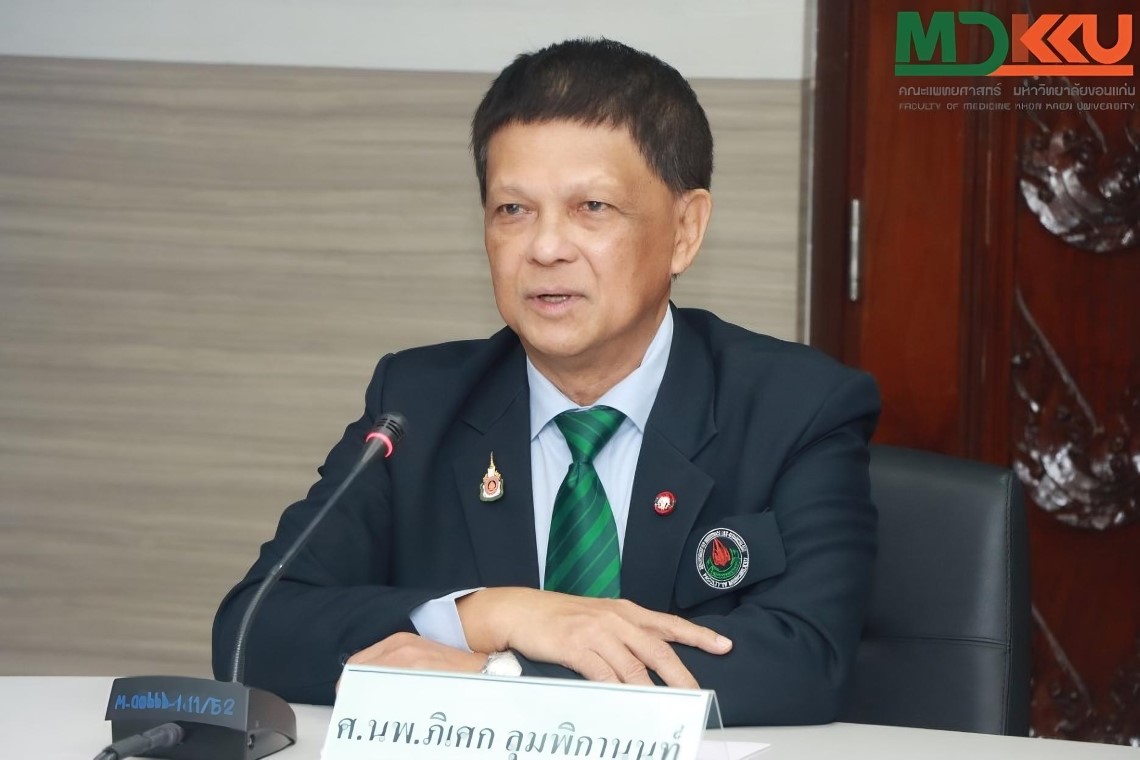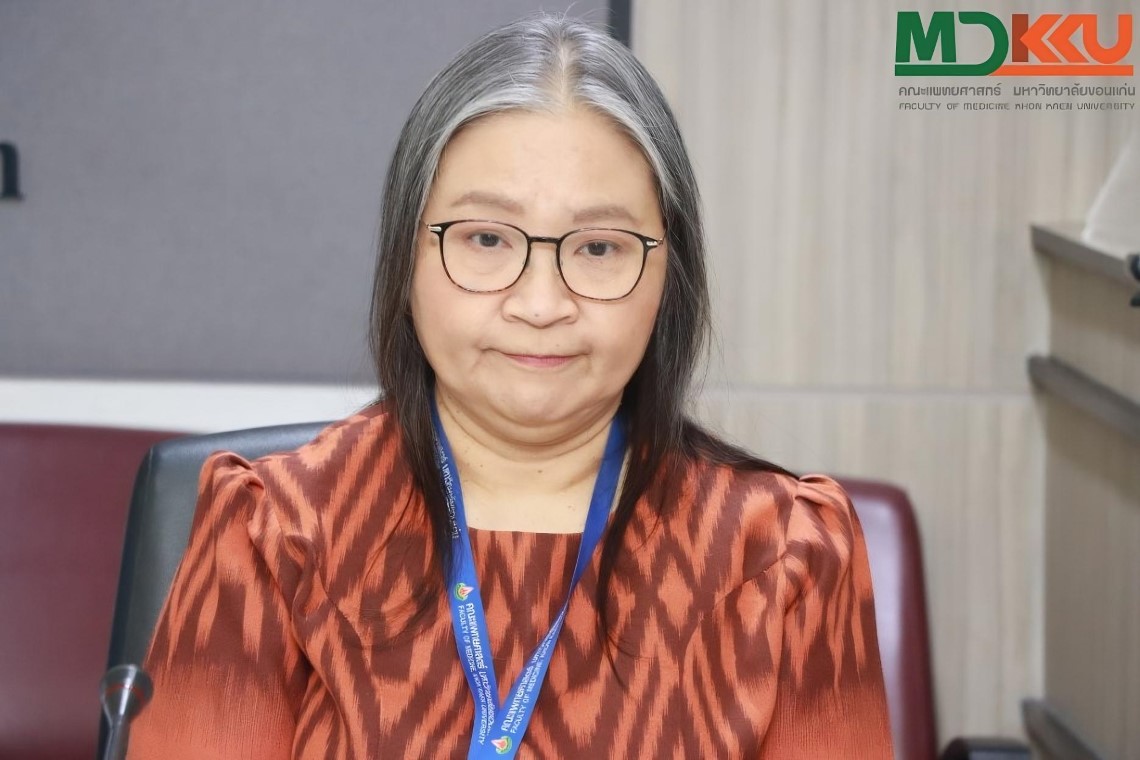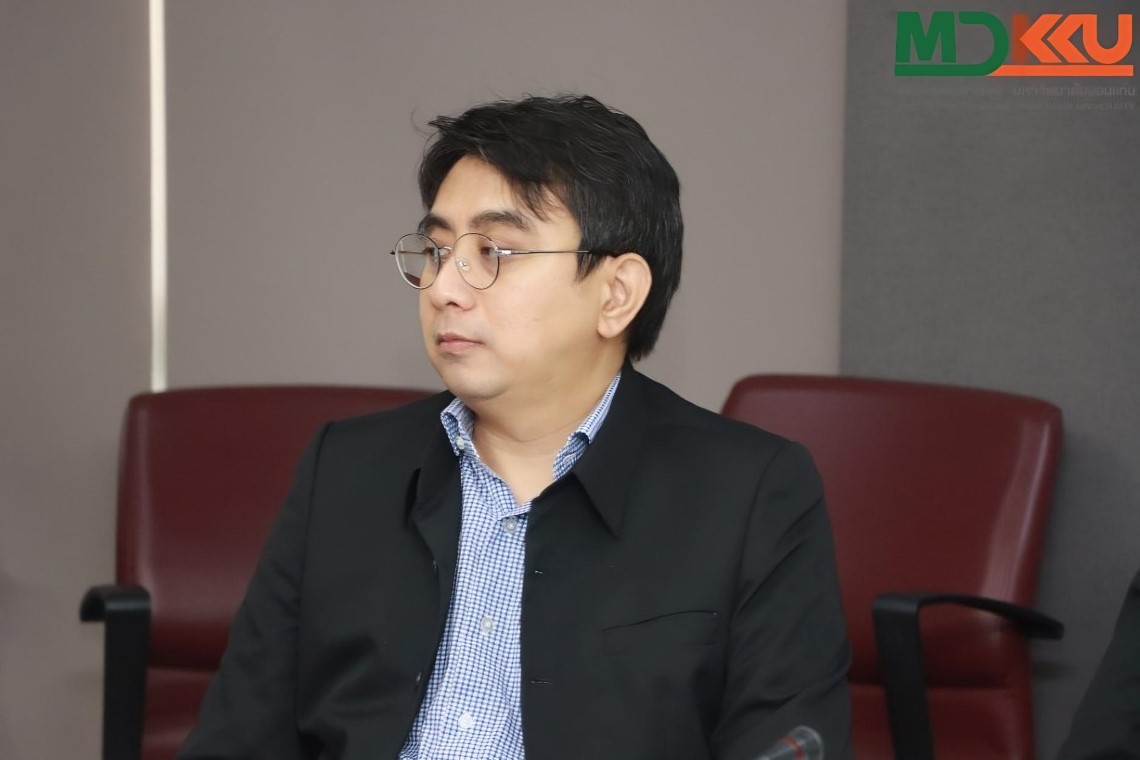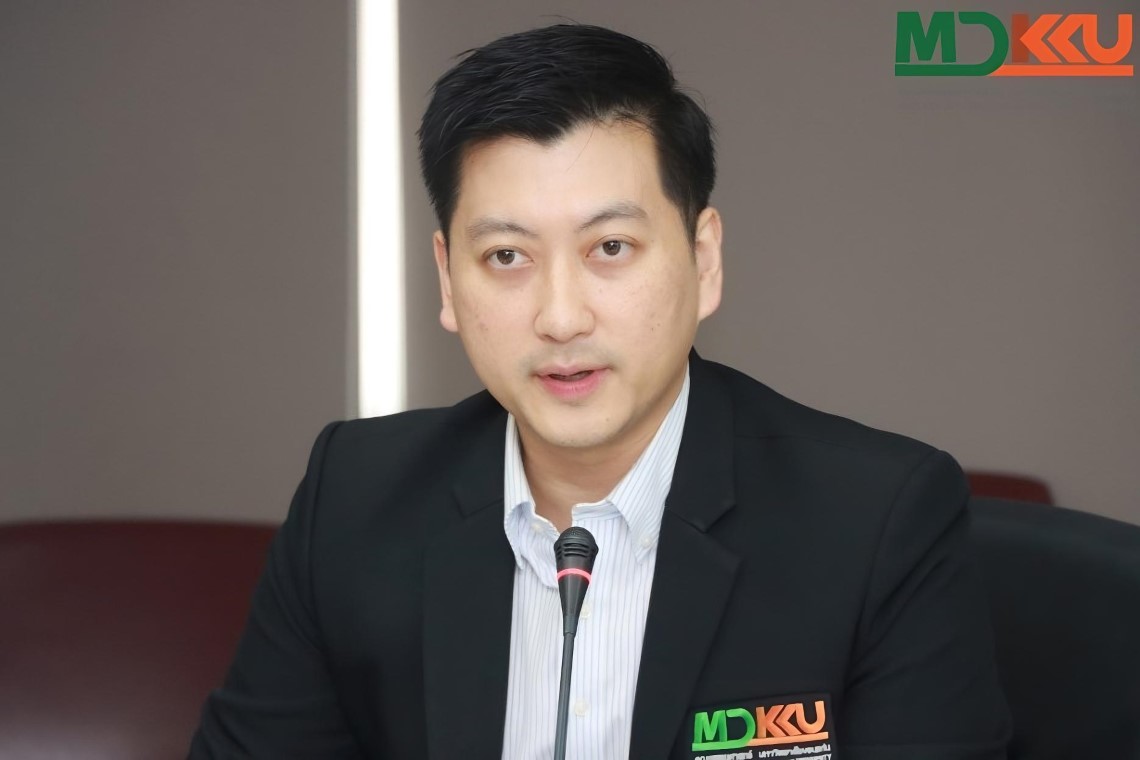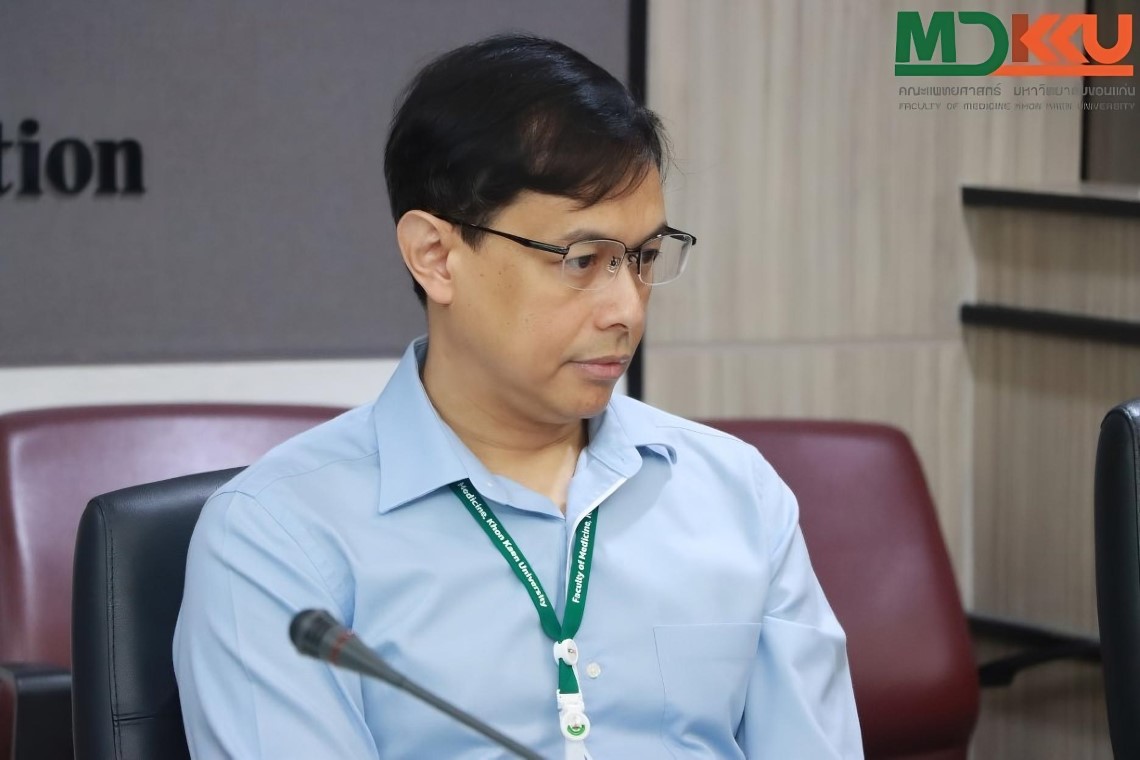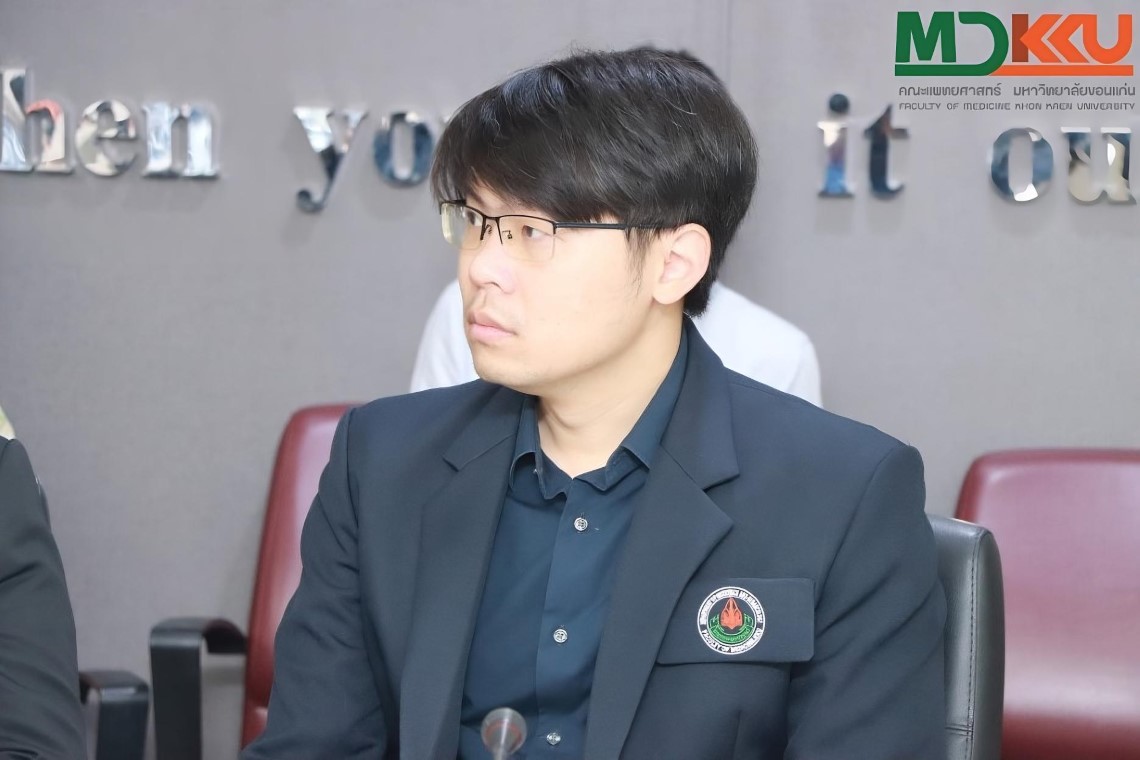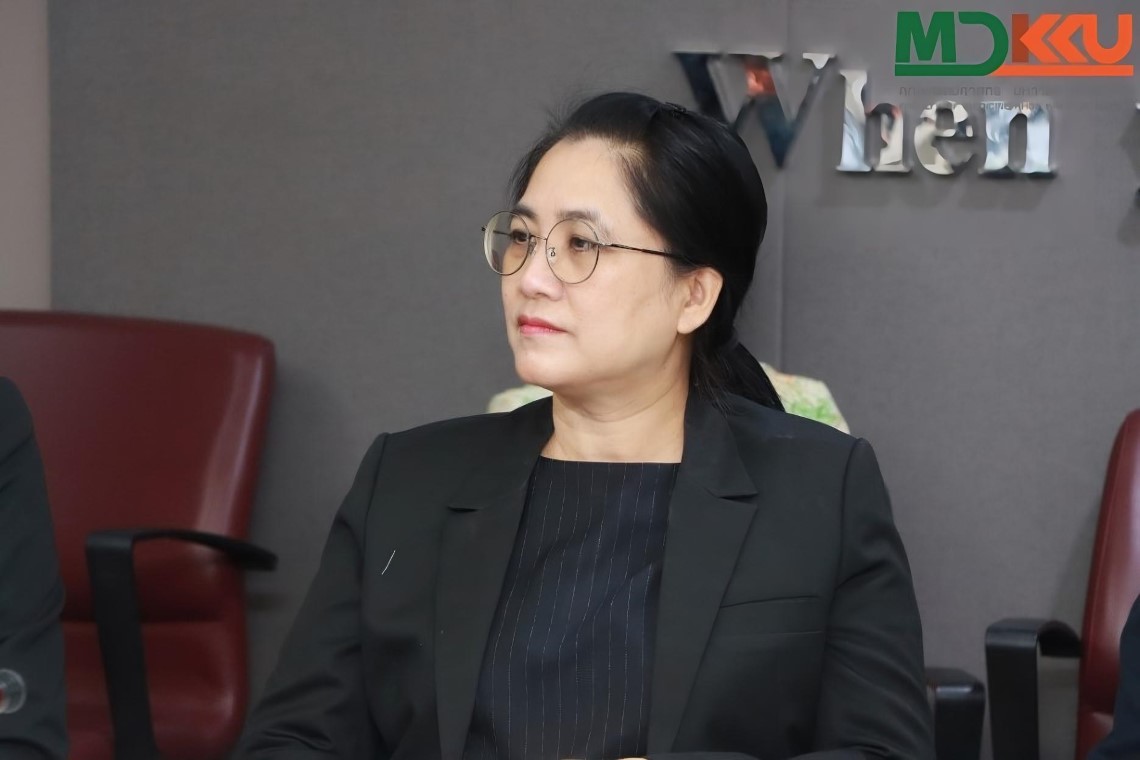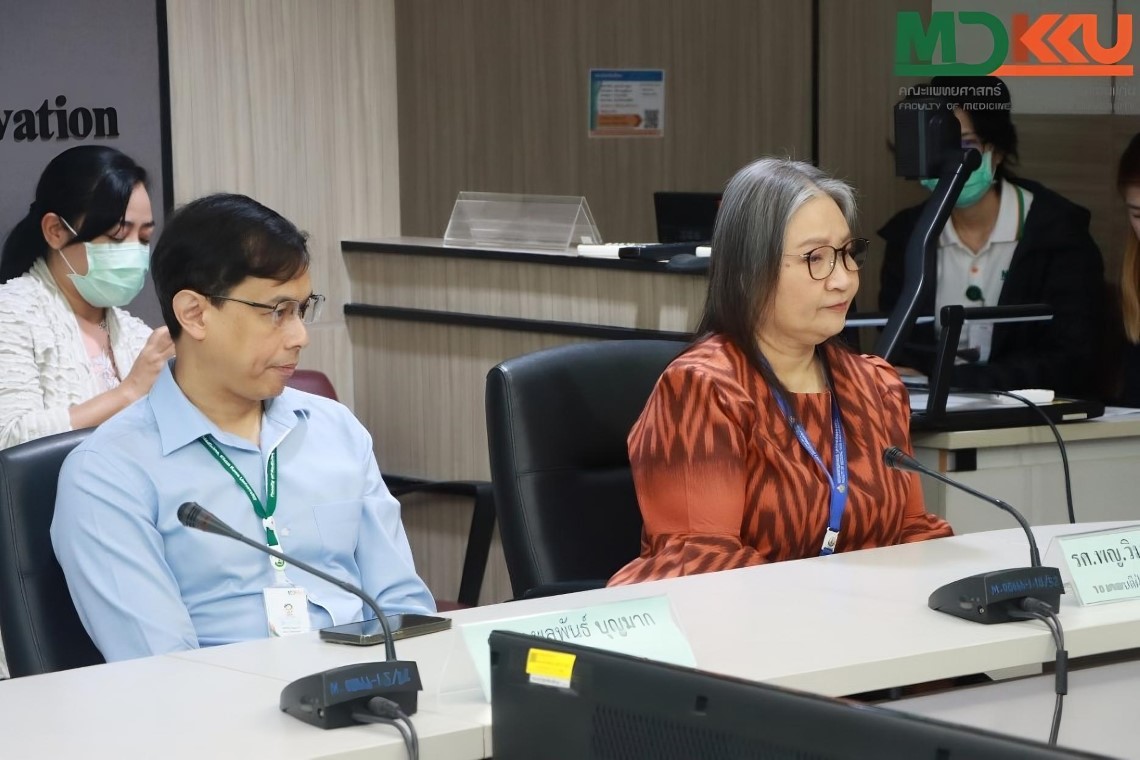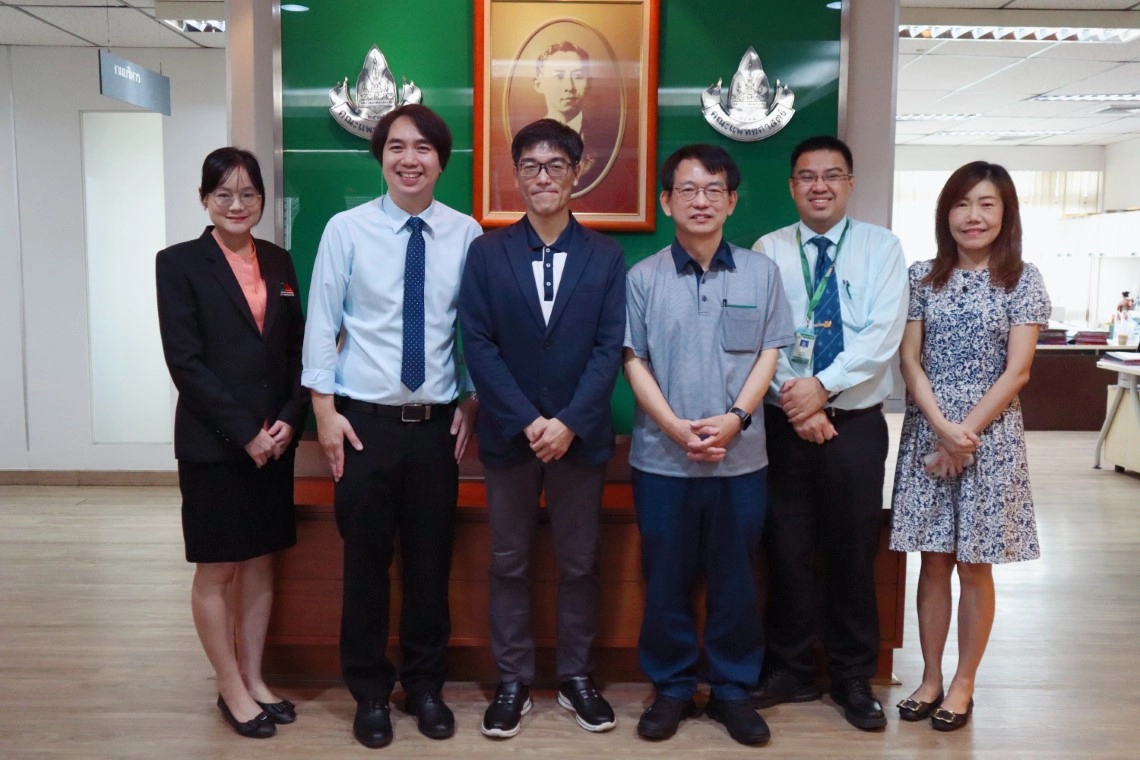
In a cross-border effort to develop targeted therapies for cholangiocarcinoma, a form of bile duct cancer highly prevalent in northeastern Thailand, faculty members from Taipei Medical University have partnered with the Faculty of Medicine, Khon Kaen University (MDKKU) to explore the role of glutamine metabolism as a new frontier in cancer treatment.
On July 4, the Faculty of Medicine at KKU hosted Assoc. Prof. Ching-Feng Chiu and Asst. Prof. Ching-Wen Chang from the Graduate Institute of Metabolism and Obesity Sciences, Taipei Medical University. The delegation met with Assoc. Prof. Pattarapong Makarawate, Dean of the Faculty of Medicine, and faculty members including Assoc. Prof. Warachaya Phanphruk, Assistant Dean for International Relations and Corporate Communication, Assoc. Prof. Kanlayanee Sawanyawisuth, Head of the Department of Biochemistry, and Assoc. Prof. Charupong Saengboonmee, Department of Biochemistry to discuss advancing high-impact biomedical research.
The partnership is centered on metabolism research—particularly how cancer cells rely on glutamine as a key energy source. Both institutions are working to establish a long-term research strategy that connects local clinical challenges with global biomedical innovation.
Investigating Glutamine: A Metabolic Key to Cancer Cell Growth
Assoc. Prof. Ching-Feng Chiu and Asst. Prof. Ching-Wen Chang have been invited to serve as Research Visiting Professors at the Department of Biochemistry, Faculty of Medicine, Khon Kaen University, from July 3-12, 2025. During their visit, they are collaborating on a research project titled “Targeting Glutamine Metabolism Pathway for Cholangiocarcinoma Treatment,” coordinated by Assoc. Prof. Charupong Saengboonmee of the Department of Biochemistry.
The project investigates the glutamine metabolic pathway—an energy source essential for the growth and survival of cancer cells. By using cultured cholangiocarcinoma cells and patient-derived tissue samples, the team aims to assess whether targeting this pathway could form the basis for a more selective and less toxic treatment strategy, compared to traditional methods.
From Bench to Forum: Academic Exchange and Capacity Building
Beyond laboratory research, Assoc. Prof. Ching-Feng Chiu and Asst. Prof. Ching-Wen Chang will contribute as featured speakers at The 19th International Symposium of the Protein Society of Thailand (PST2025), taking place July 7–9 in Khon Kaen. The symposium is organized by the Protein Society of Thailand in collaboration with Khon Kaen University’s Faculties of Medicine, Science, and Associated Medical Sciences.
Additionally, they will serve as thesis proposal committee members for Ph.D. candidates in Medical Biochemistry and Molecular Biology, and will engage in knowledge exchange activities designed to build research capacity among local faculty and students.
A Regional Hub for Translational Research
This initiative affirms MDKKU’s growing role as a regional center for health sciences collaboration in Southeast Asia. By focusing on diseases endemic to Thailand and leveraging cutting-edge molecular approaches, MDKKU continues to attract global partnerships aligned with its mission to deliver meaningful, locally rooted biomedical solutions.
“This is not merely an exchange of researchers,” said Assoc. Prof. Pattarapong Makarawate, Dean of the Faculty of Medicine. “It is a joint effort to design the future of precision medicine—rooted in the specific health challenges of our region.”
นักวิจัย Taipei Medical University ร่วมวิจัย แพทย์ มข. ขับเคลื่อนความหวังใหม่ของผู้ป่วยมะเร็งท่อน้ำดีไทย ผ่านวิถีเมแทบอลิซึมของกลูตามีน
เมื่อวันที่ 4 กรกฎาคม 2568 คณะแพทยศาสตร์ มหาวิทยาลัยขอนแก่น ได้เปิดบ้านต้อนรับนักวิจัยชั้นนำจาก Taipei Medical University ได้แก่ Assoc. Prof. Ching-Feng Chiu และ Asst. Prof. Ching-wen Chang จาก Graduate Institute of Metabolism and Obesity Sciences, Taipei Medical University เข้าพบ รศ. ภัทรพงษ์ มกรเวส คณบดีคณะแพทยศาสตร์ เพื่อหารือเชิงยุทธศาสตร์ด้านความร่วมมือวิจัย โดยมี รศ. วรัชญา พันธุพฤกษ์ ผู้ช่วยคณบดีฝ่ายวิเทศสัมพันธ์และสื่อสารองค์กร รศ. กัลยาณี สวรรยาวิสุทธิ์ หัวหน้าสาขาวิชาชีวเคมี และ รศ. จารุพงษ์ แสงบุญมี สาขาวิชาชีวเคมี ร่วมให้การต้อนรับและแลกเปลี่ยนมุมมองด้านวิทยาศาสตร์สุขภาพ เพื่อหารือแนวทางการผลักดันความร่วมมือด้านวิจัยขั้นสูง โดยเฉพาะการพัฒนาองค์ความรู้ด้าน metabolism ซึ่งเป็นหัวใจสำคัญของการแพทย์แม่นยำในอนาคต
การหารือครั้งนี้มีเป้าหมายเพื่อกำหนดยุทธศาสตร์ความร่วมมือวิจัยระยะยาว ที่สามารถเชื่อมโยงโจทย์ทางคลินิกของประเทศไทยเข้ากับเทคโนโลยีชีวภาพขั้นสูงระดับโลก โดยเฉพาะกับโรคมะเร็งท่อน้ำดี ซึ่งเป็นปัญหาสาธารณสุขเฉพาะถิ่นของภาคตะวันออกเฉียงเหนือ
เปิดกลไกกลูตามีน – สู่แนวทางรักษามะเร็งแบบแม่นยำ
โดยศาสตราจารย์ทั้งสองได้เดินทางมาปฏิบัติงานในฐานะ Research Visiting Professor ณ สาขาวิชาชีวเคมี คณะแพทยศาสตร์ มหาวิทยาลัยขอนแก่น ระหว่างวันที่ 3–12 กรกฎาคม 2568 โดยดำเนินการวิจัยในหัวข้อ “การมุ่งเป้าวิถีเมแทบอลิซึมของกลูตามีนเพื่อการรักษามะเร็งท่อน้ำดี” (Targeting glutamine metabolism pathway for cholangiocarcinoma treatment) ภายใต้การประสานงานหลักโดย รศ. จารุพงษ์ แสงบุญมี สาขาวิชาชีวเคมี
เป้าหมายของงานวิจัย คือการศึกษากลไกการทำงานของวิถีเมแทบอลิซึมของกลูตามีน ซึ่งเป็นแหล่งพลังงานสำคัญที่เซลล์มะเร็งใช้ในการเจริญเติบโต โดยทีมวิจัยจะศึกษาเซลล์เพาะเลี้ยงของมะเร็งท่อน้ำดี รวมถึงชิ้นเนื้อจากผู้ป่วยจริง เพื่อประเมินความเป็นไปได้ของการใช้วิถีเมแทบอลิซึมของกลูตามีนเป็นเป้าหมายในการรักษาโรคมะเร็งท่อน้ำดี ที่เฉพาะเจาะจงต่อเซลล์มะเร็งและลดผลข้างเคียงจากการรักษาแบบเดิม
นอกเหนือจากงานวิจัย ศาสตราจารย์ทั้งสองยังมีบทบาทสำคัญในเวทีวิชาการไทย โดยเข้าร่วมเป็นวิทยากรในการประชุมระดับนานาชาติ The 19th International Symposium of the Protein Society of Thailand (PST2025) ระหว่างวันที่ 7–9 กรกฎาคม 2568 ณ จังหวัดขอนแก่น ซึ่งจัดโดยสมาคมโปรตีนแห่งประเทศไทย ร่วมกับคณะแพทยศาสตร์ คณะวิทยาศาสตร์ และคณะเทคนิคการแพทย์ มหาวิทยาลัยขอนแก่น
ทั้งสองท่านยังได้ร่วมเป็นกรรมการสอบเค้าโครงวิทยานิพนธ์ ของนักศึกษาระดับปริญญาเอก สาขาชีวเคมีทางการแพทย์และชีววิทยาโมเลกุล และจัดกิจกรรมแลกเปลี่ยนองค์ความรู้ทางด้านวิจัยกับคณาจารย์และนักศึกษา เพื่อเพิ่มขีดความสามารถของบุคลากรรุ่นใหม่ในเวทีวิจัยระดับโลก
คณะแพทย์ มข. กับบทบาทผู้นำภูมิภาค
ความร่วมมือครั้งนี้ตอกย้ำถึงศักยภาพของคณะแพทยศาสตร์ มหาวิทยาลัยขอนแก่น ในฐานะศูนย์กลางความร่วมมือด้านการแพทย์และวิทยาศาสตร์สุขภาพของเอเชียตะวันออกเฉียงใต้ โดยใช้โรคเฉพาะถิ่นของไทยเป็นจุดตั้งต้นในการพัฒนางานวิจัยเชิงลึกระดับโมเลกุล ร่วมกับนักวิทยาศาสตร์นานาชาติ
“นี่ไม่ใช่แค่การแลกเปลี่ยนนักวิจัย แต่มันคือการร่วมออกแบบอนาคตของการแพทย์แม่นยำ สำหรับปัญหาสุขภาพที่เฉพาะเจาะจงในภูมิภาคของเรา”— รศ. ภัทรพงษ์ มกรเวส คณบดีคณะแพทยศาสตร์ มหาวิทยาลัยขอนแก่น

